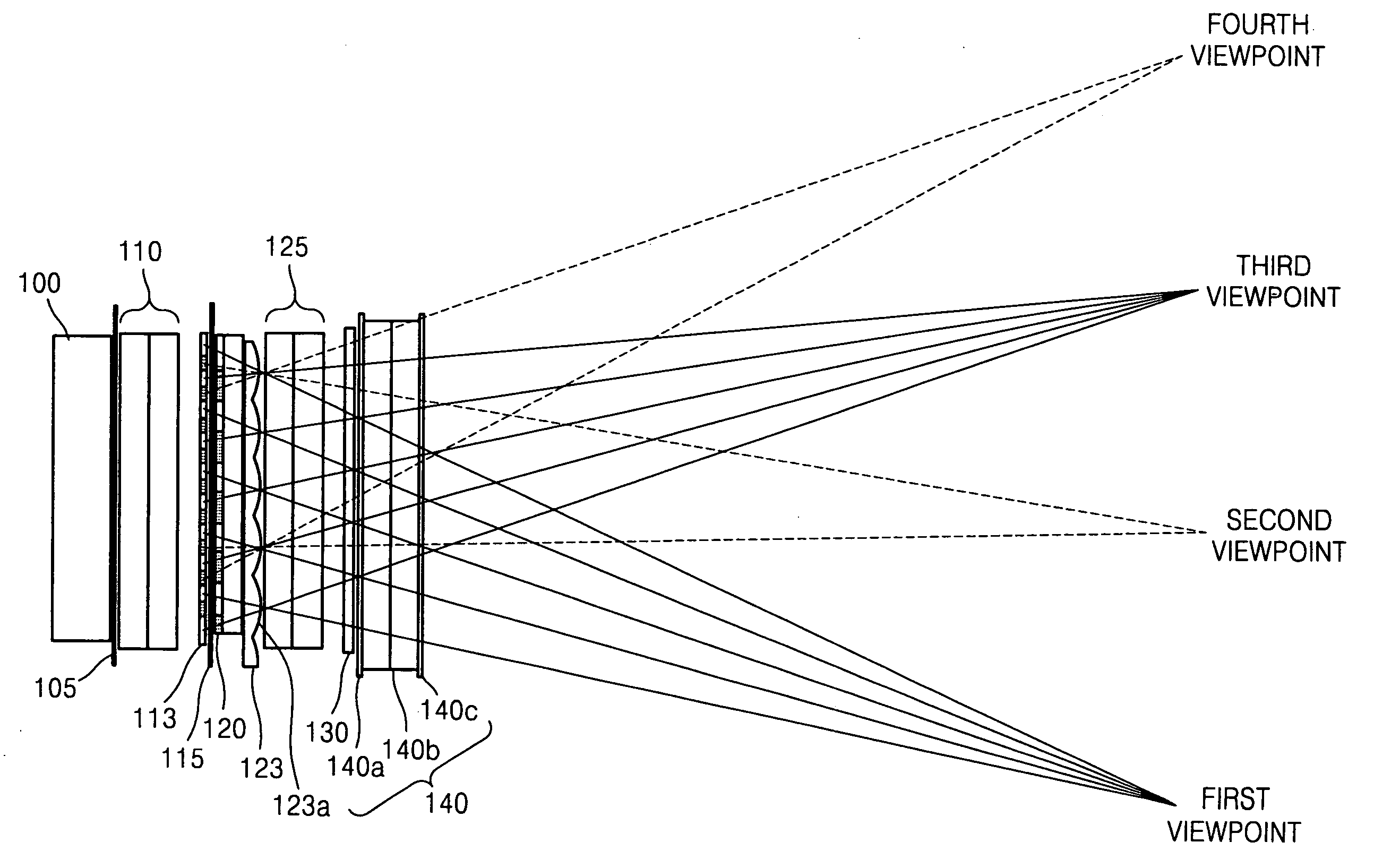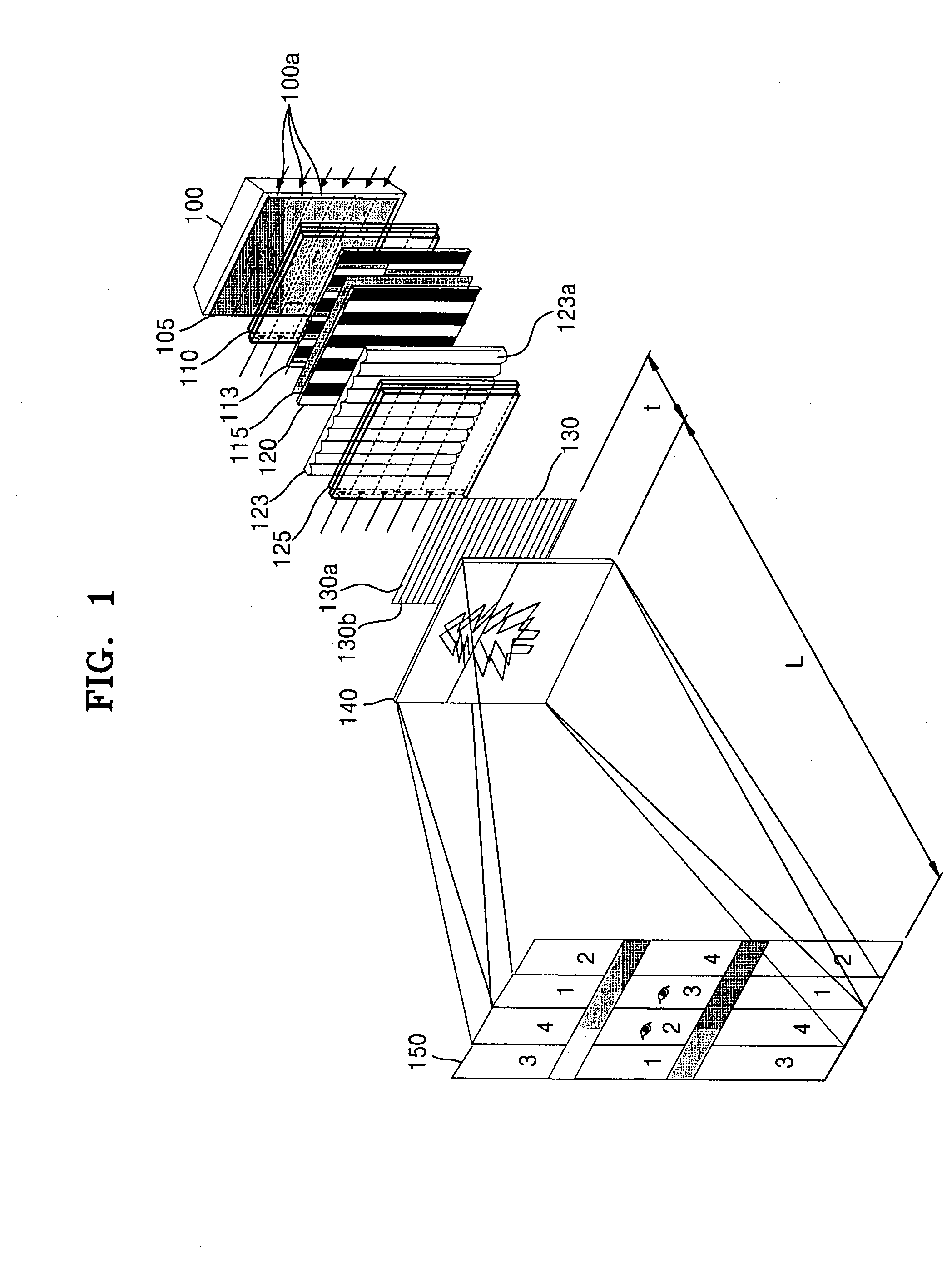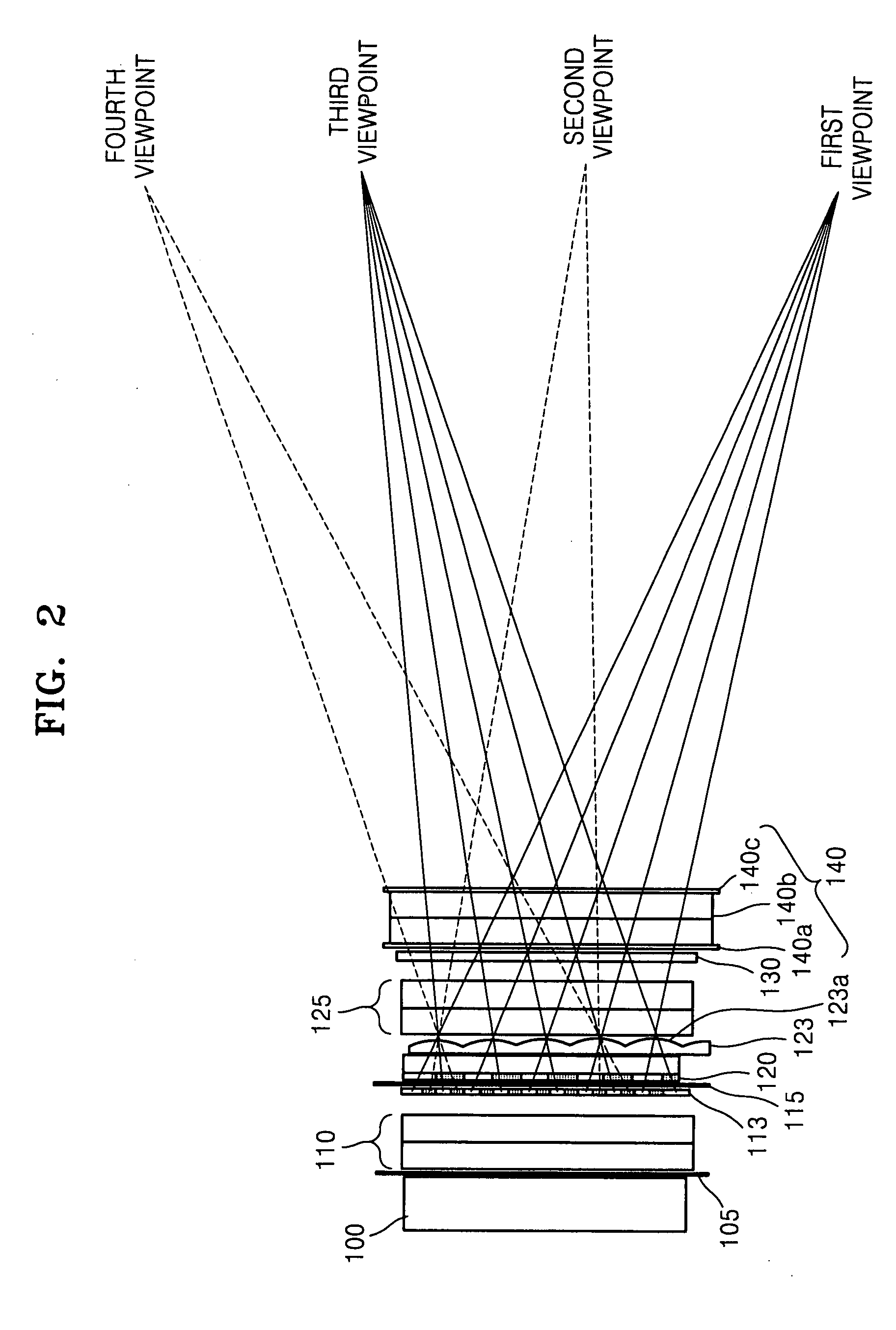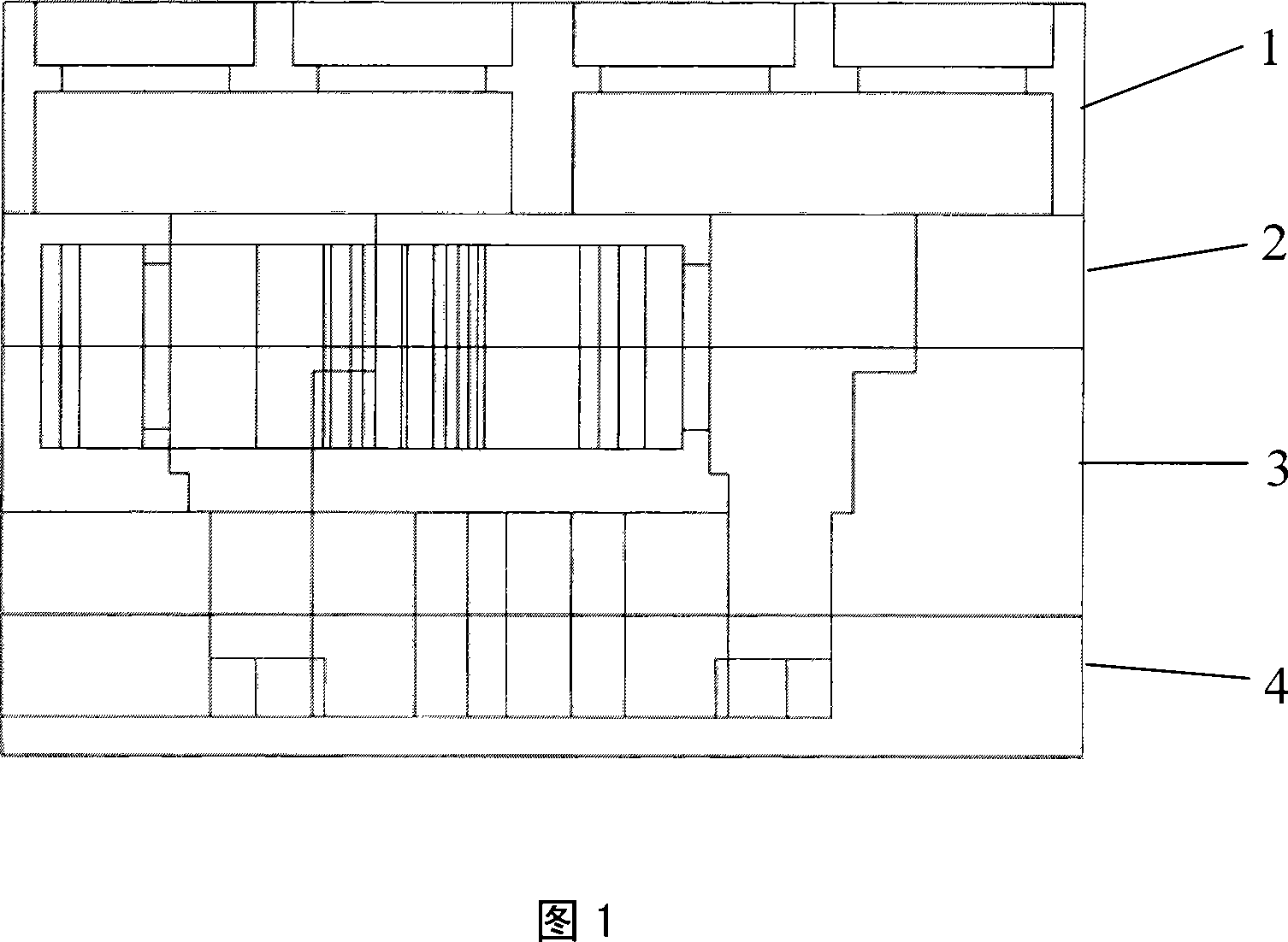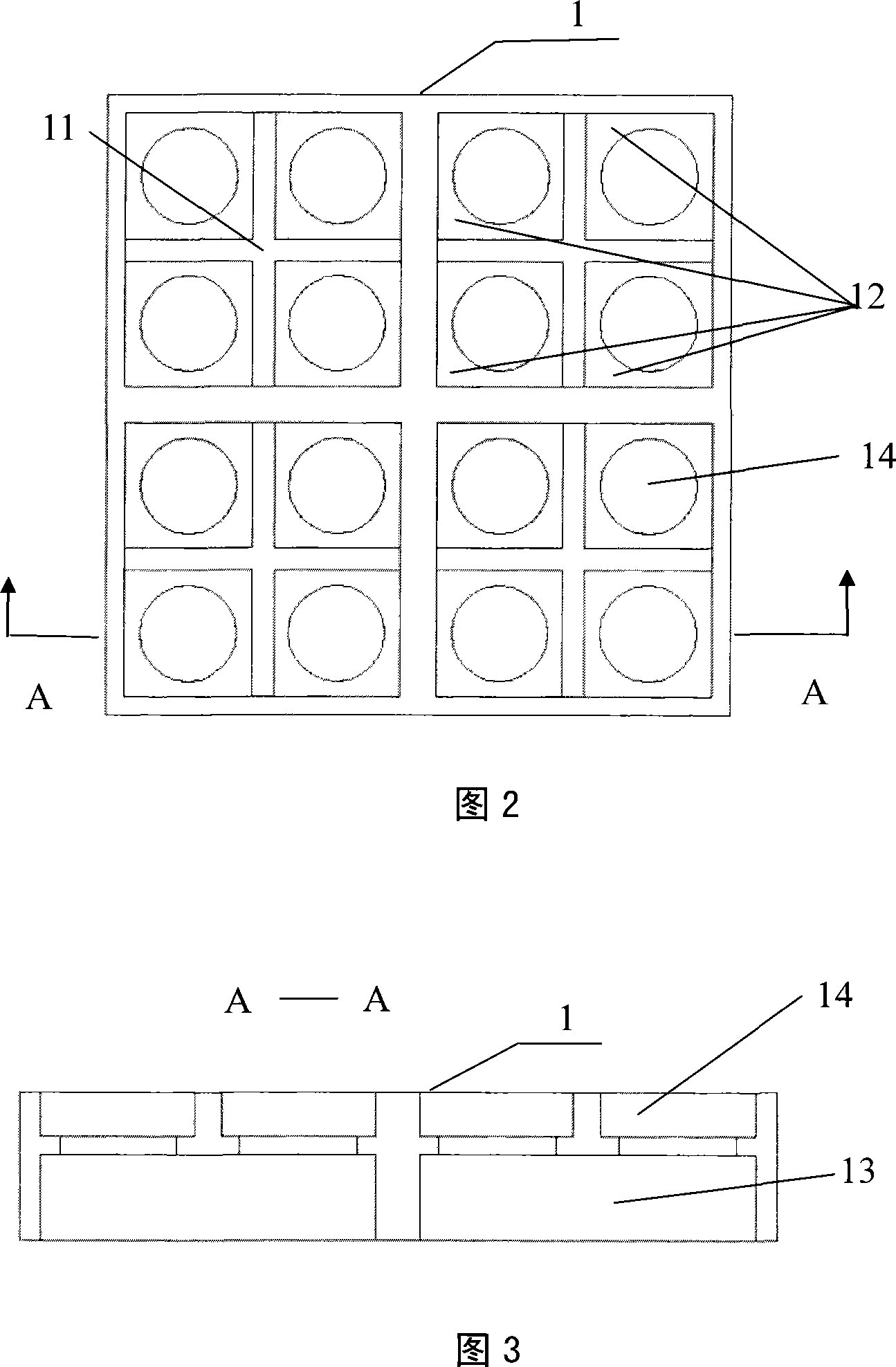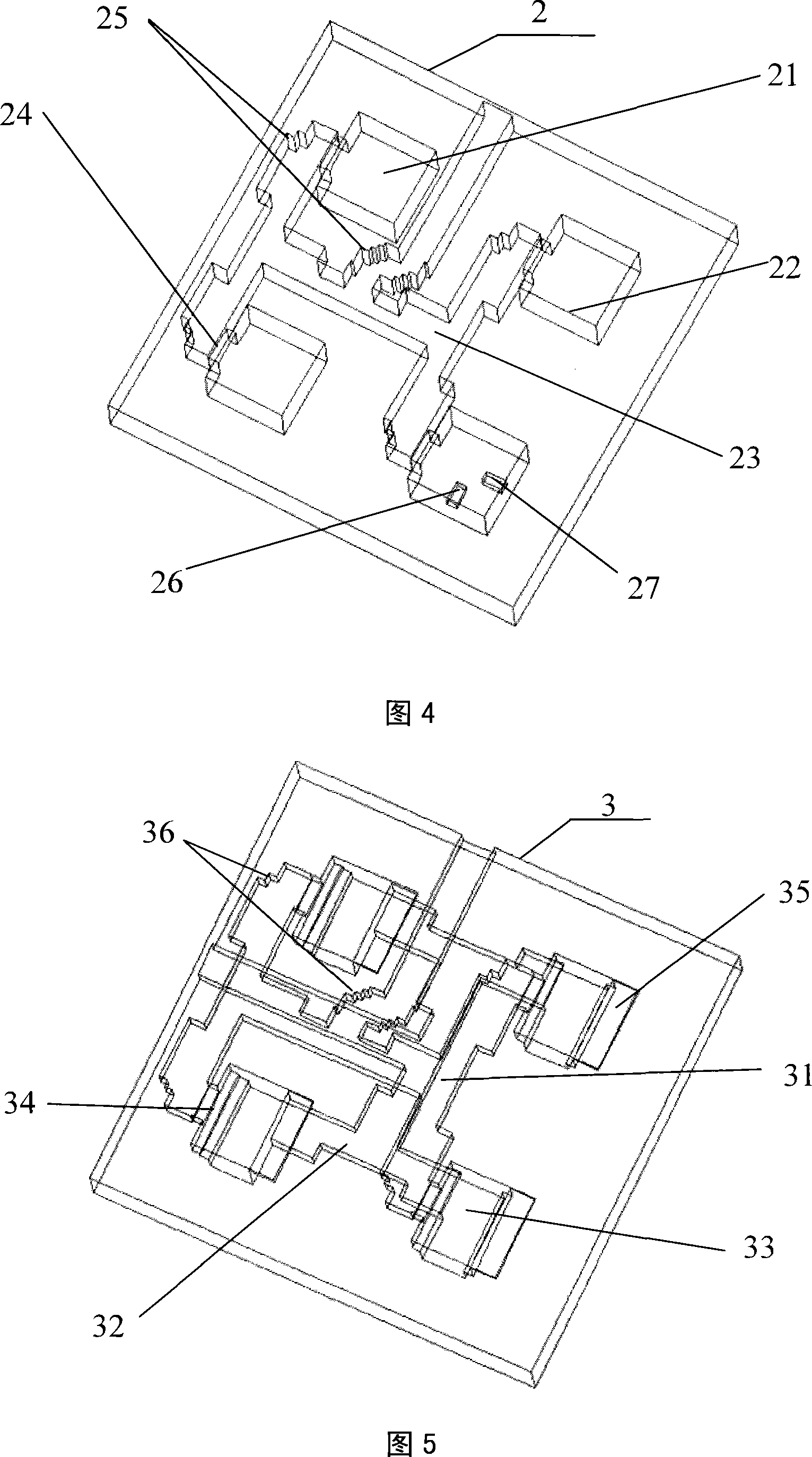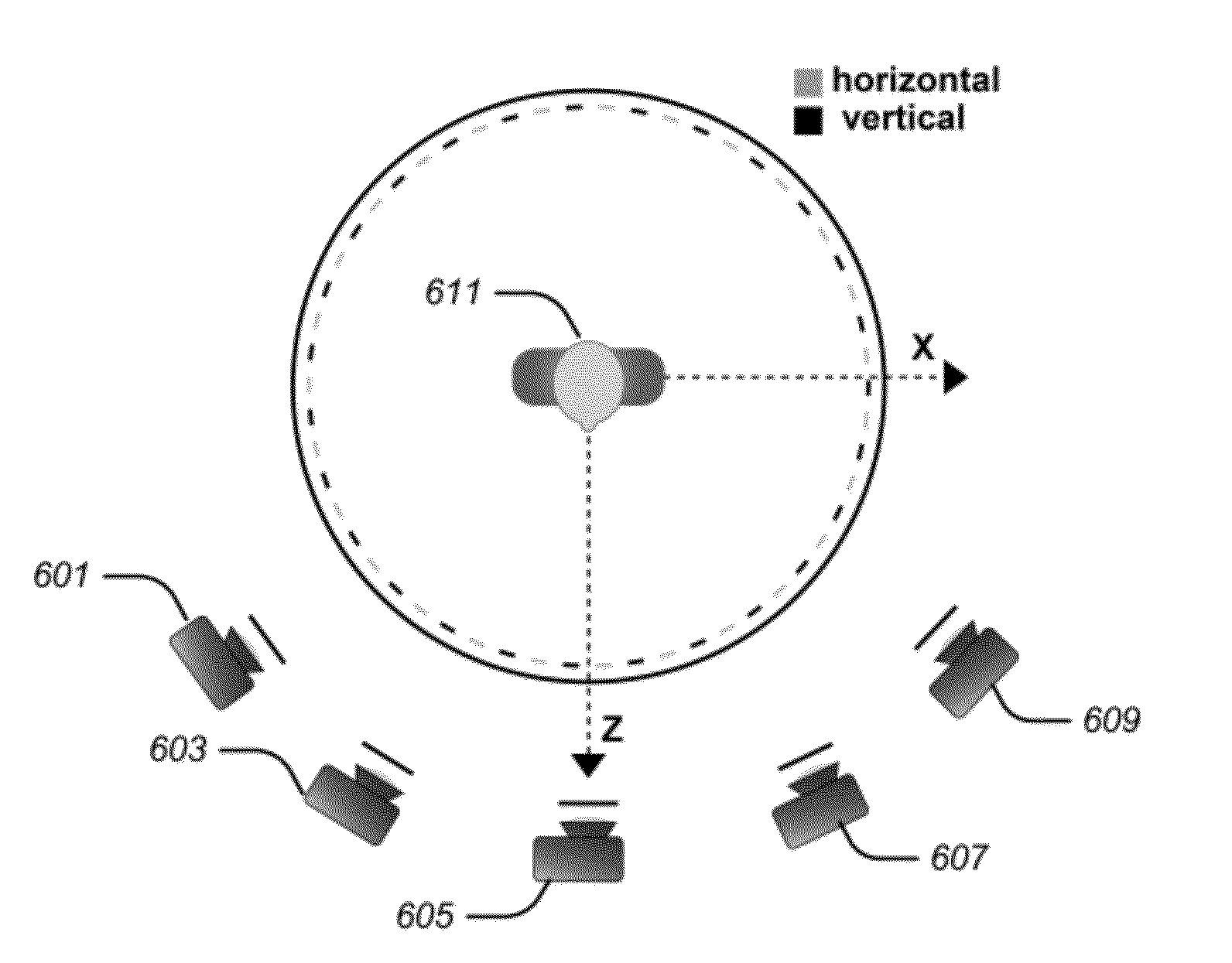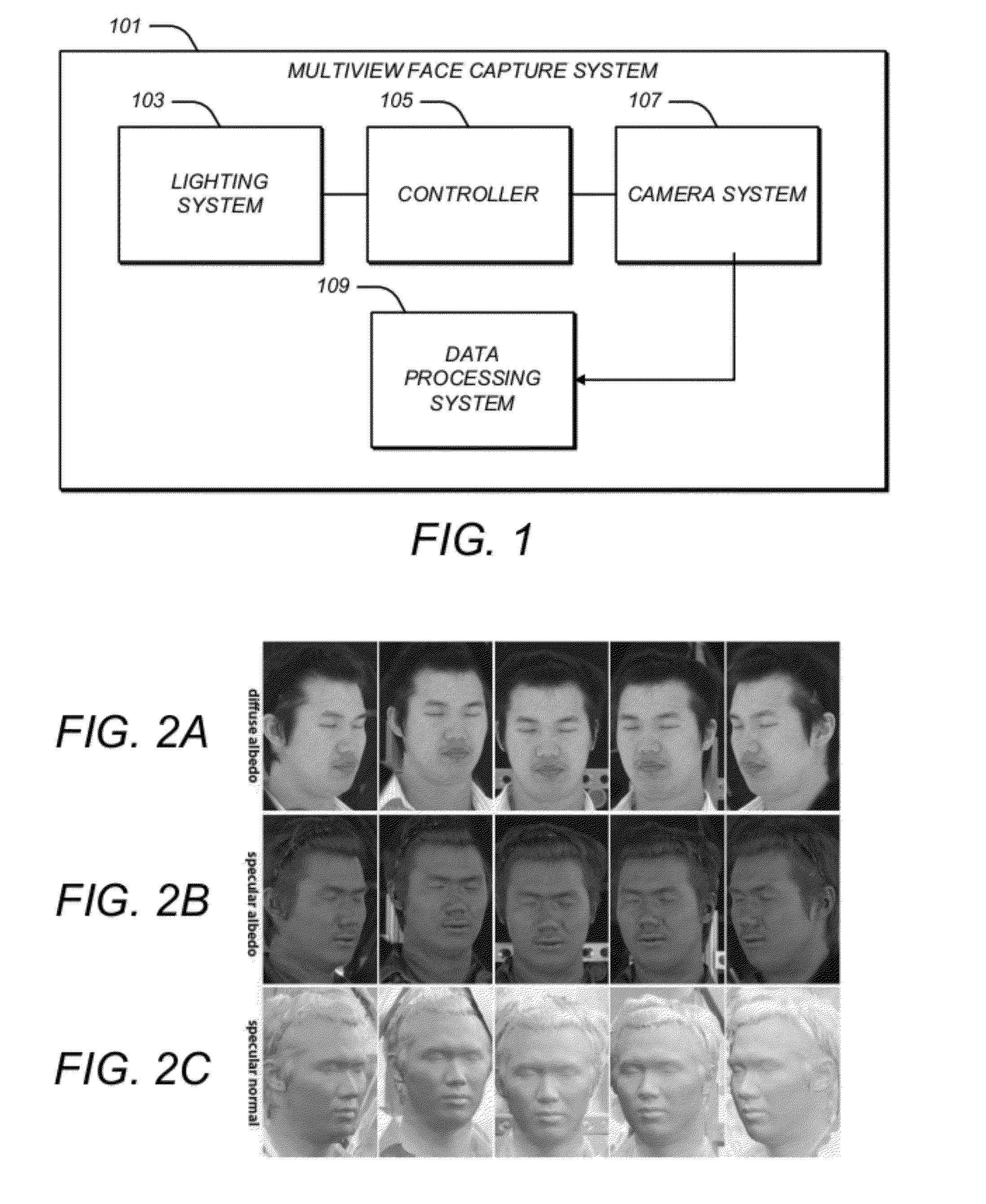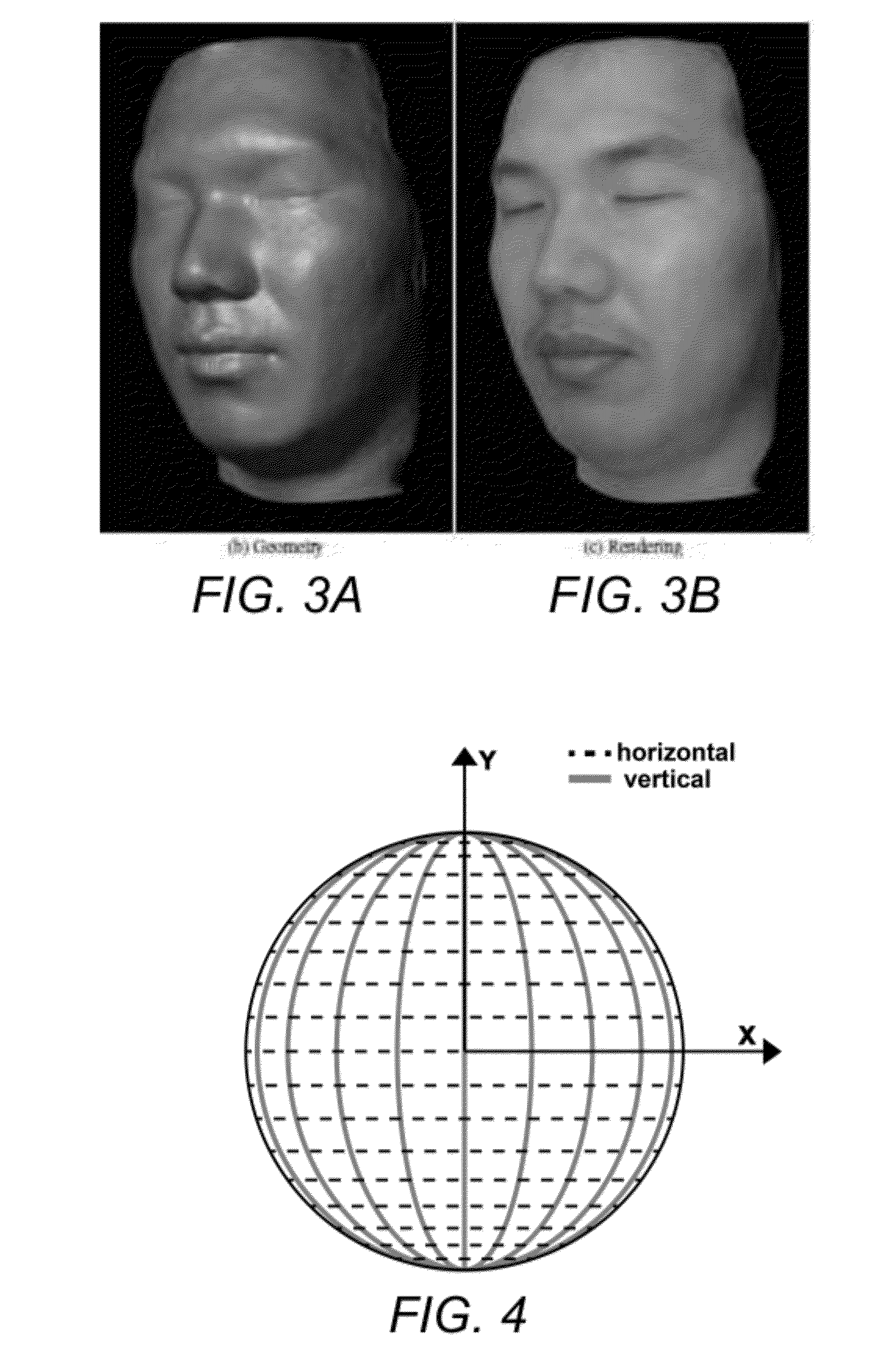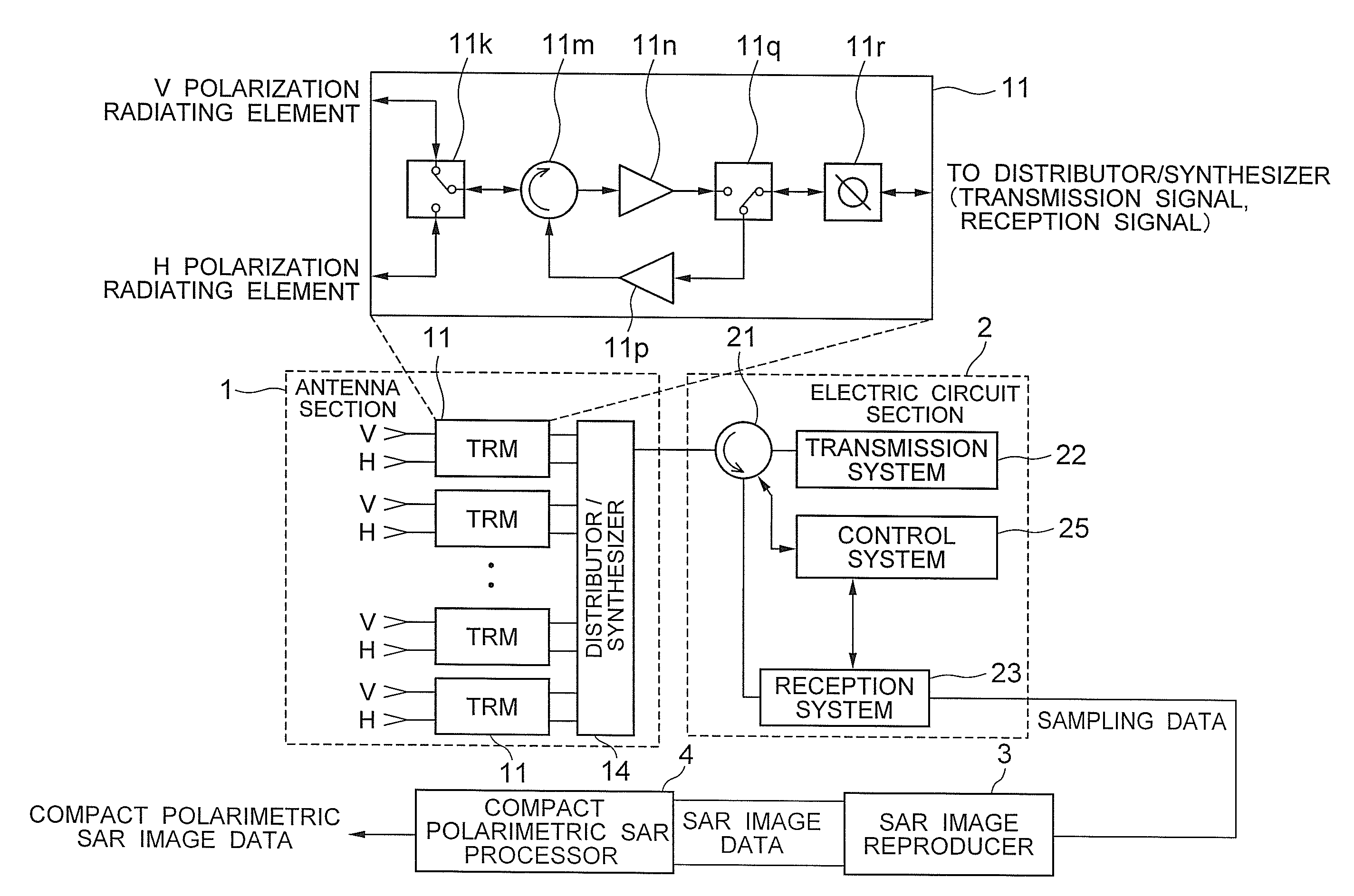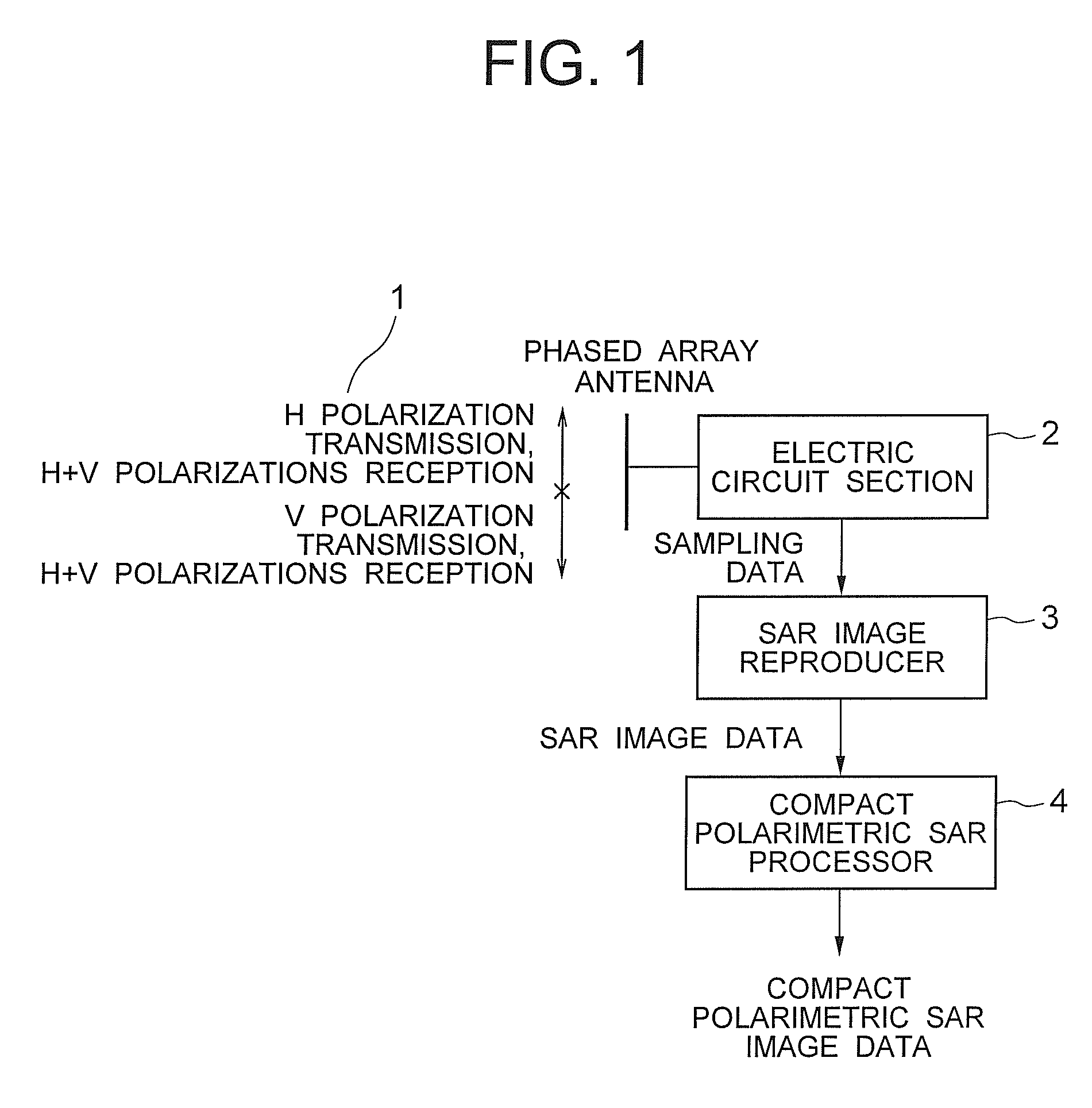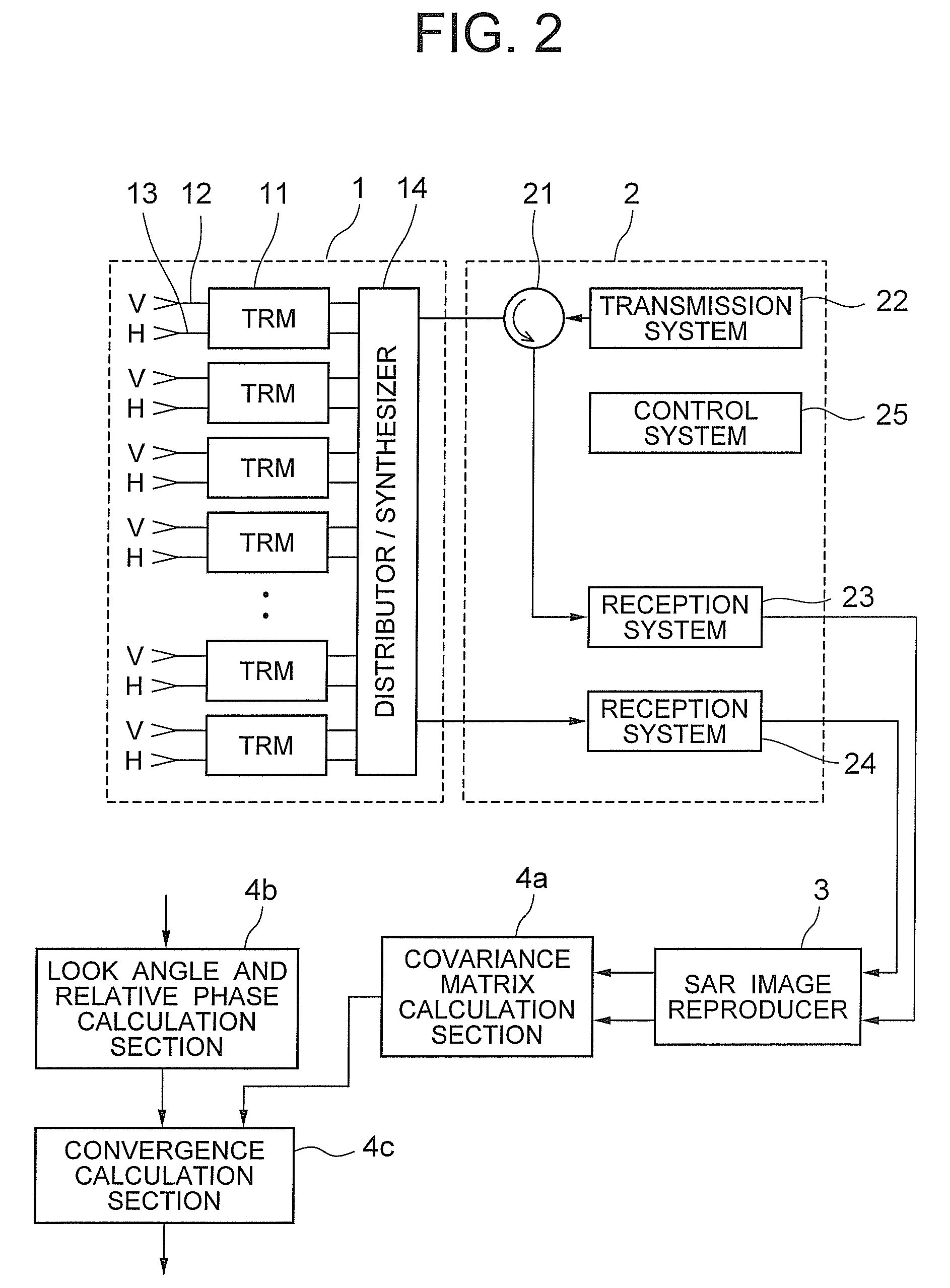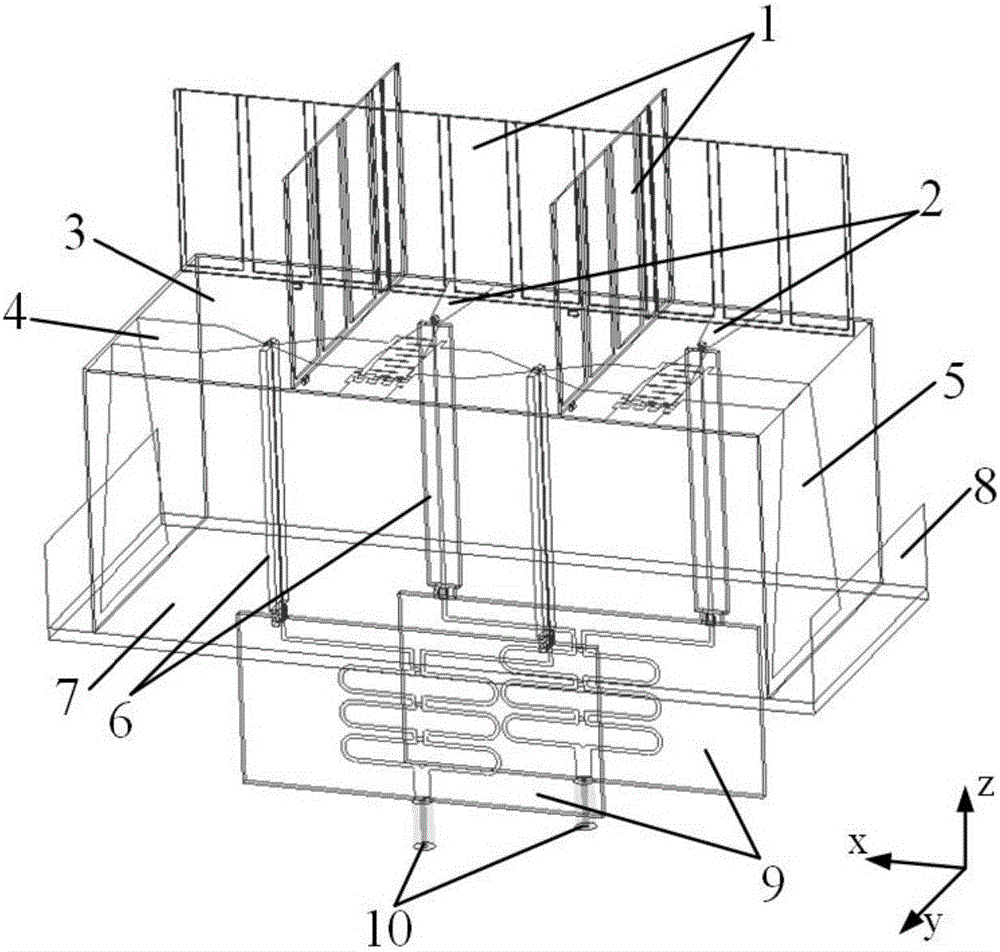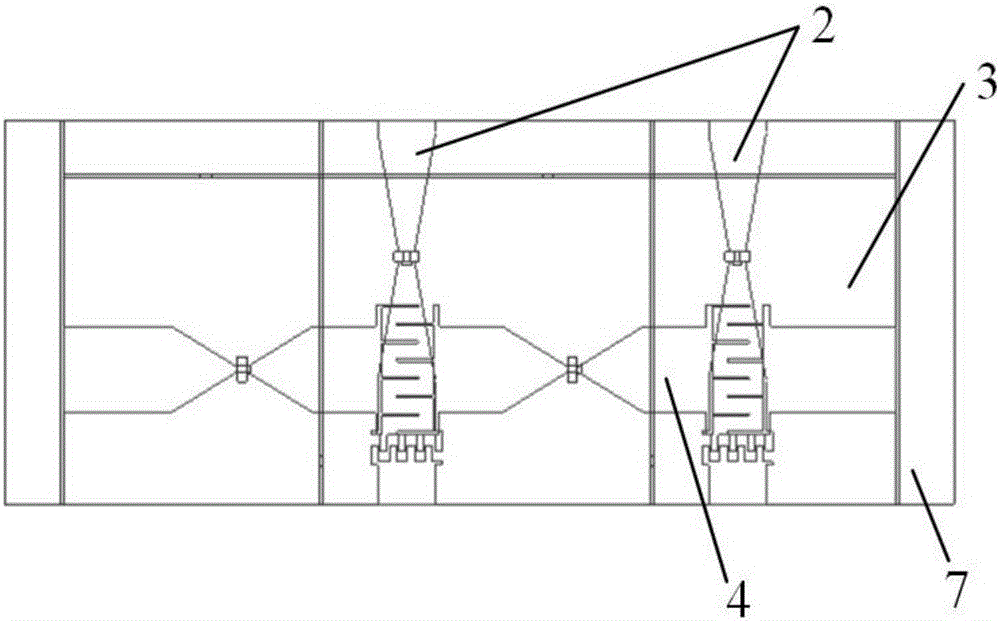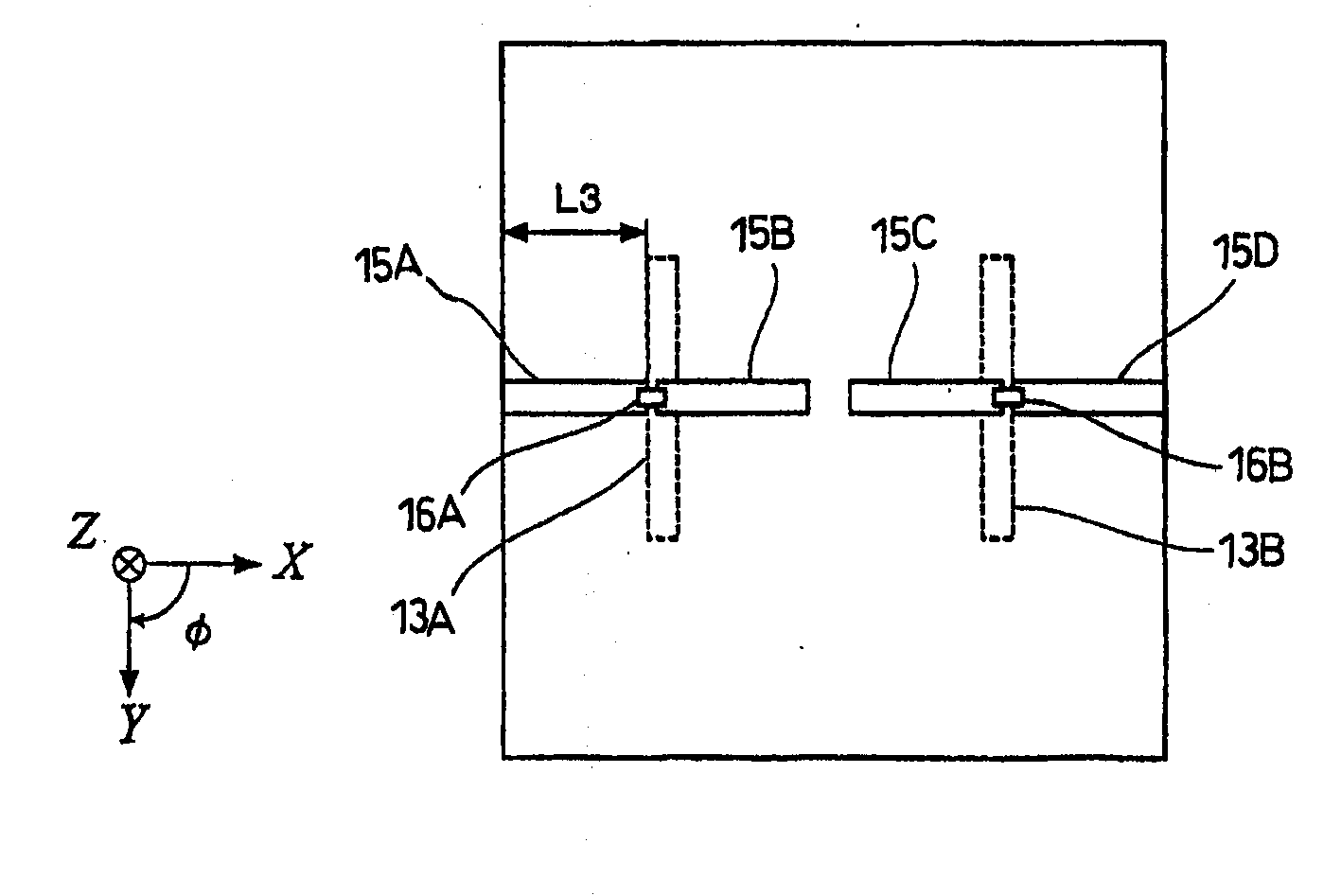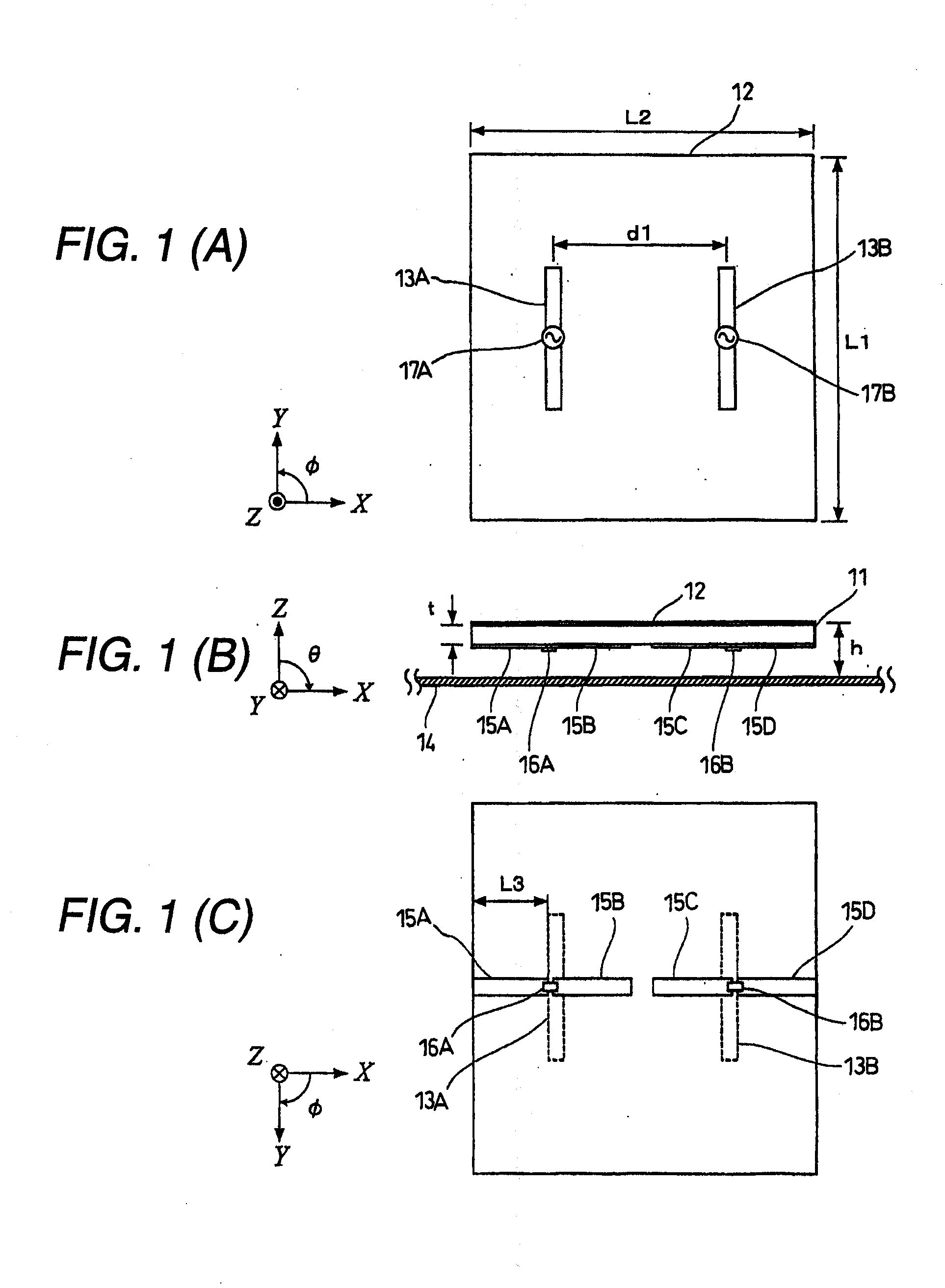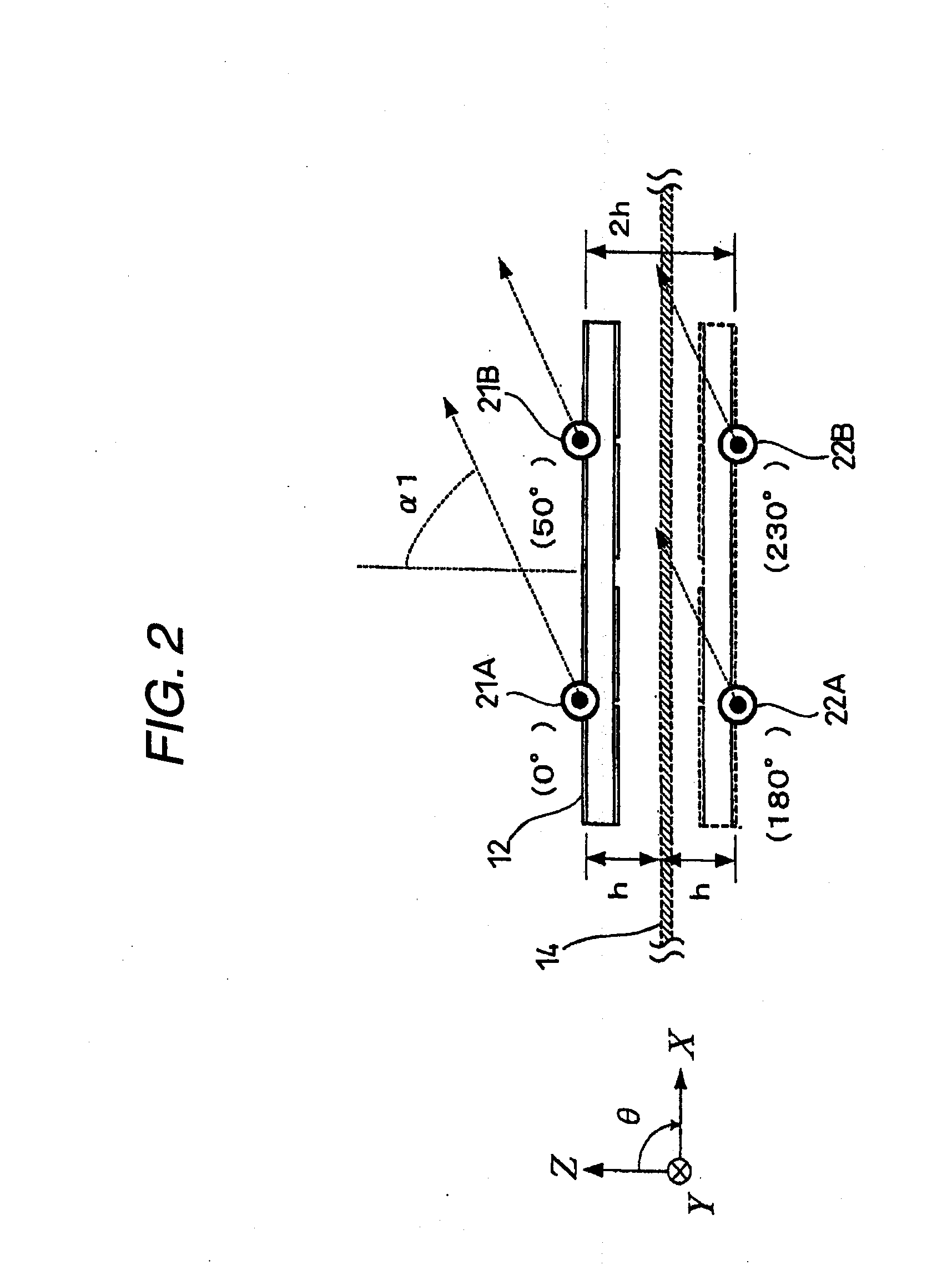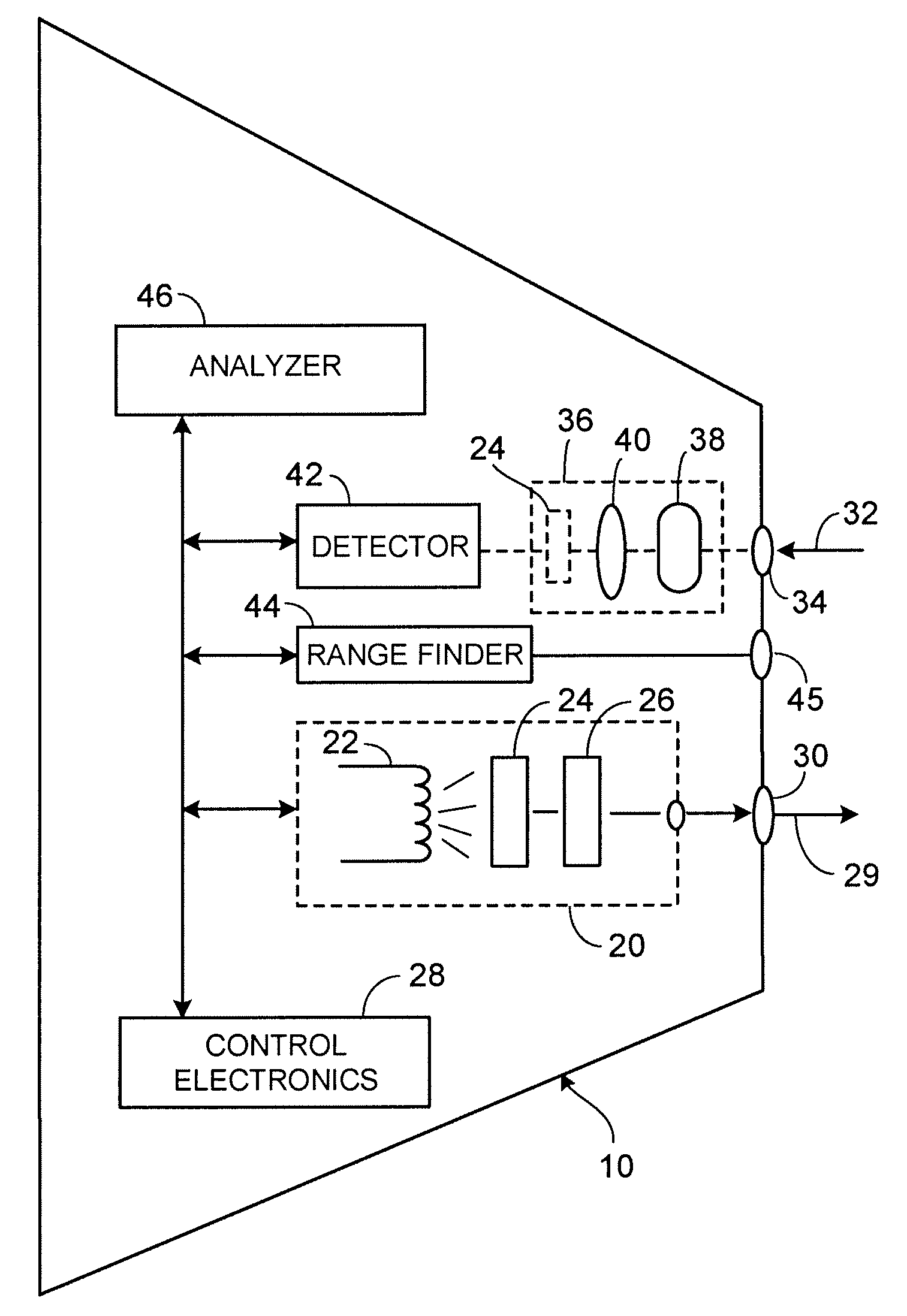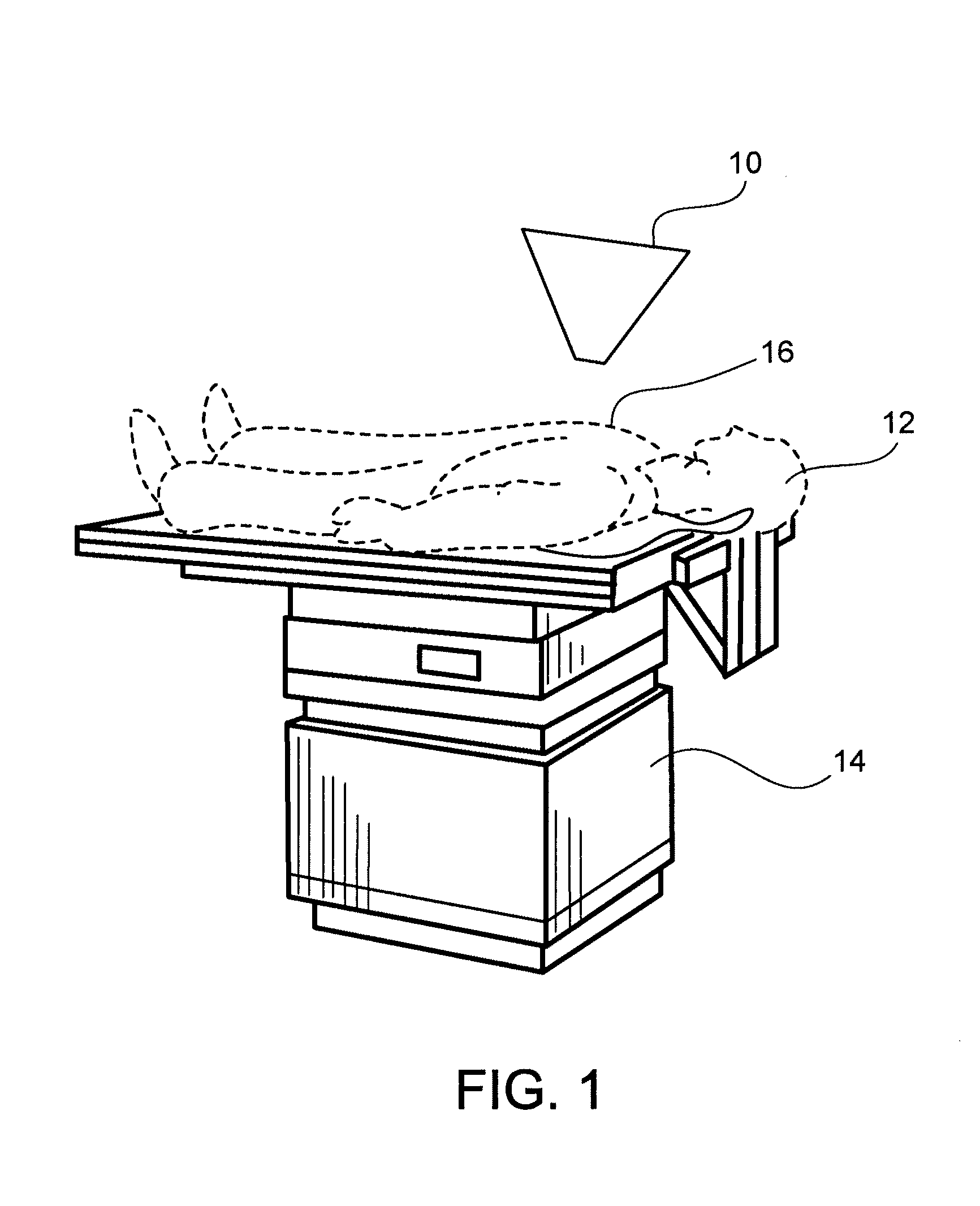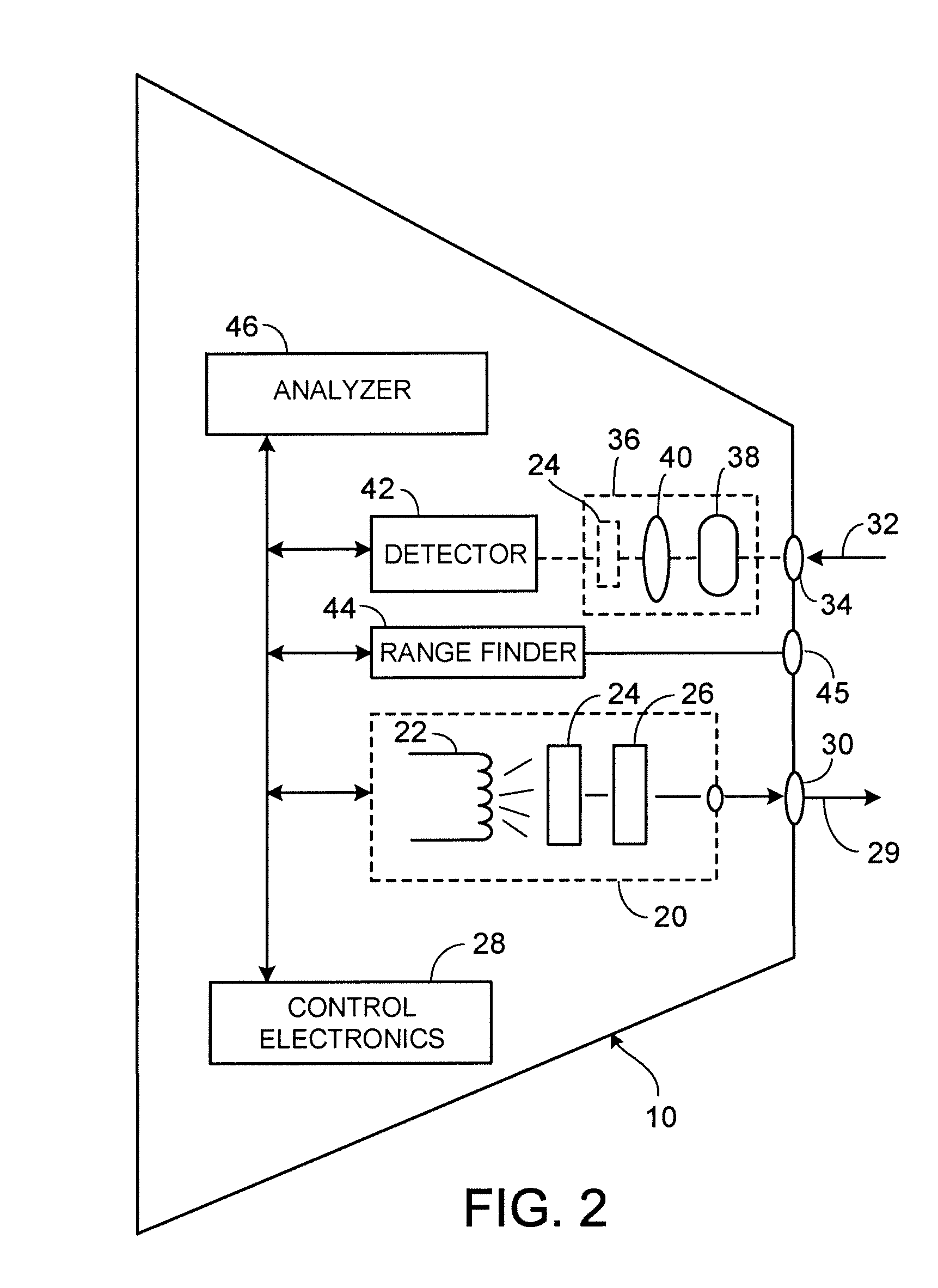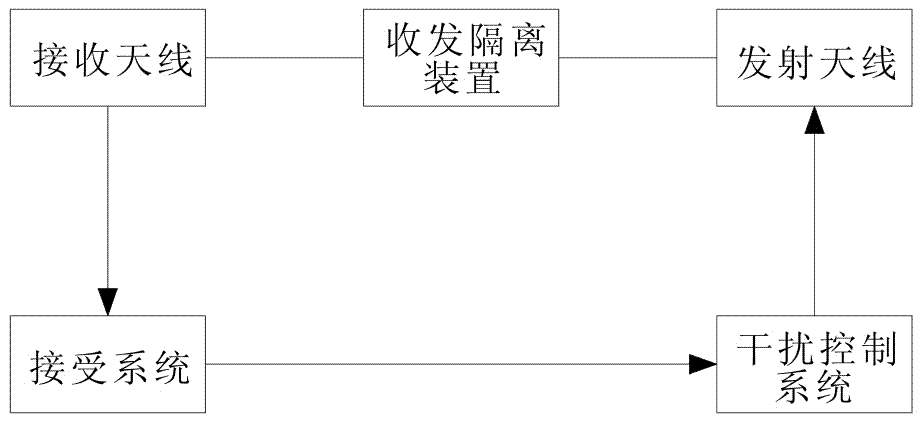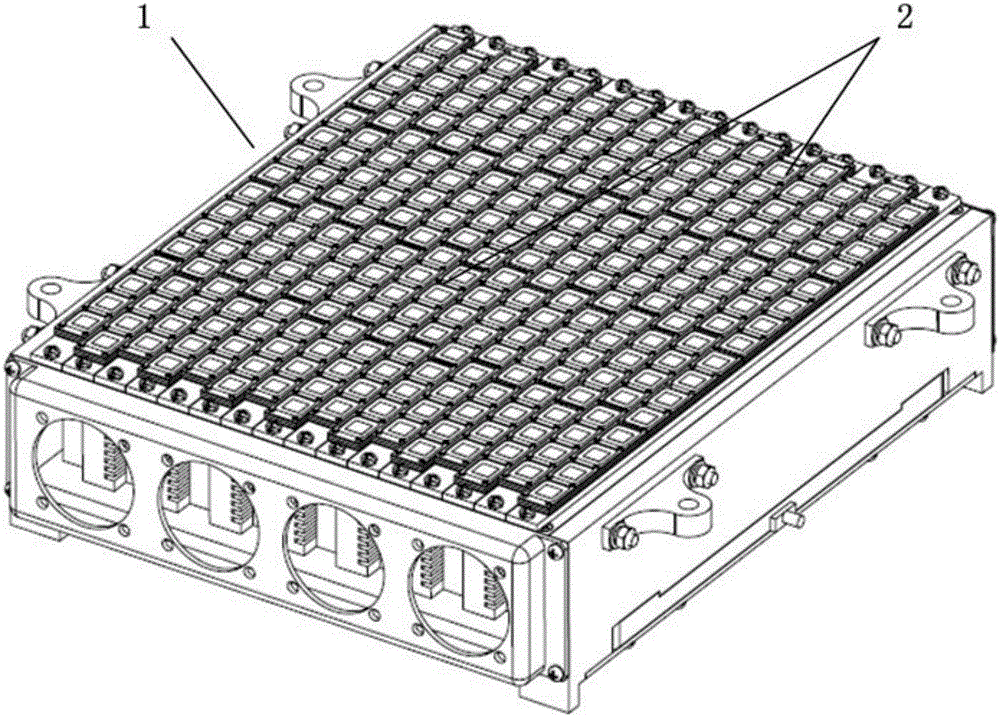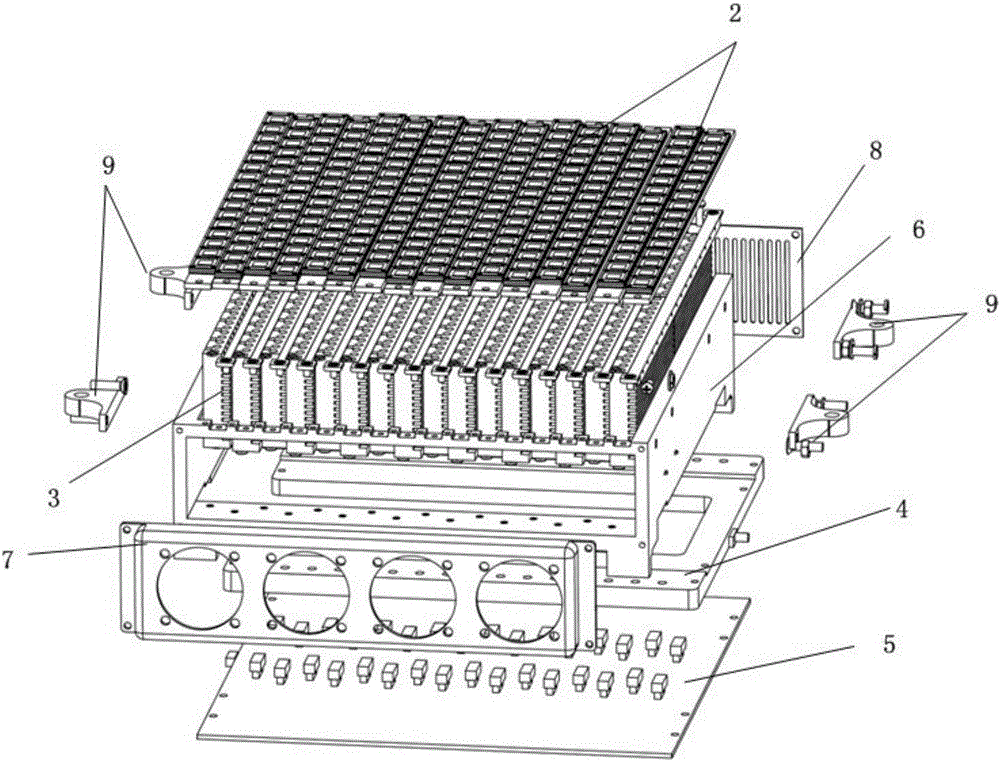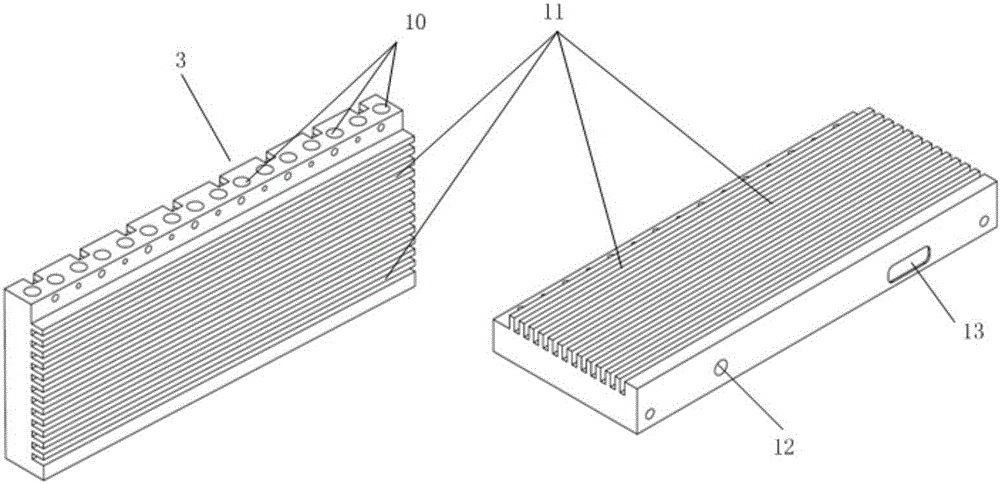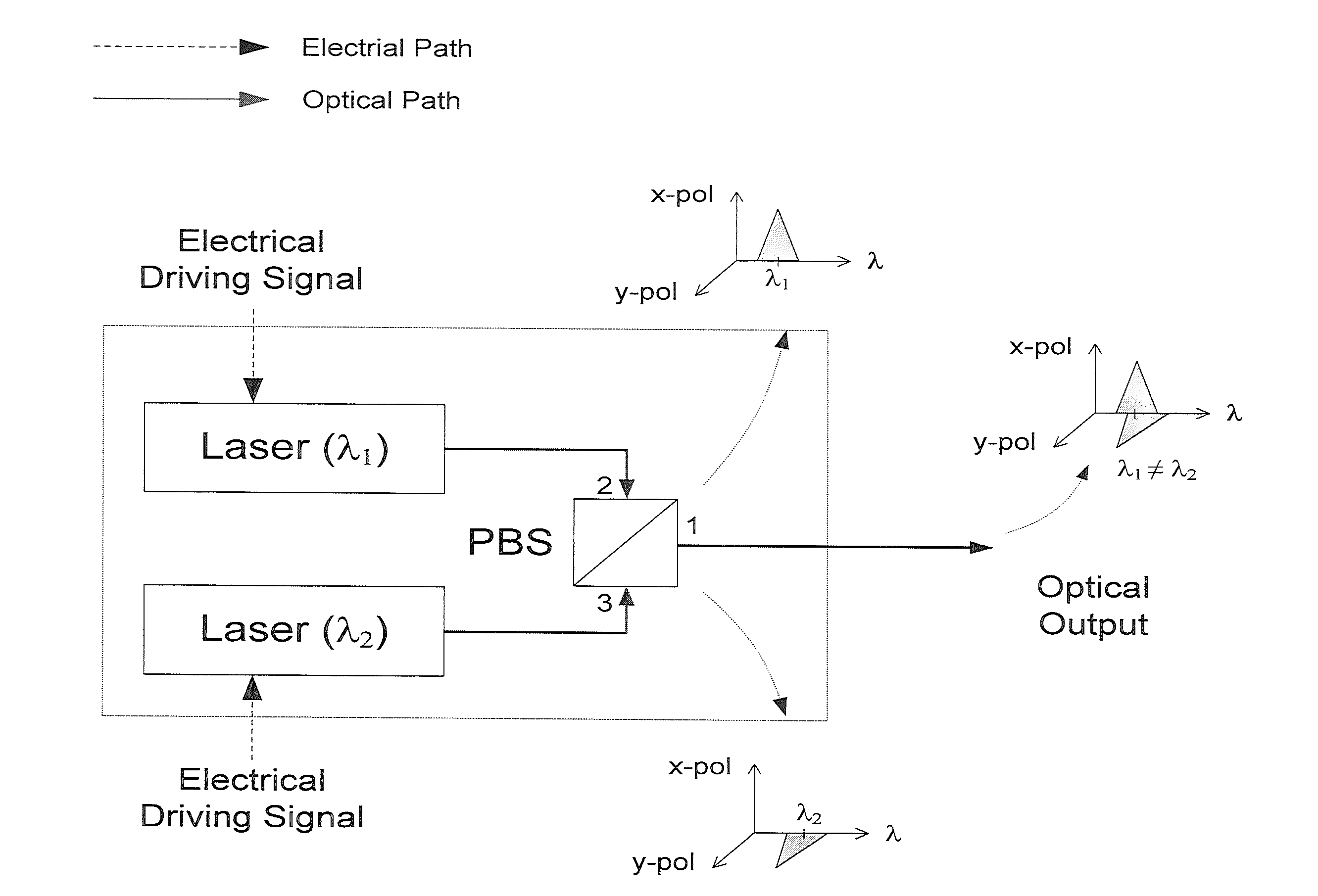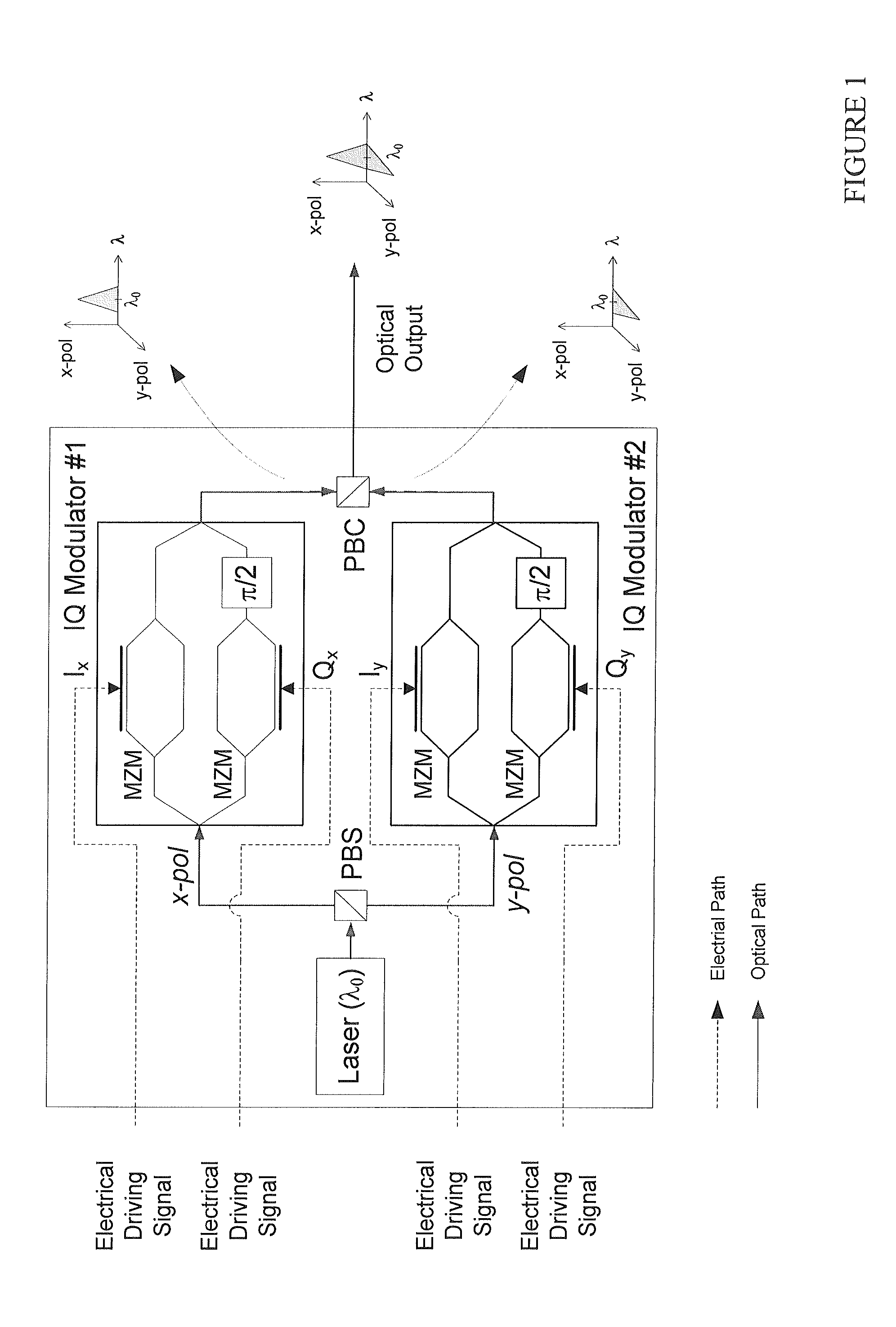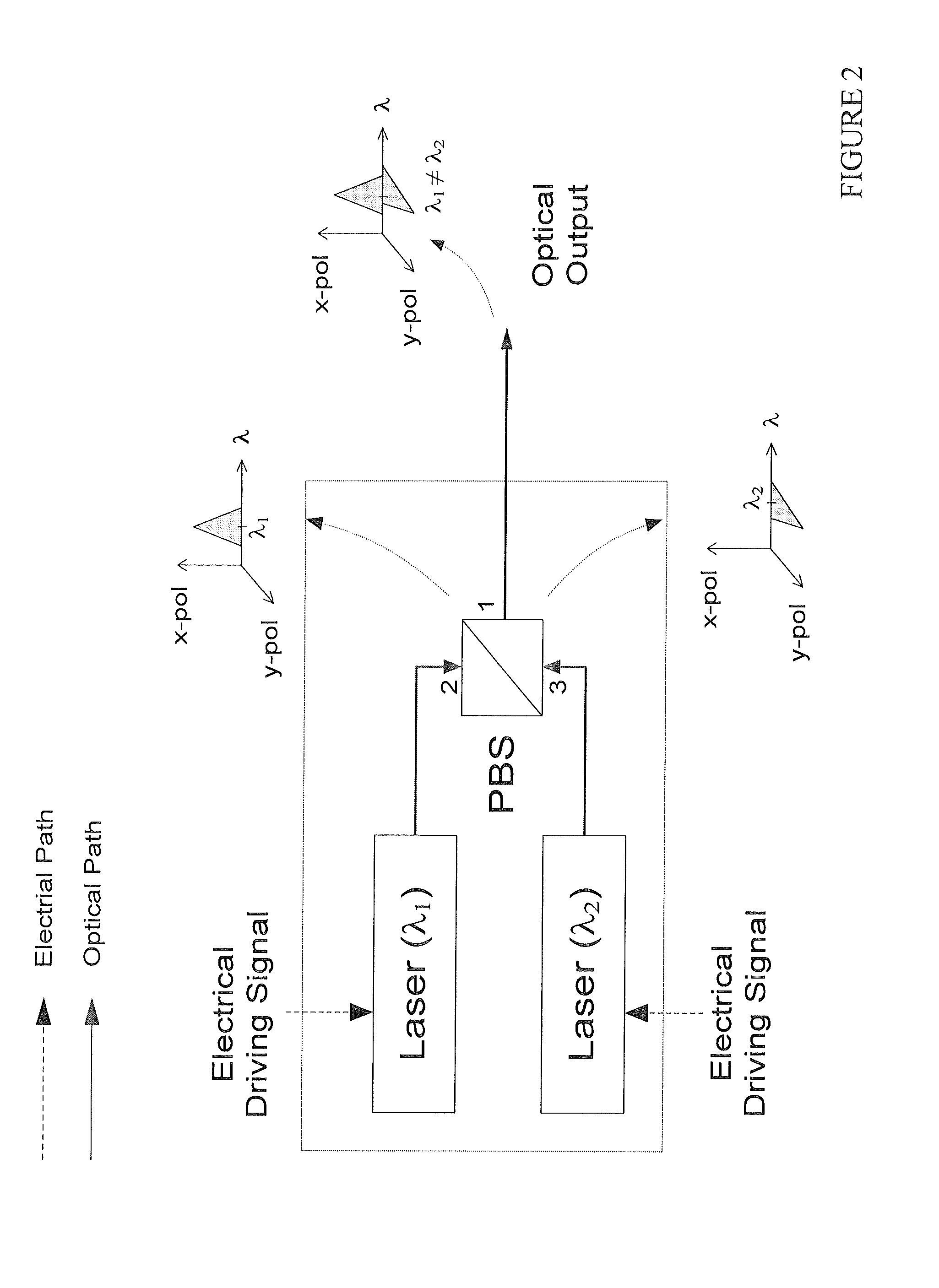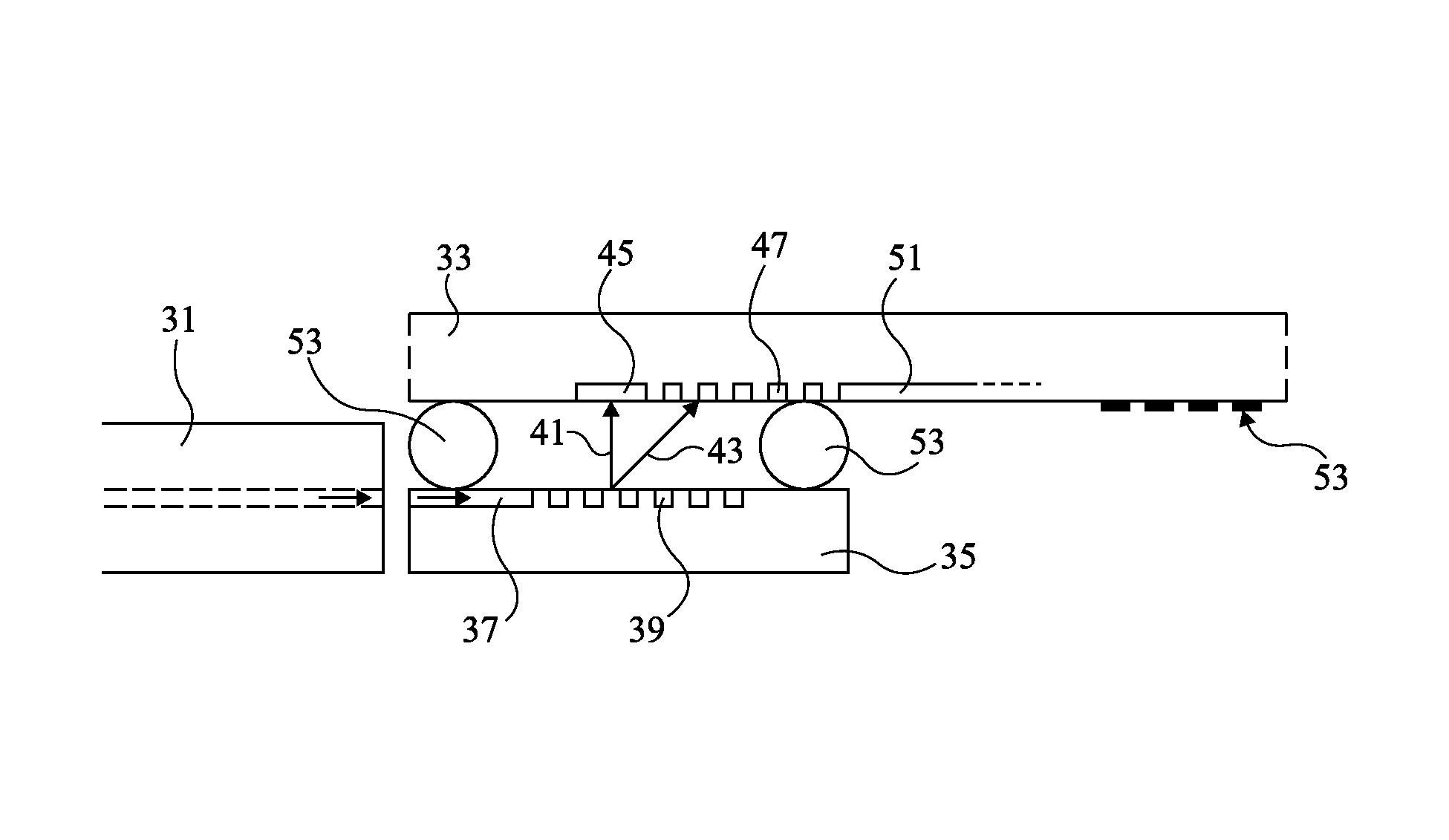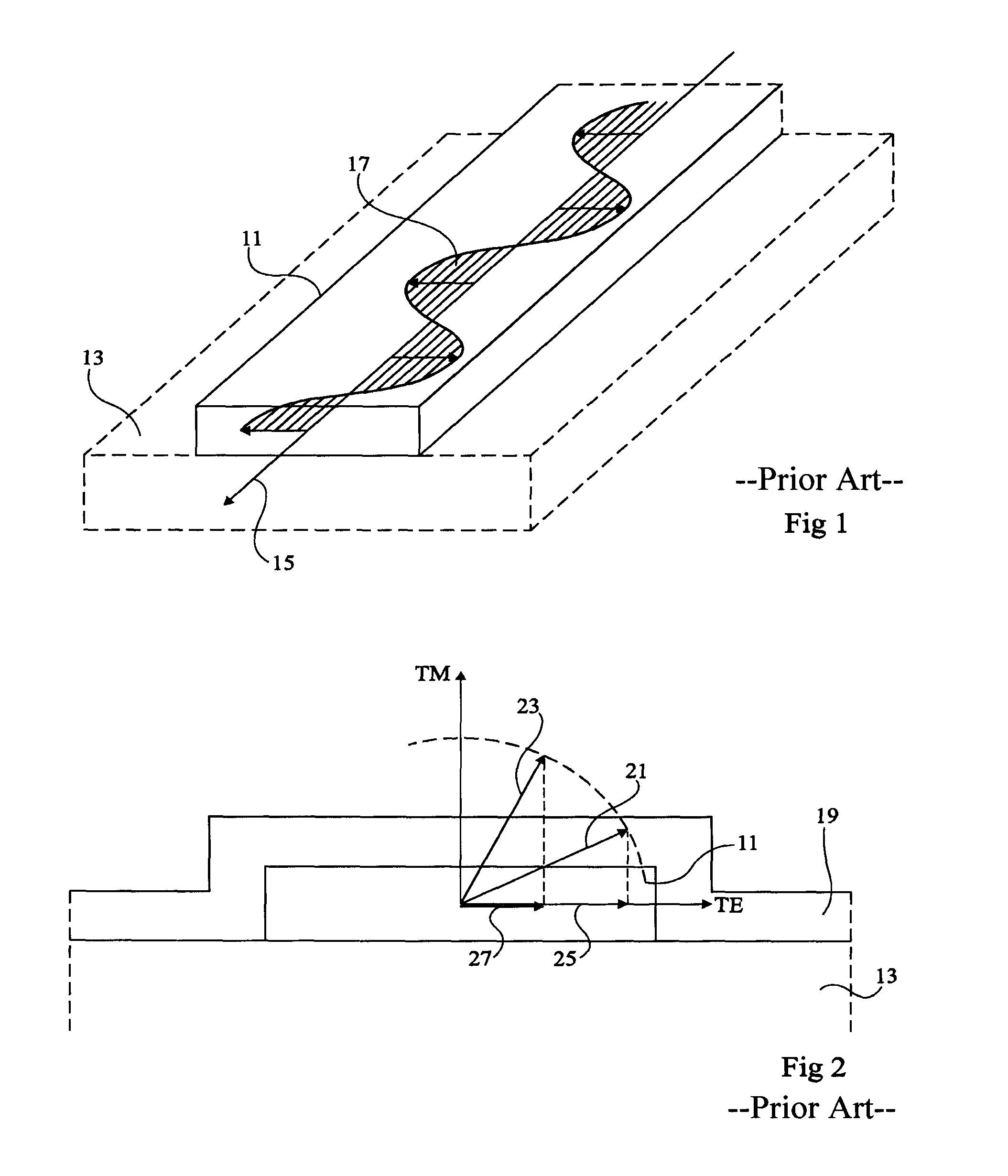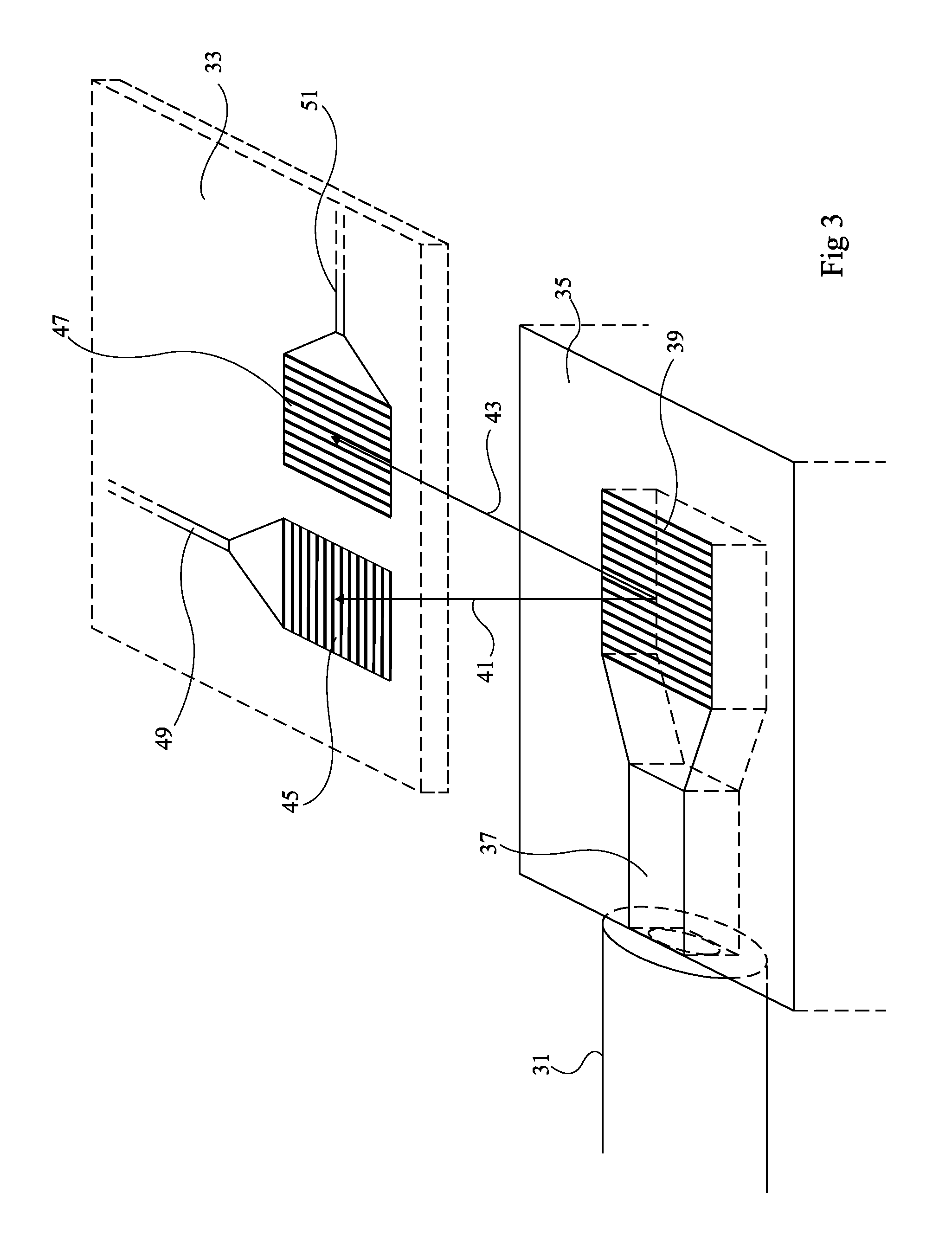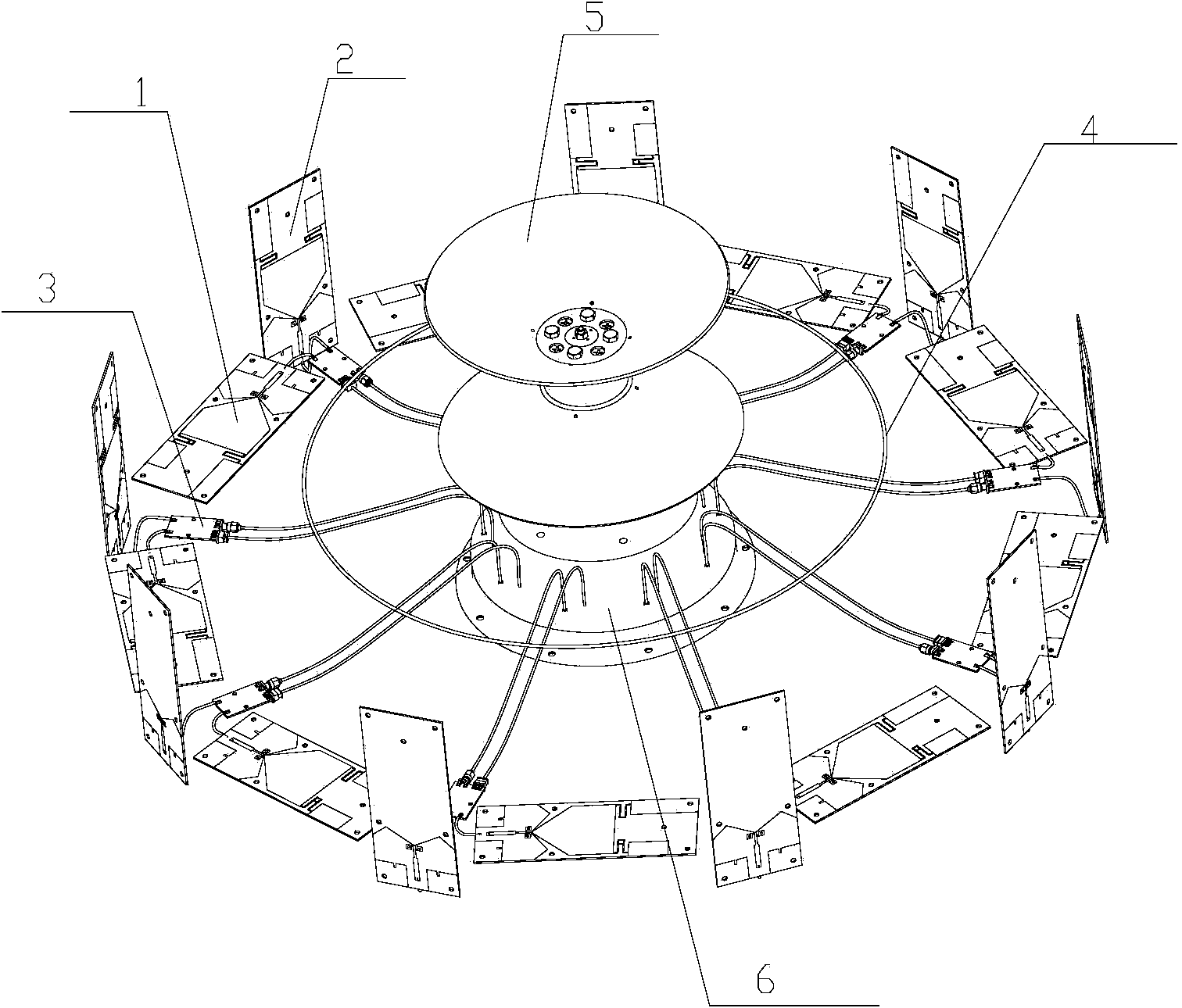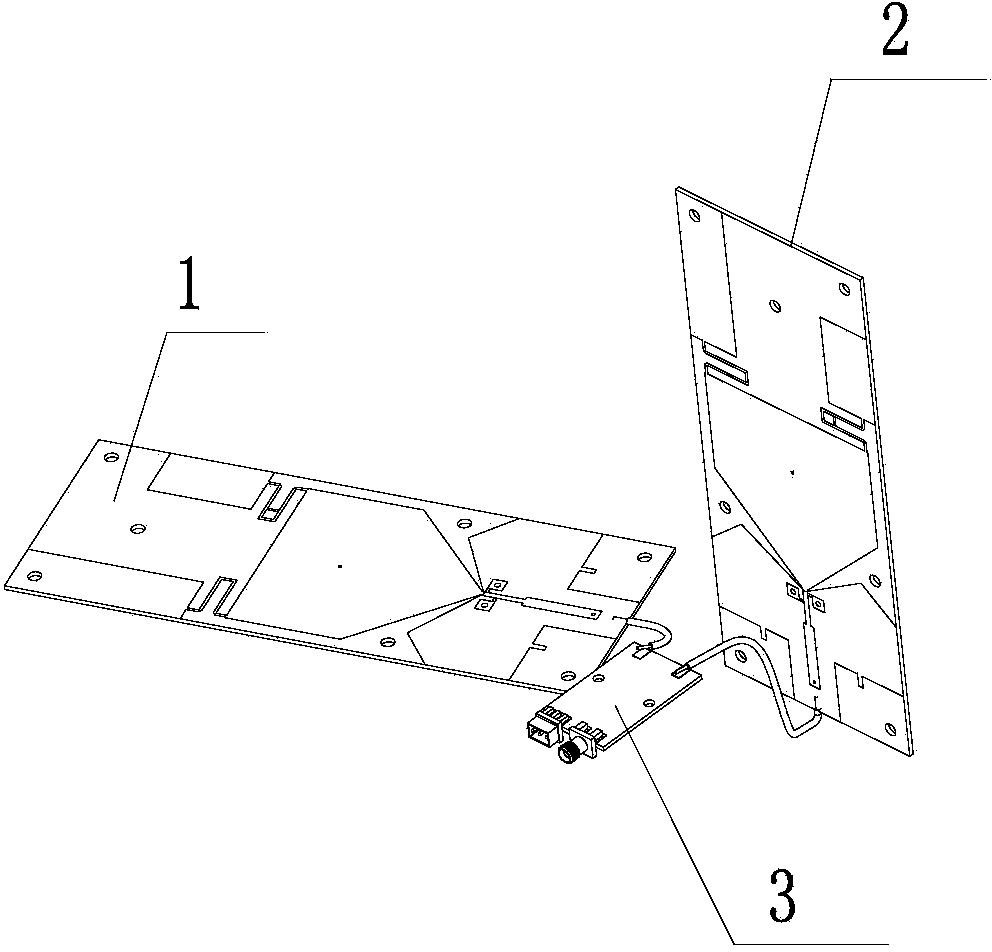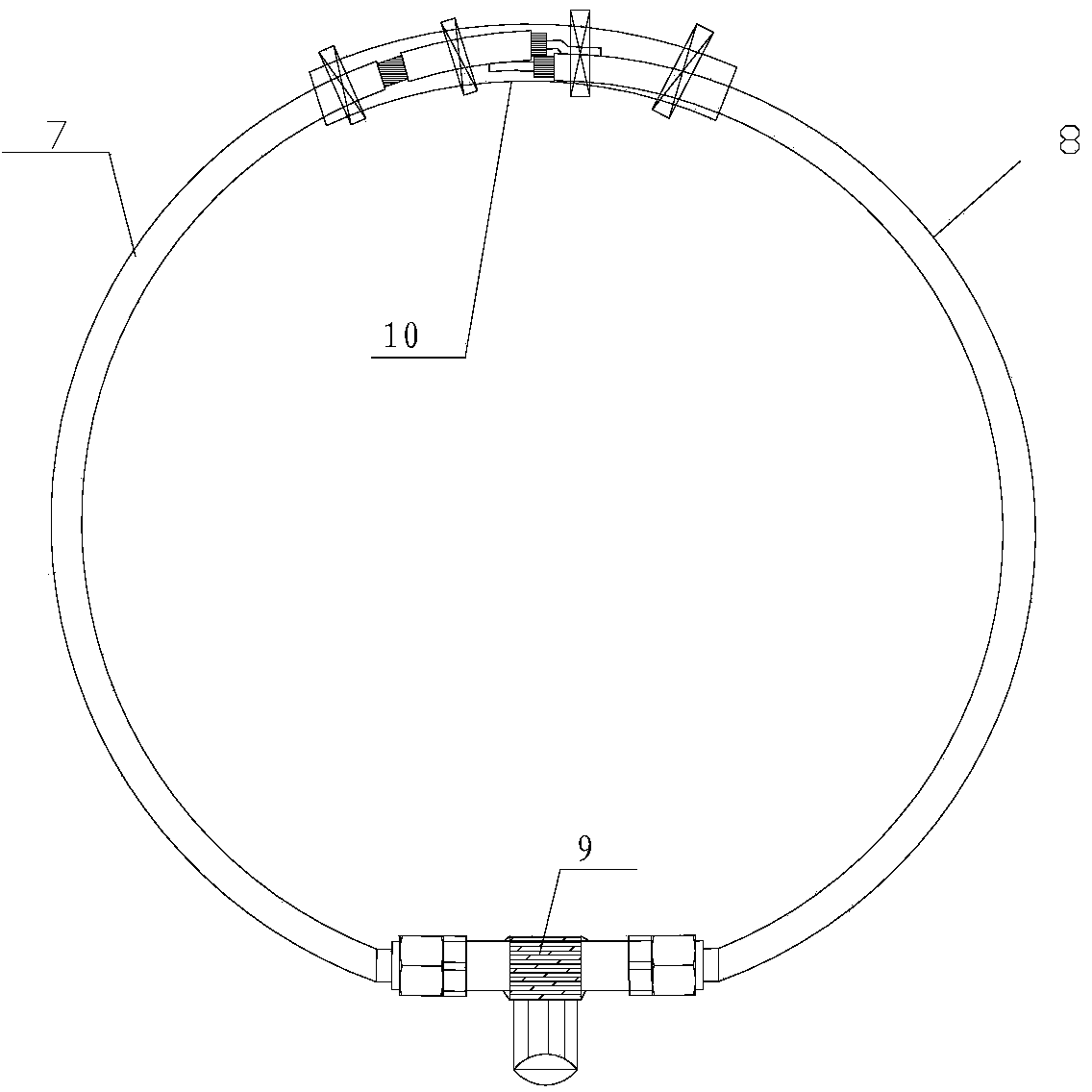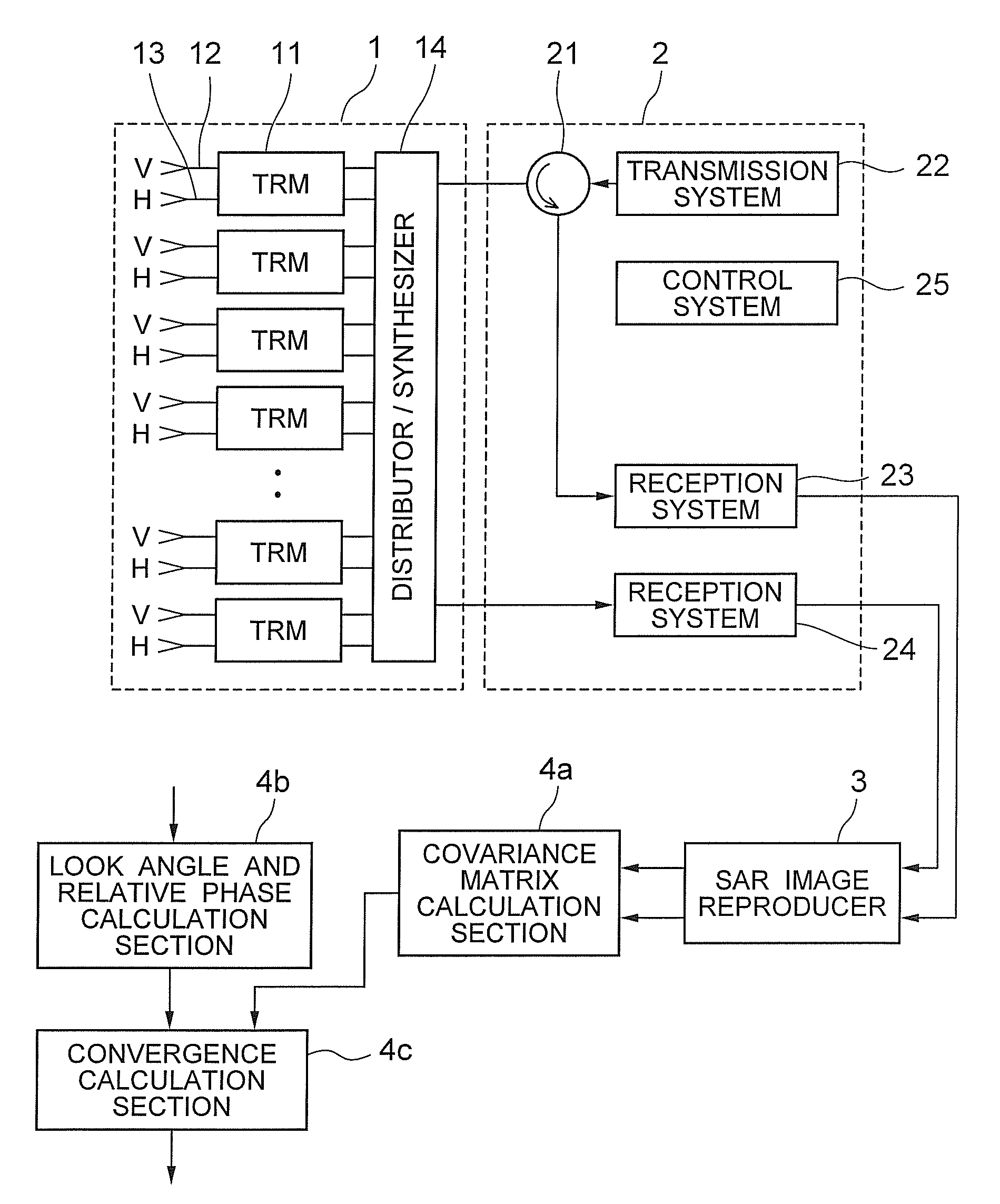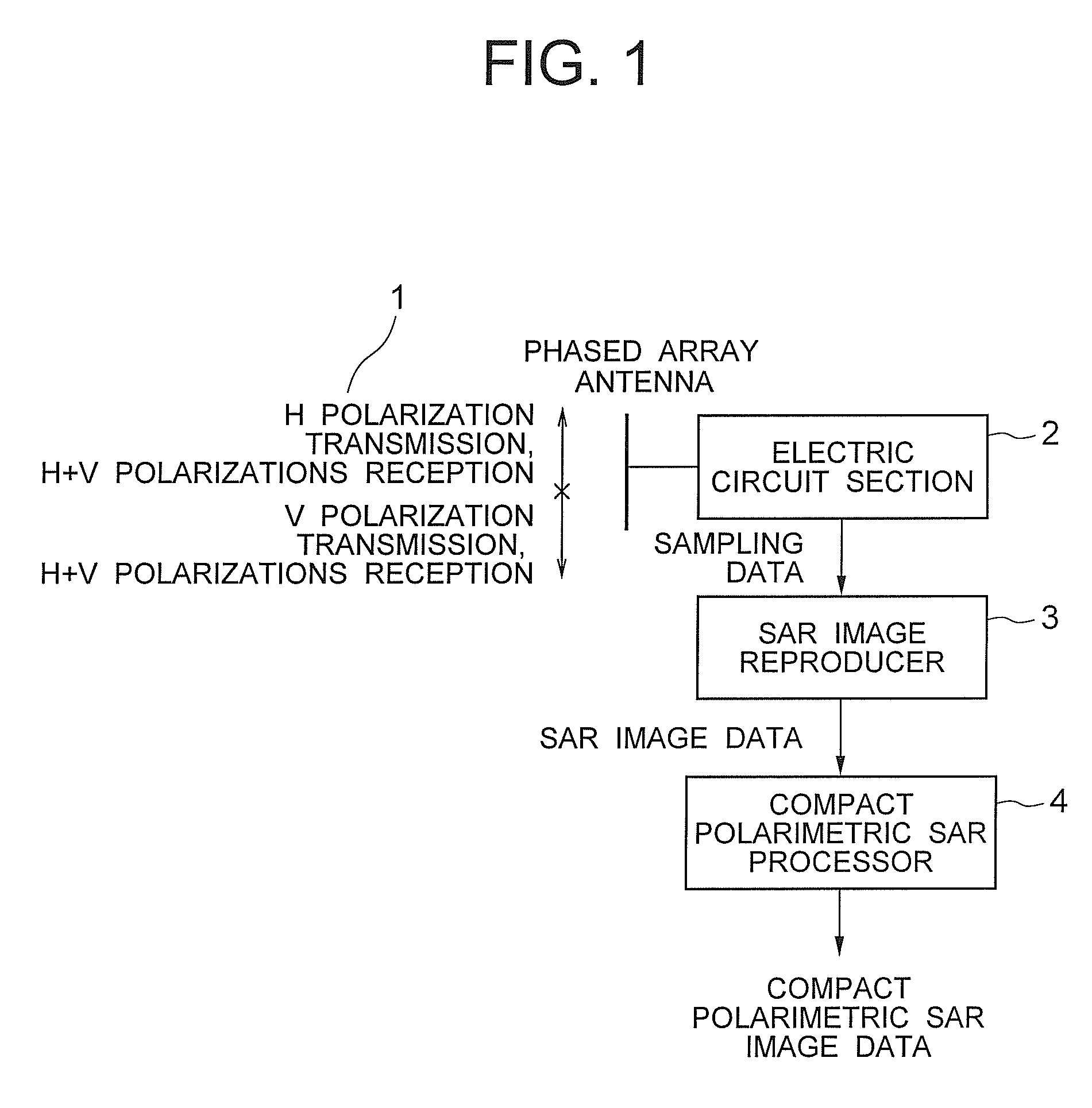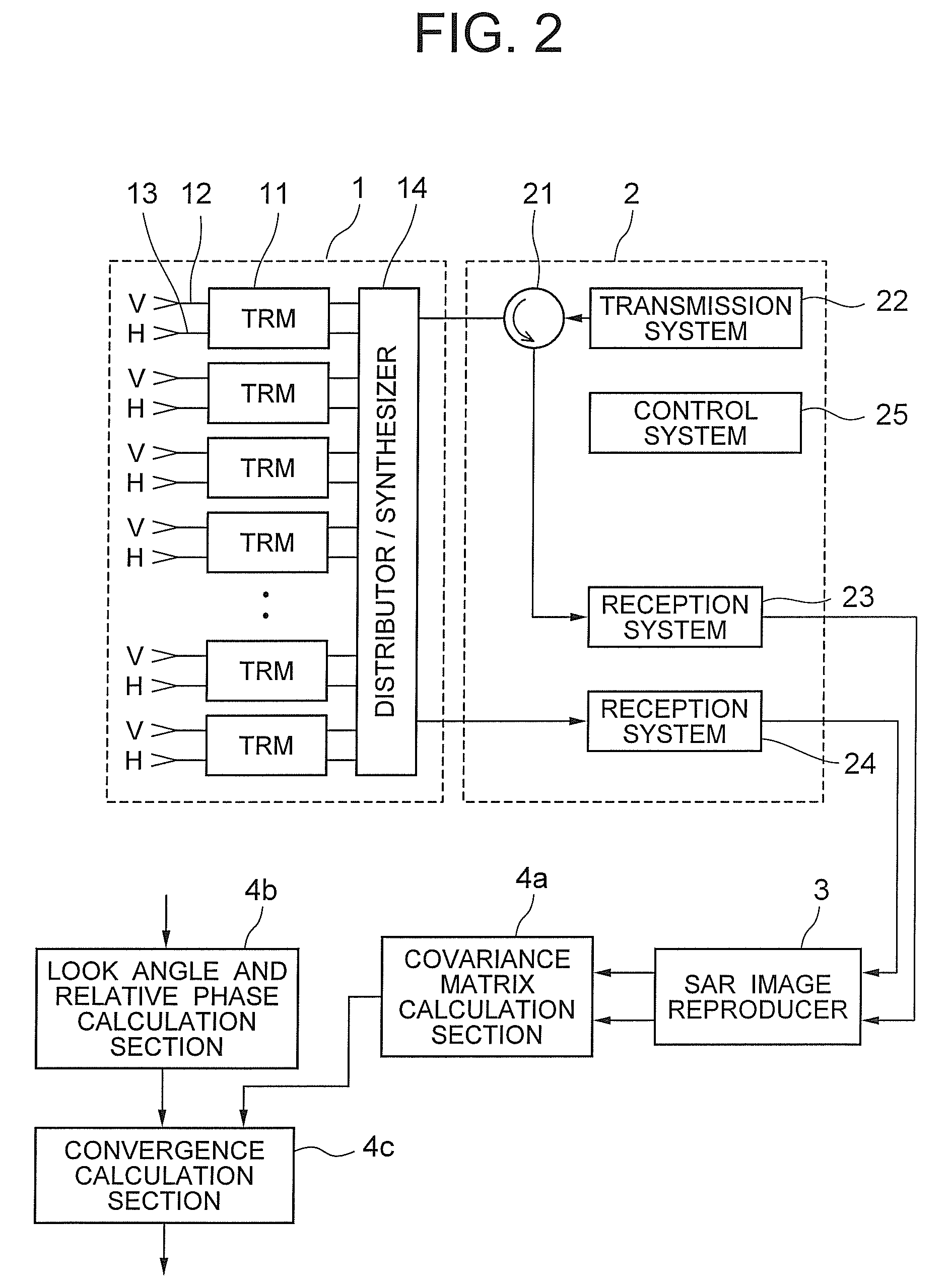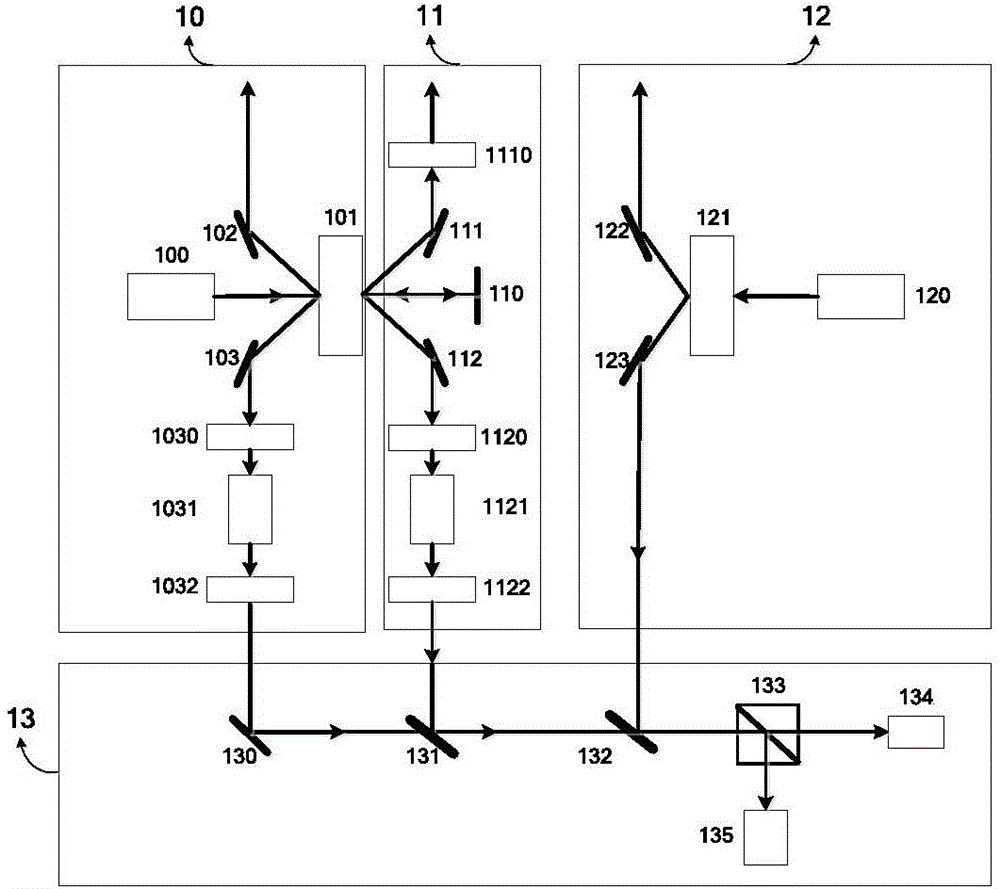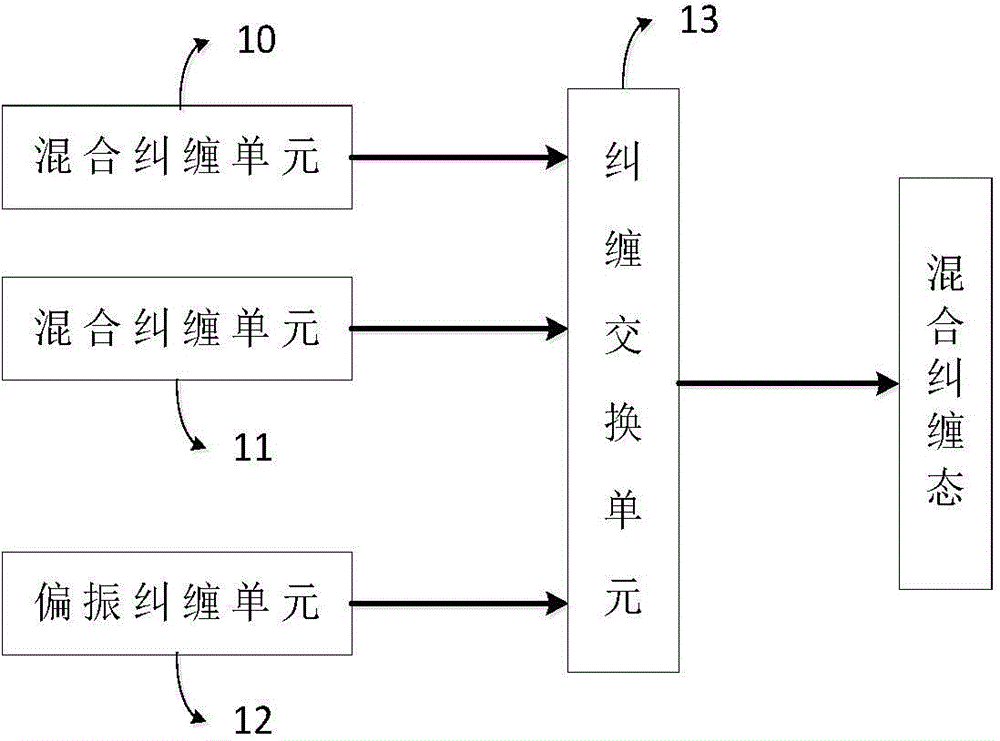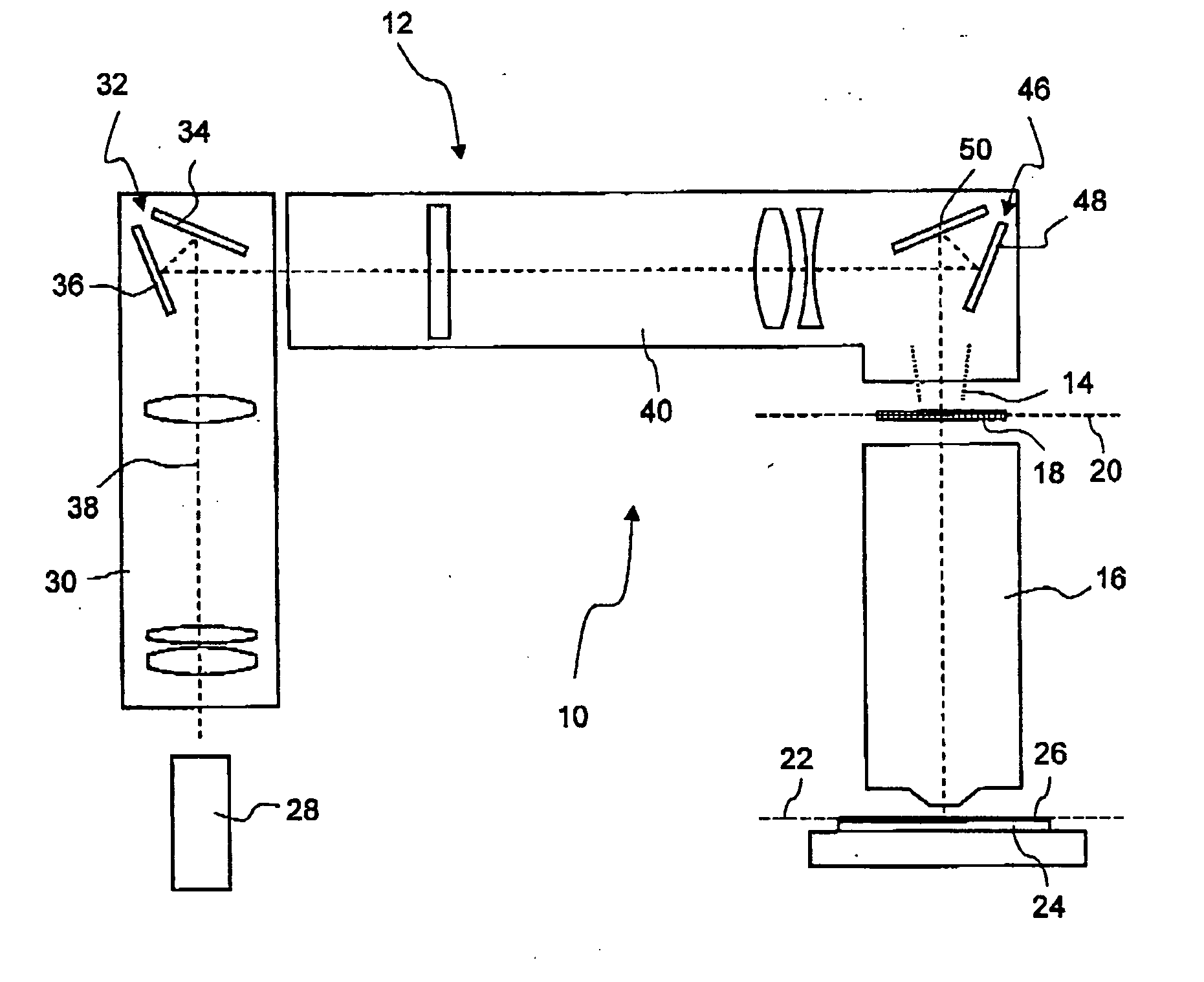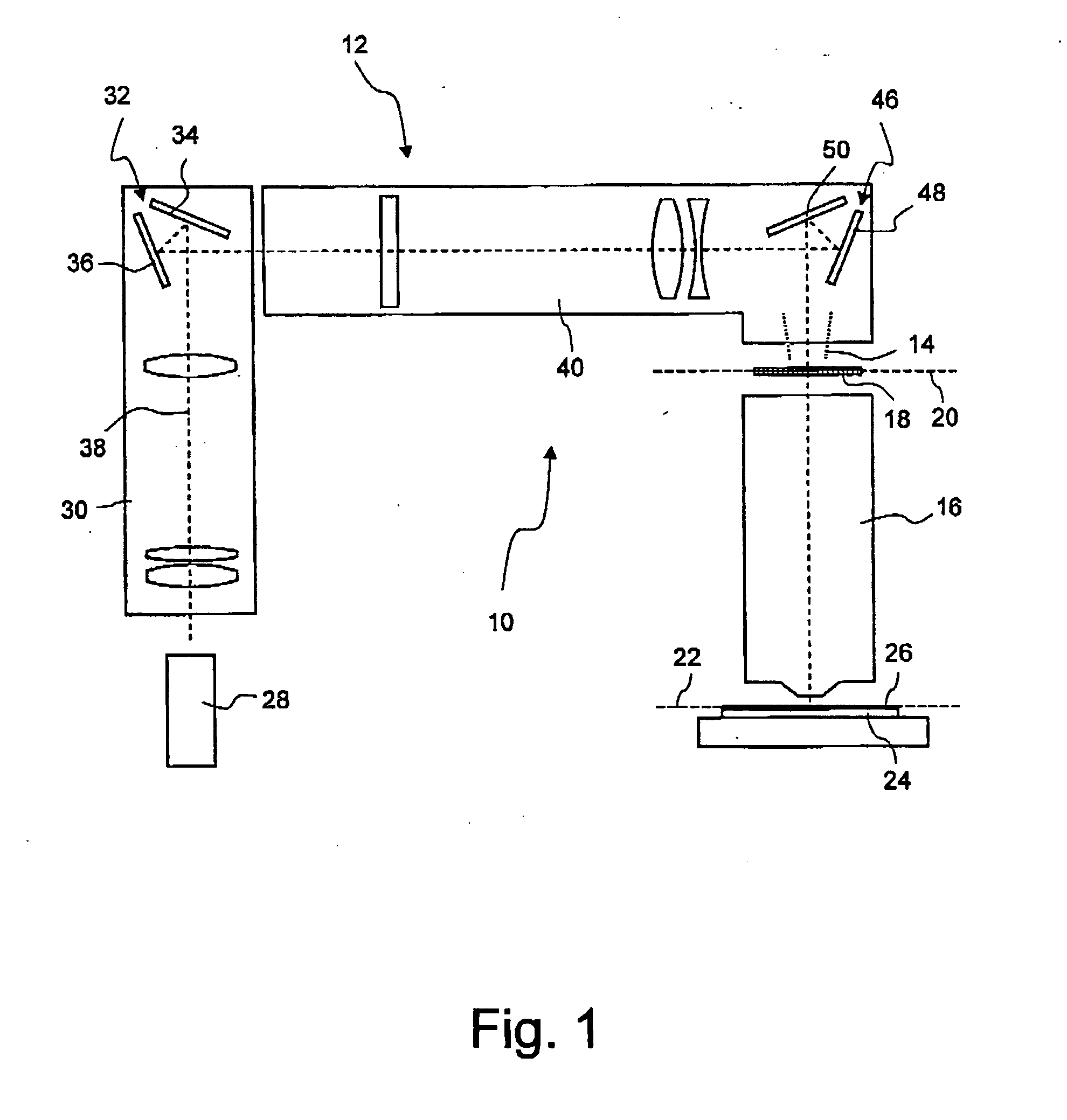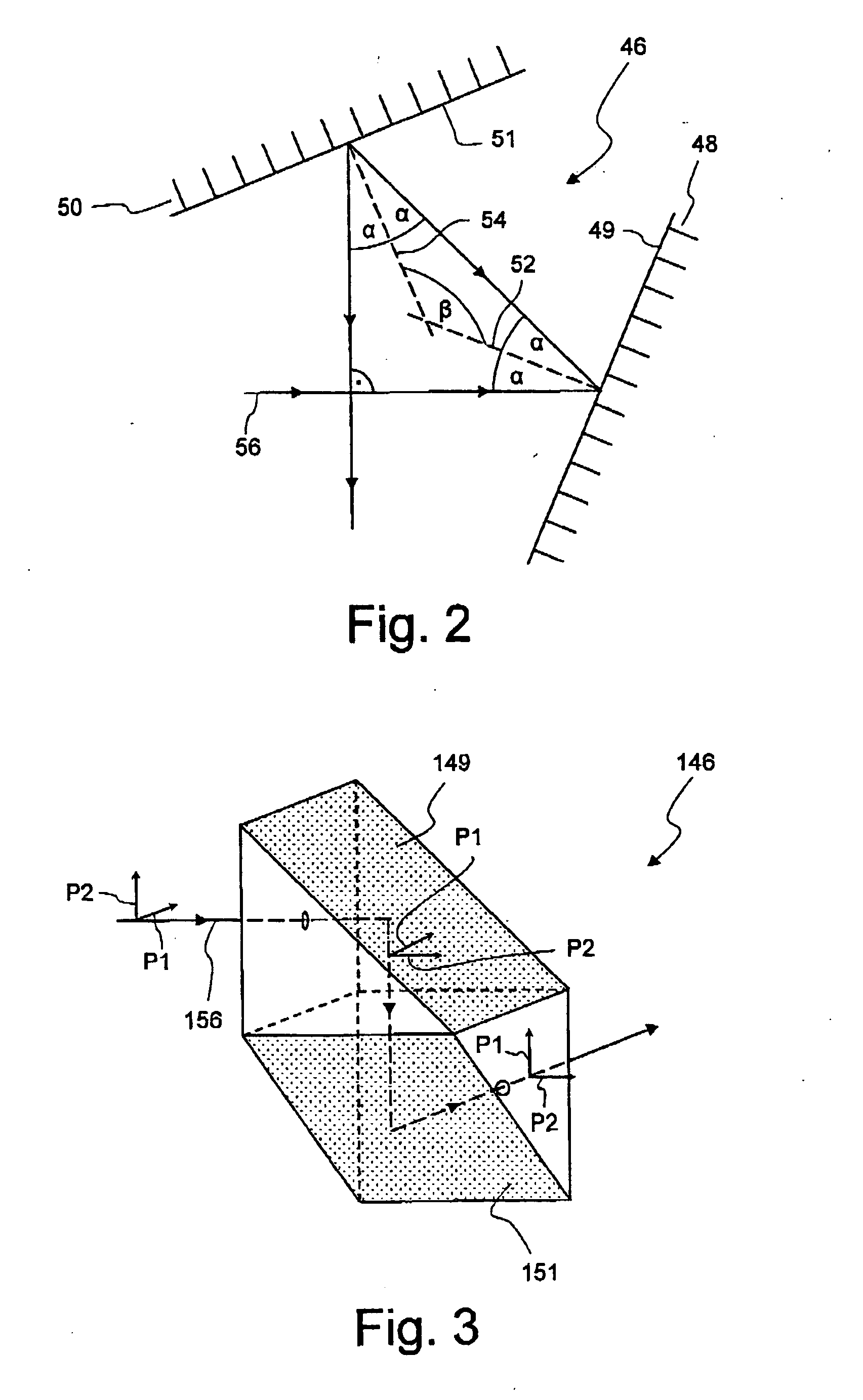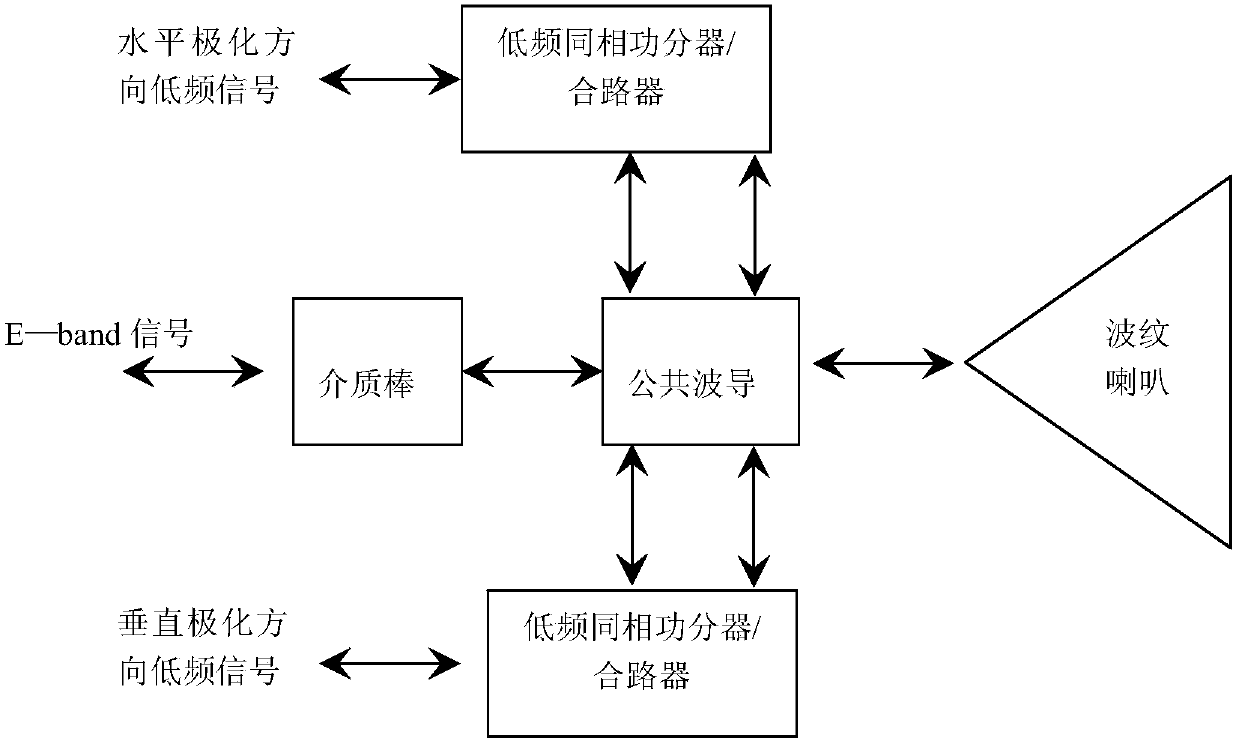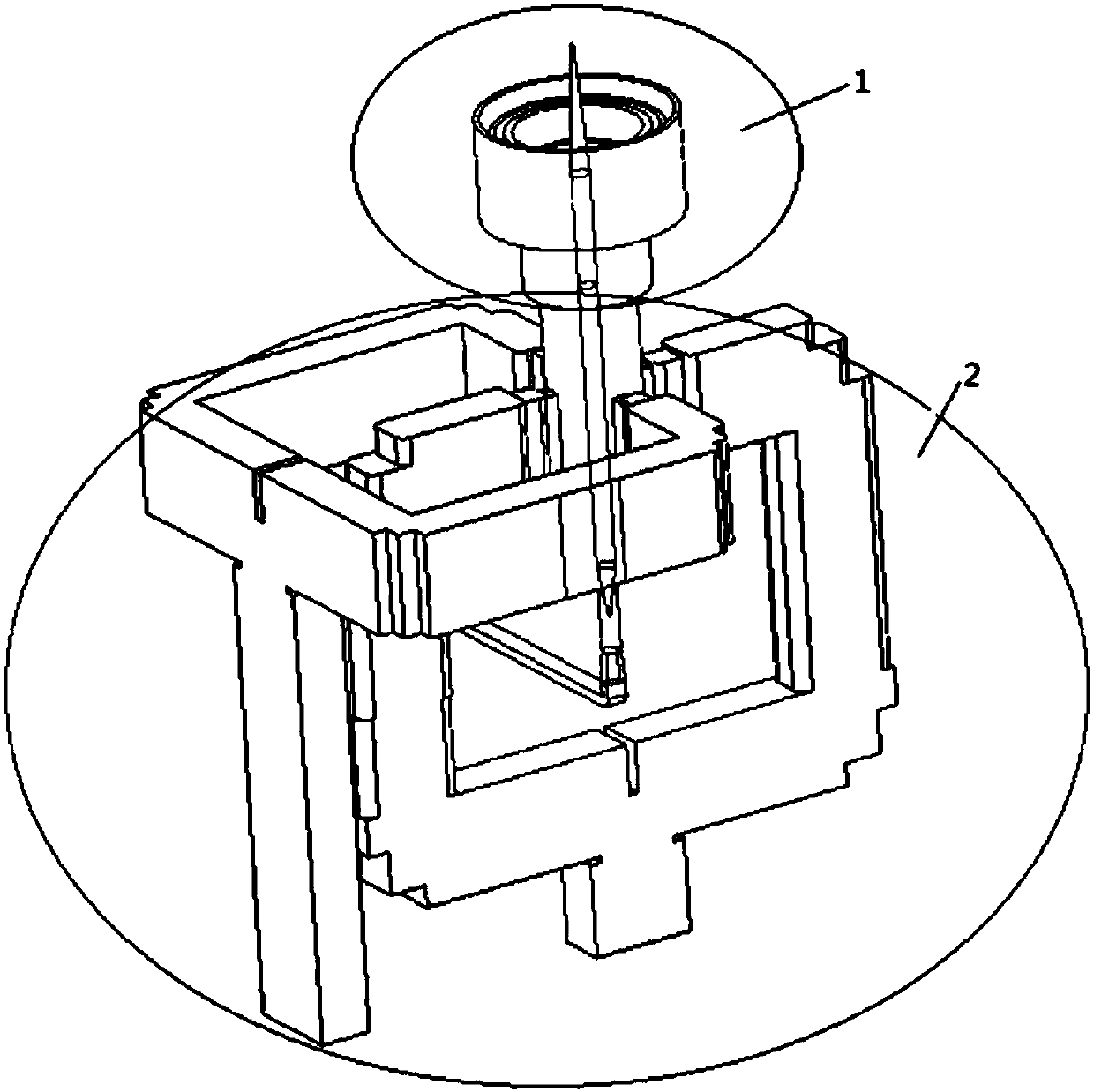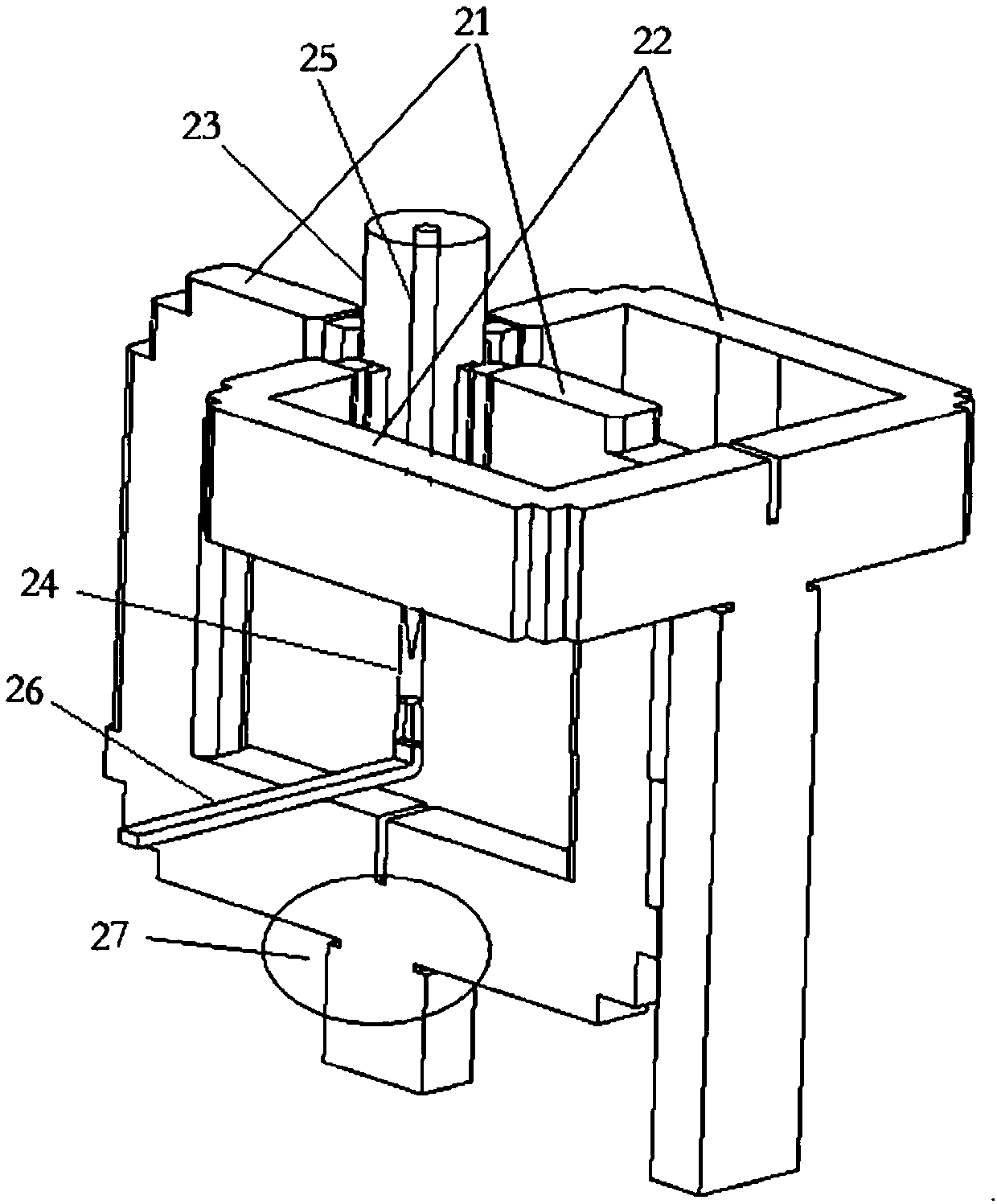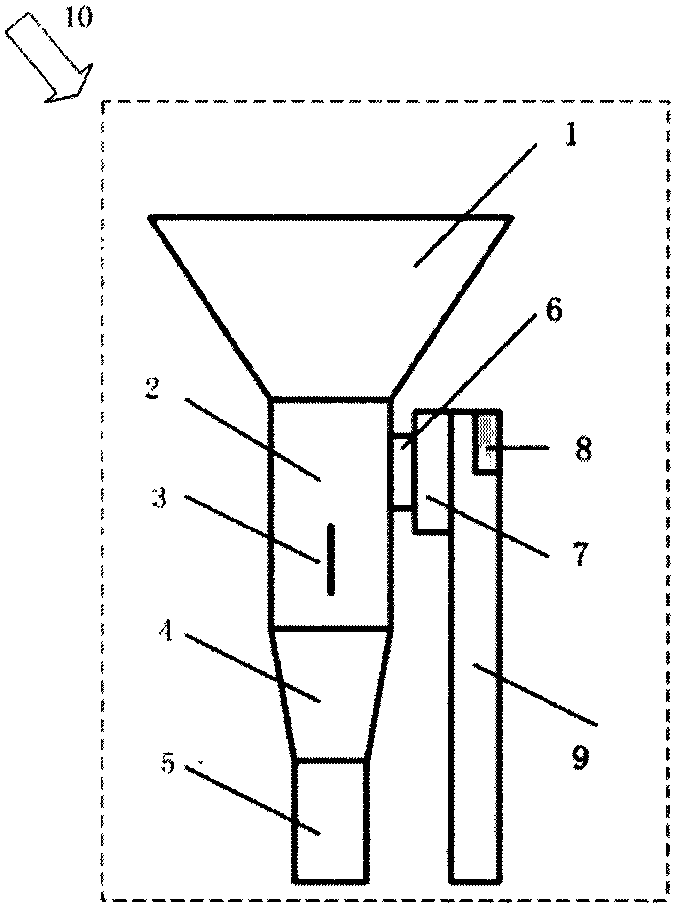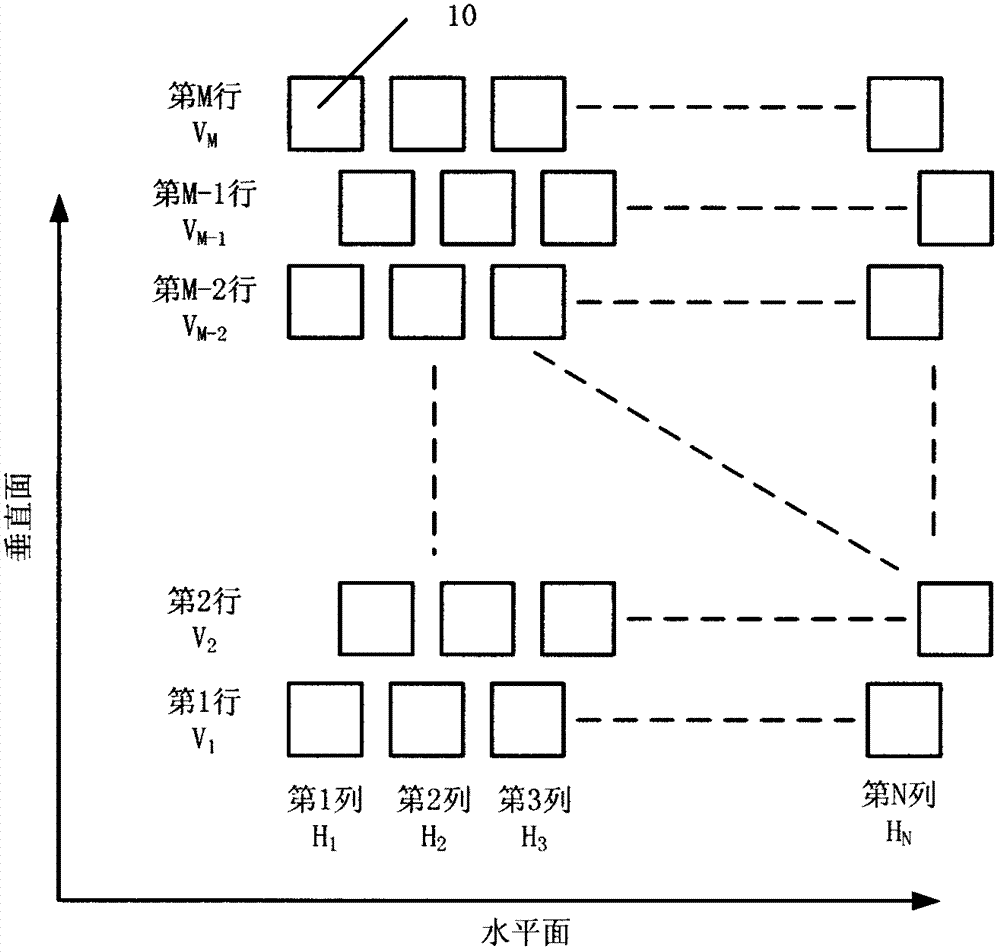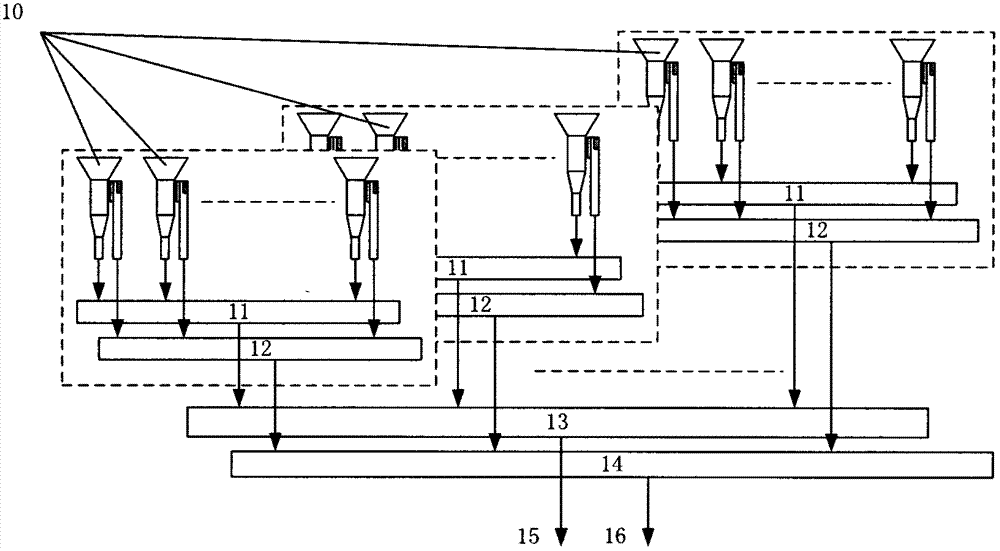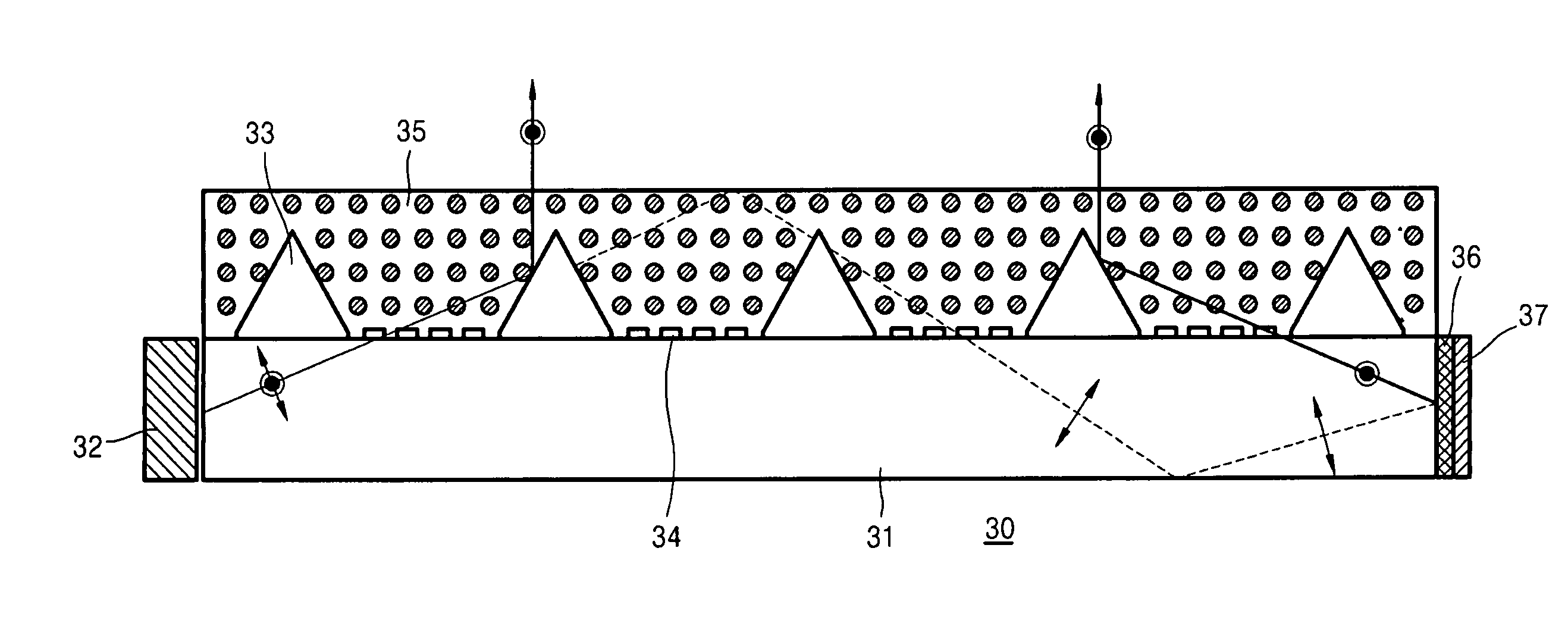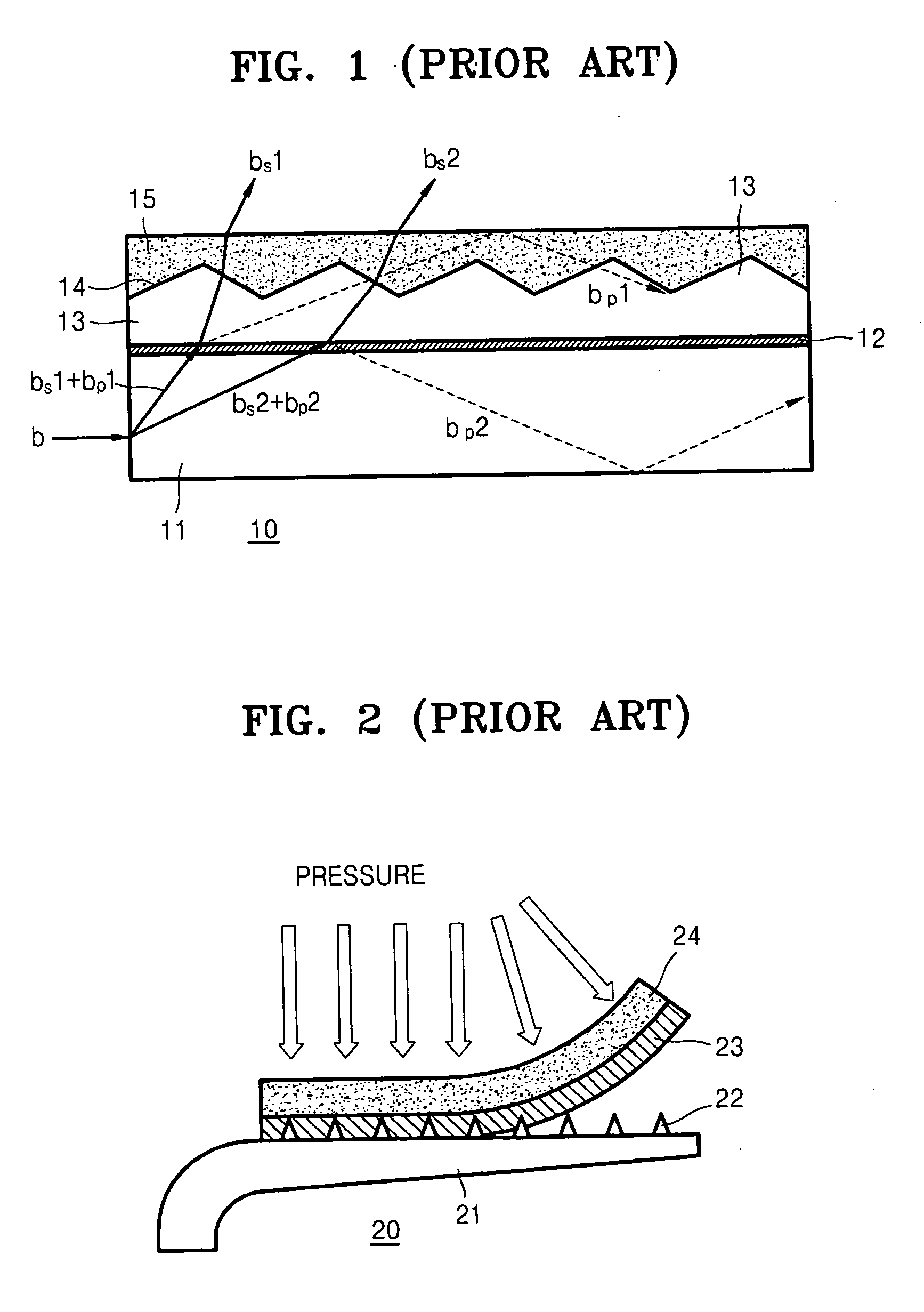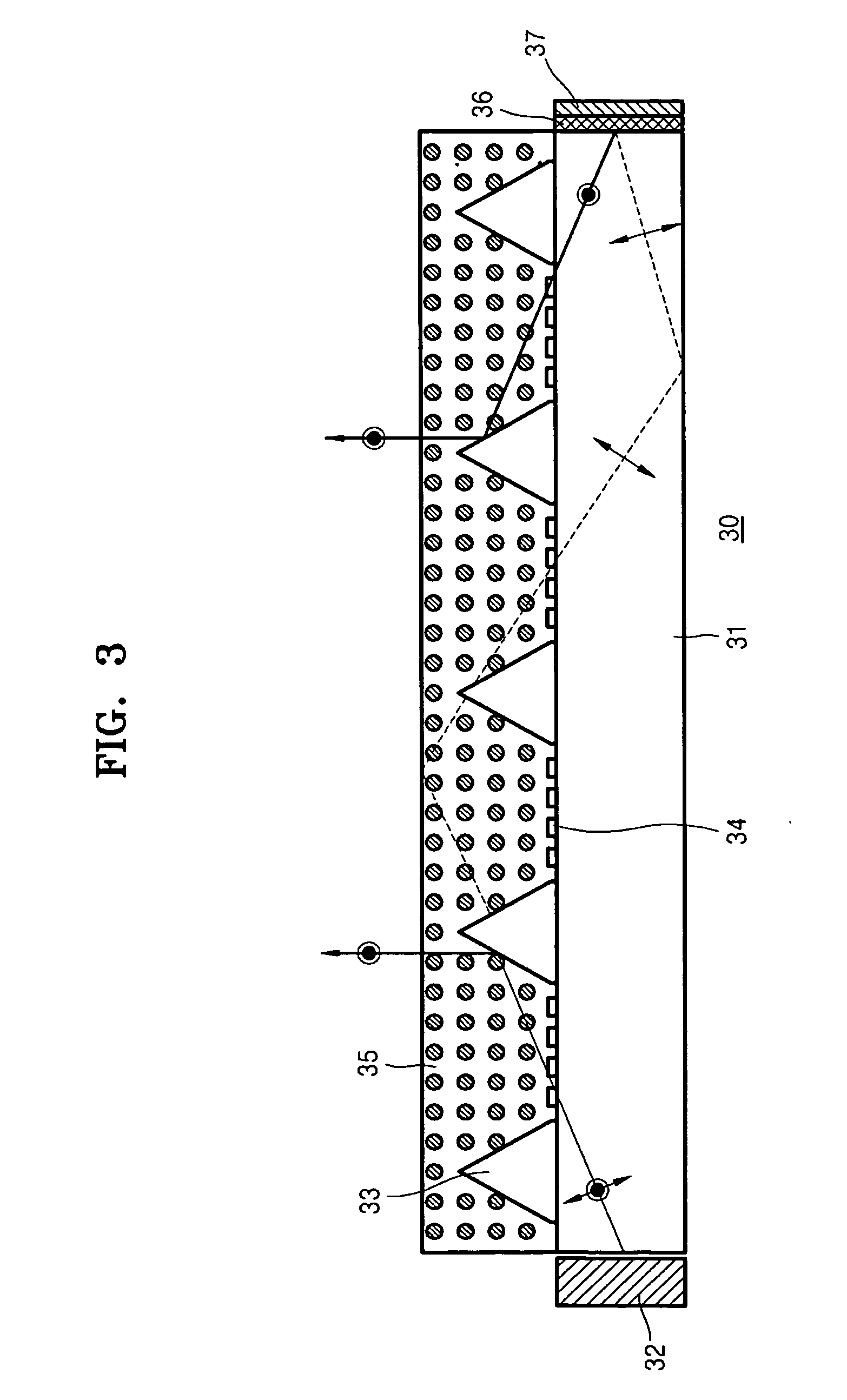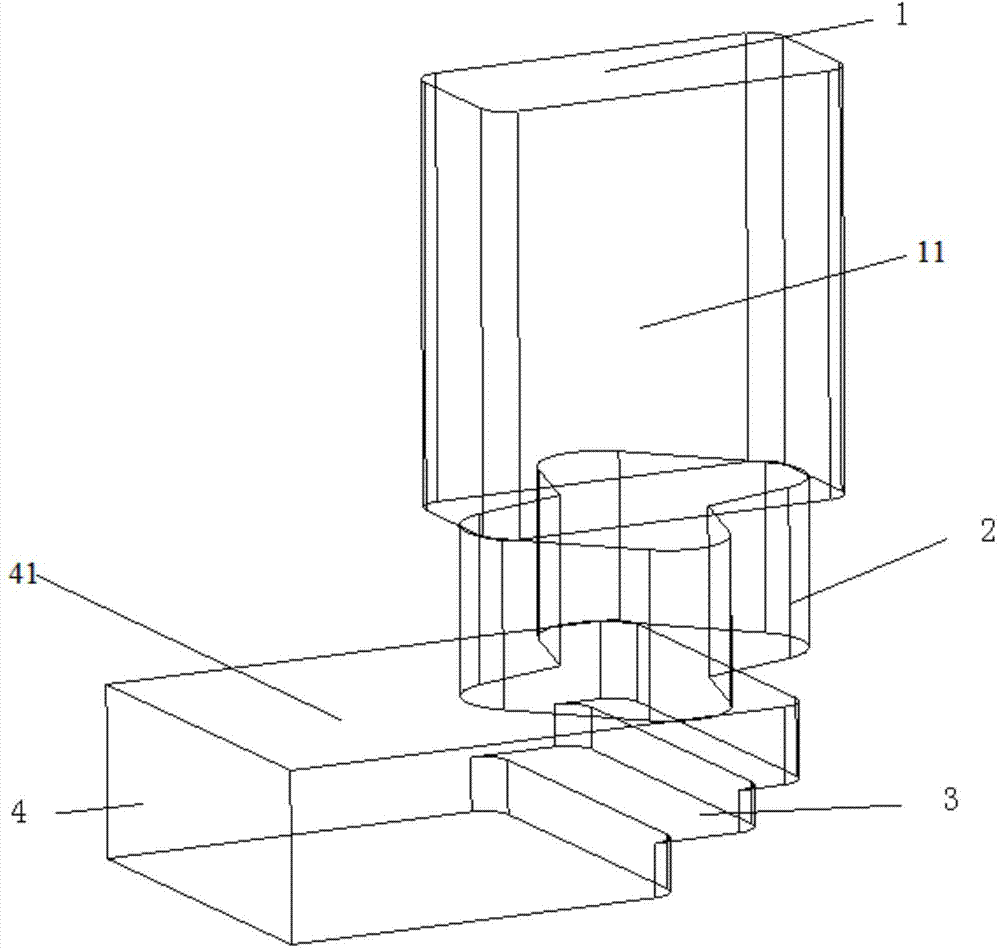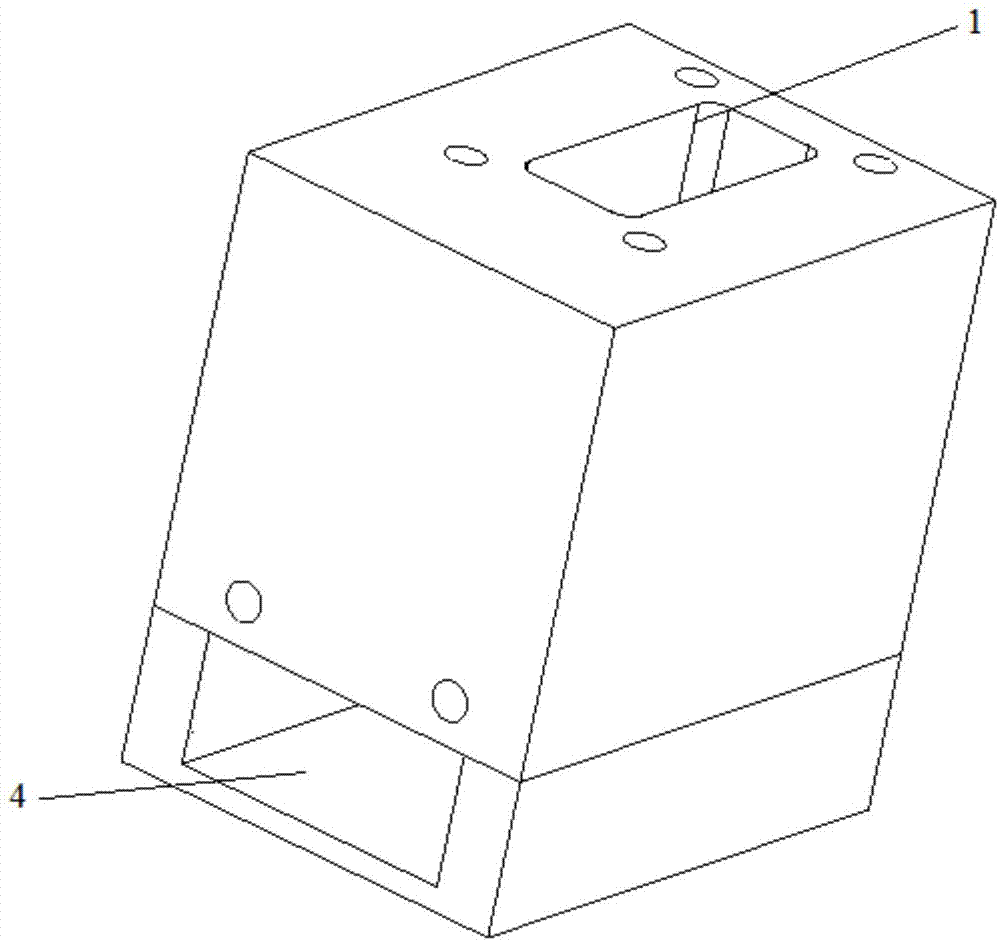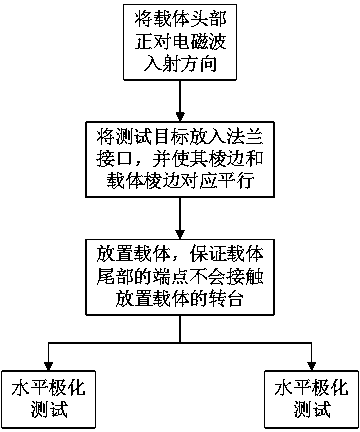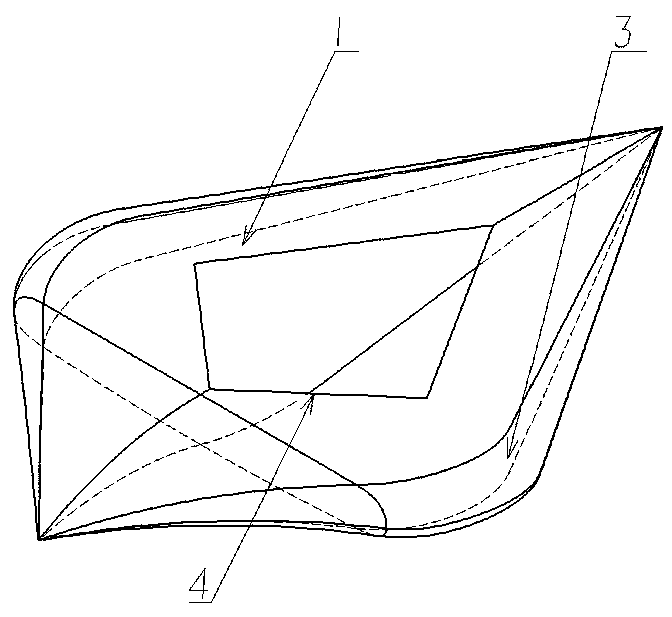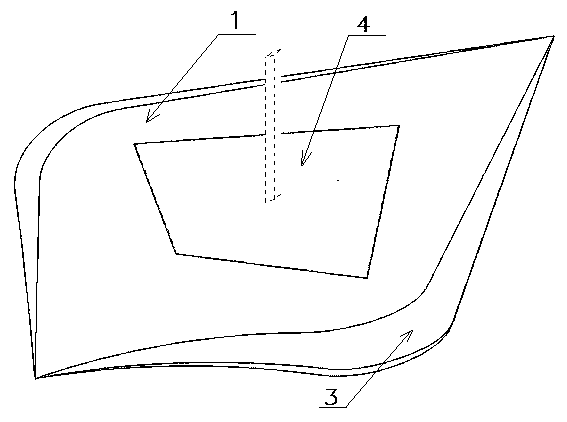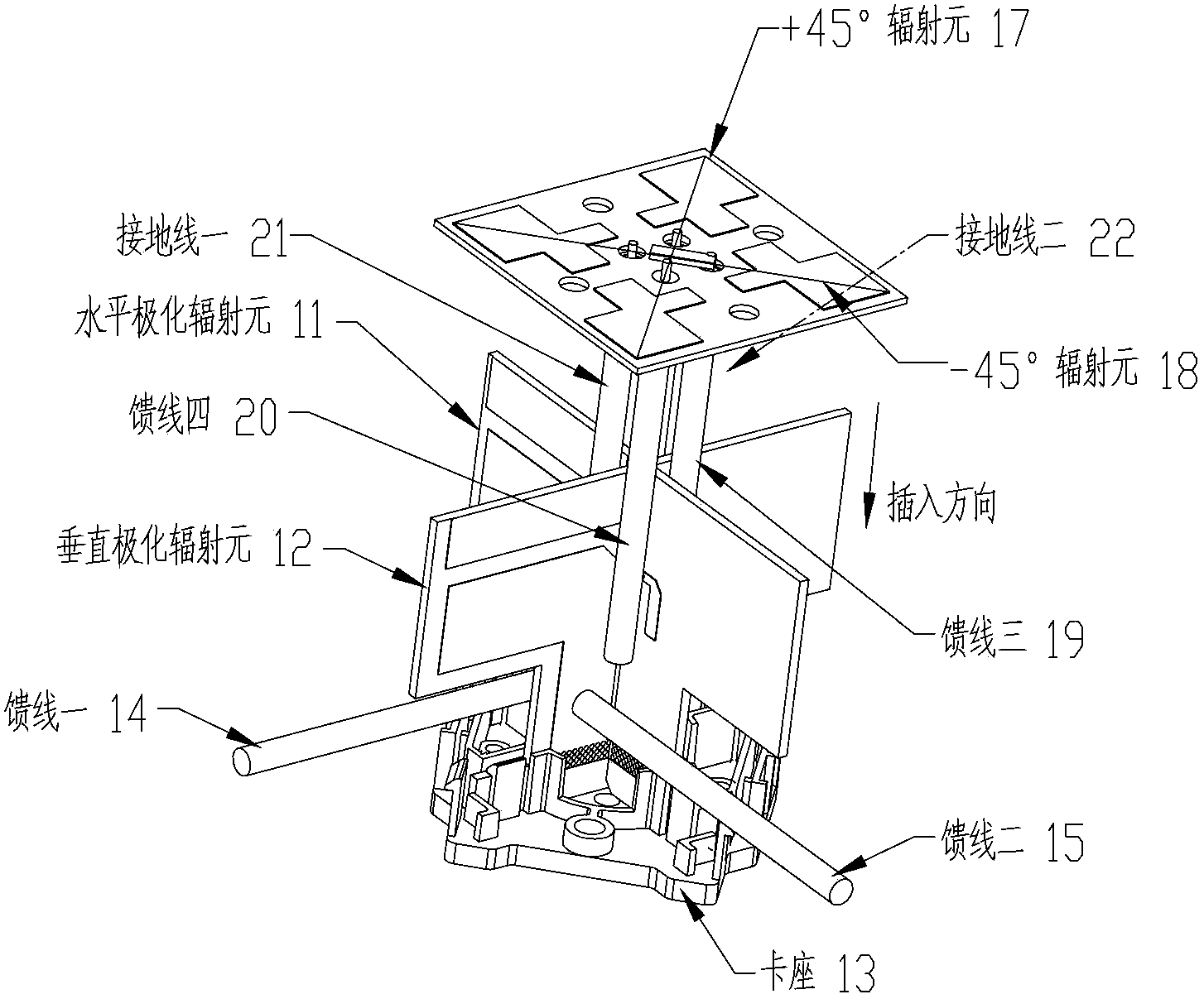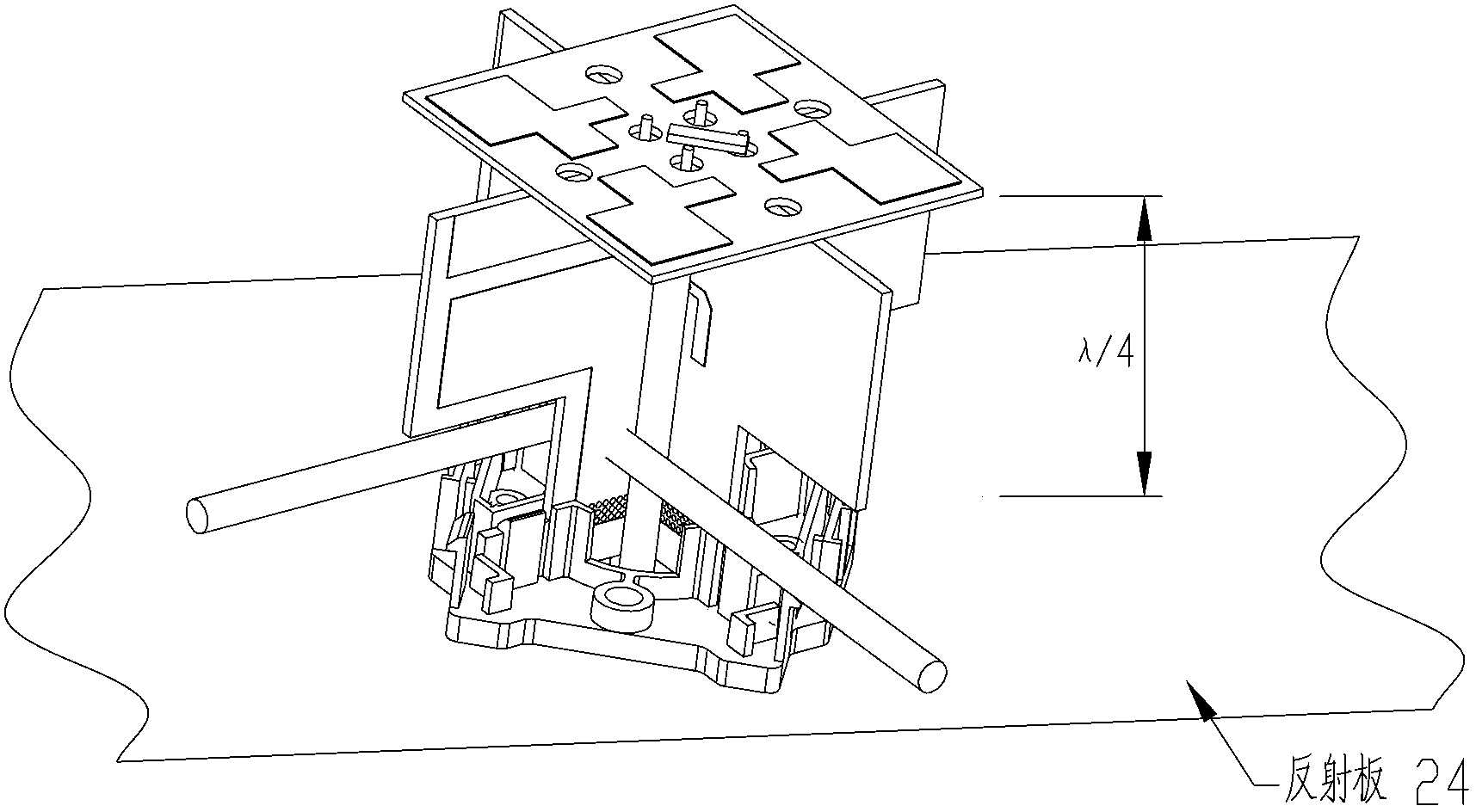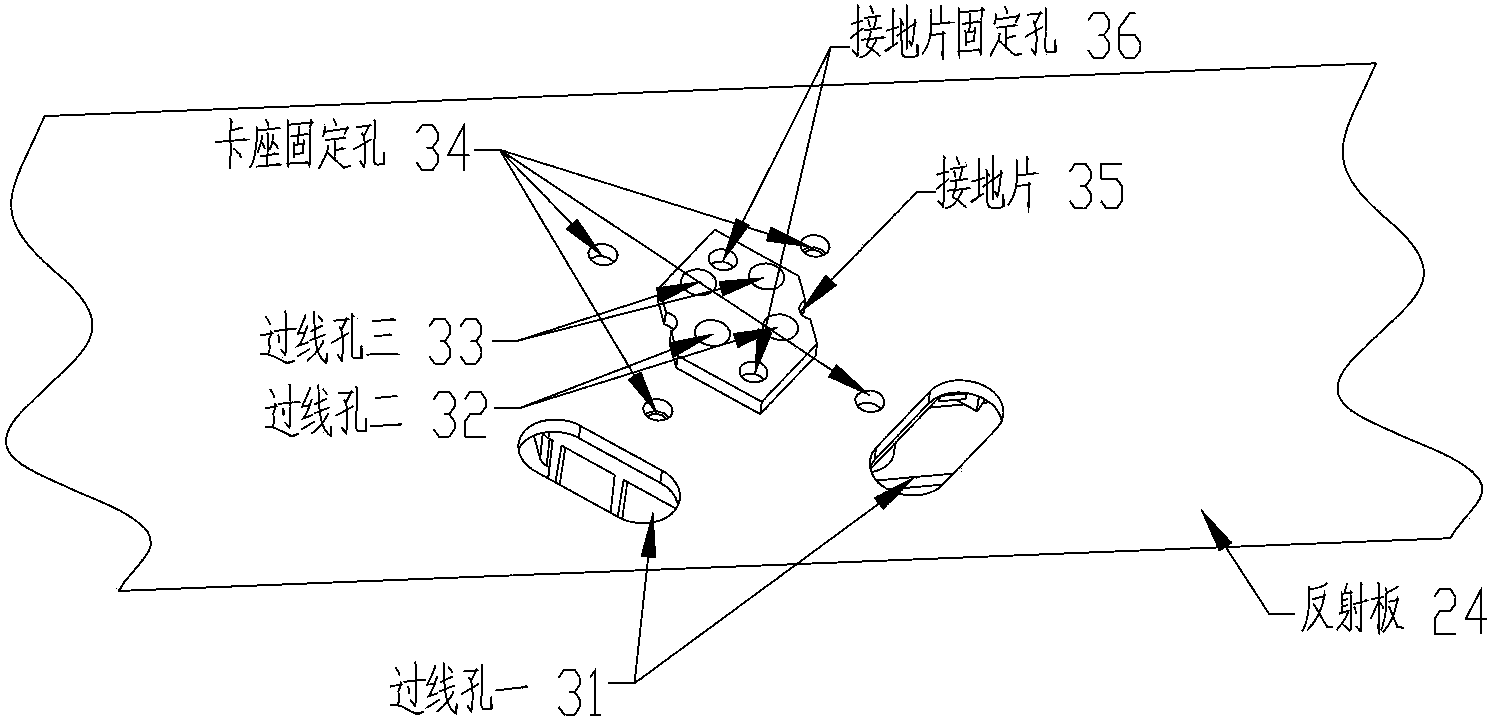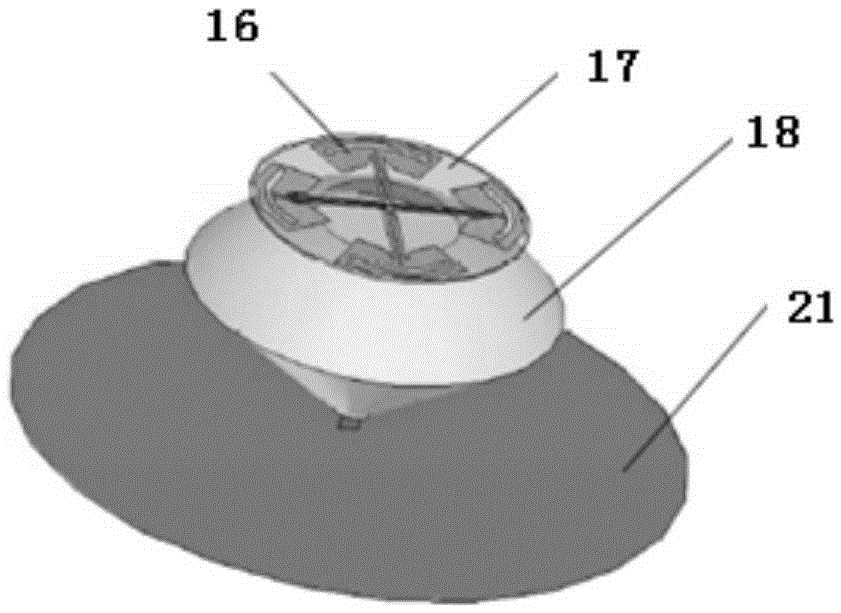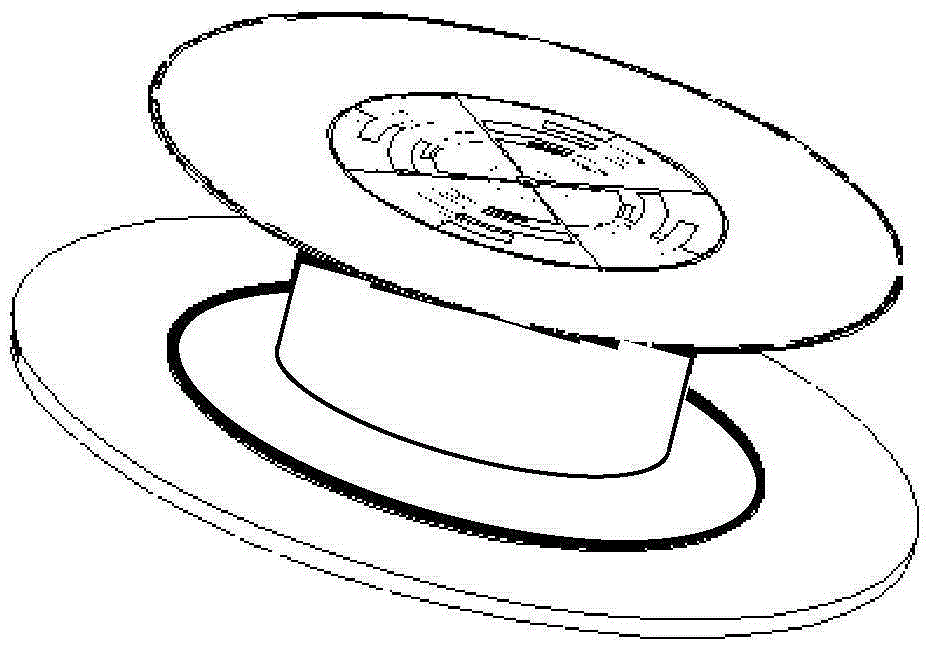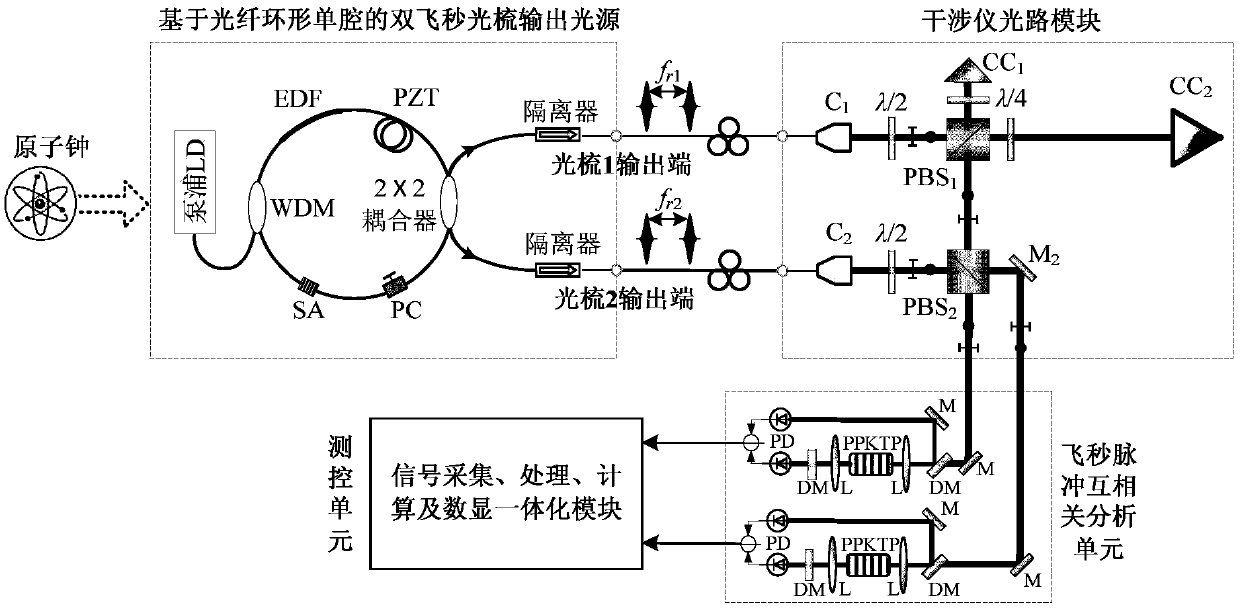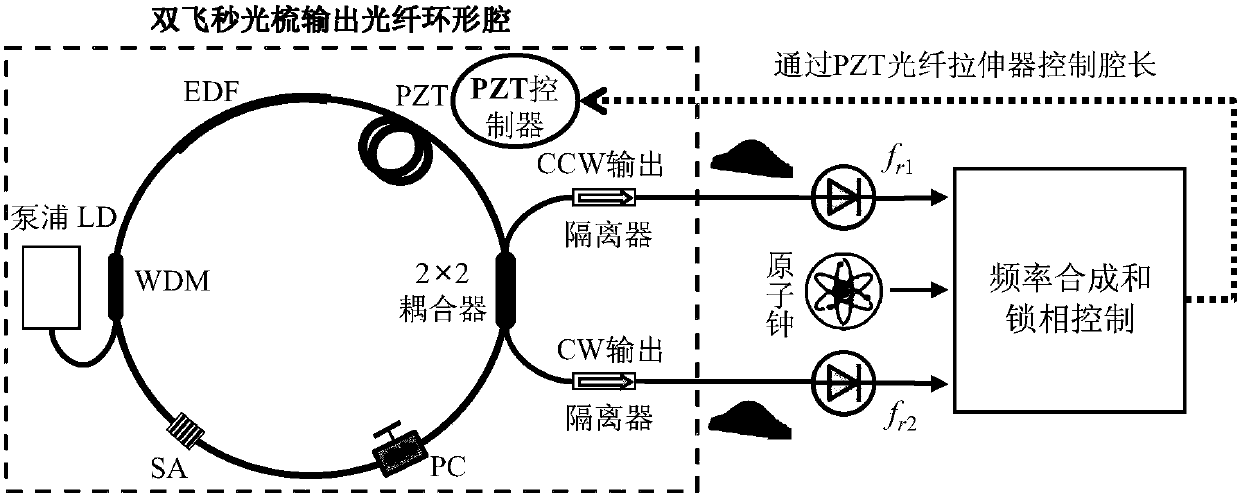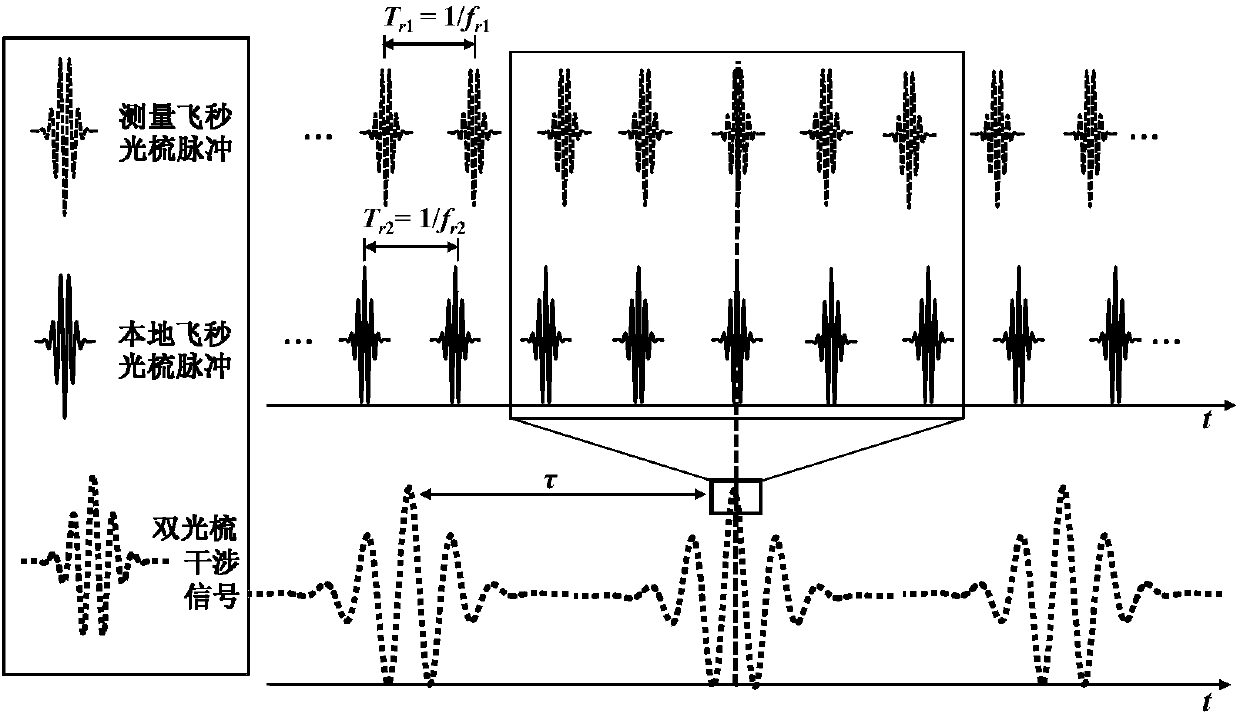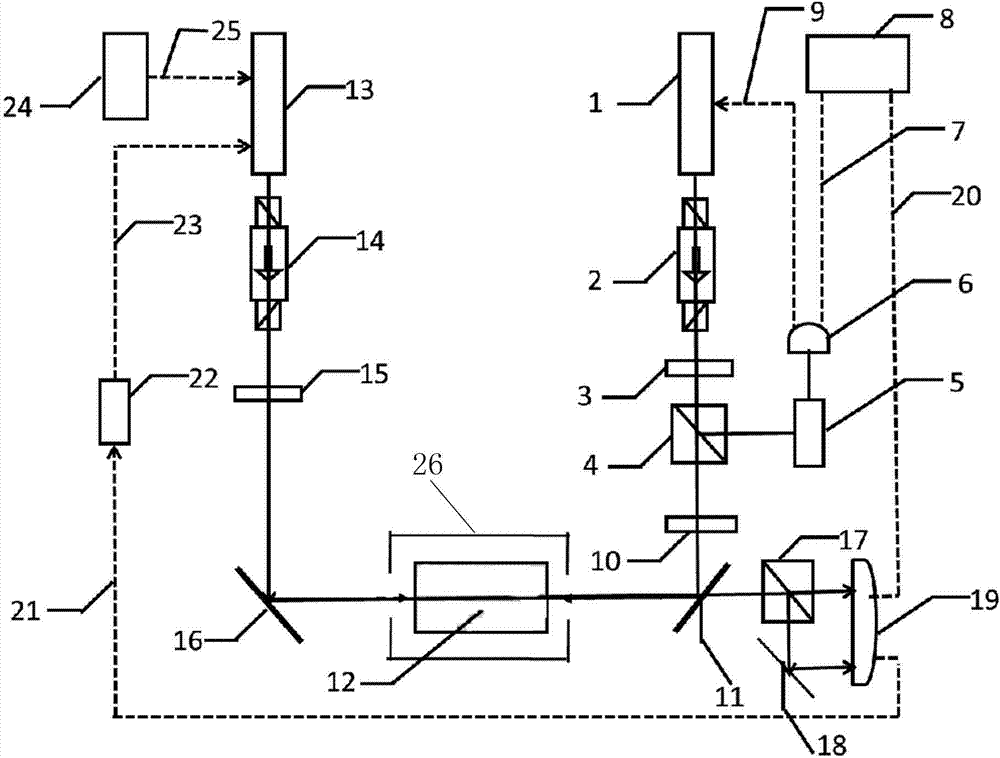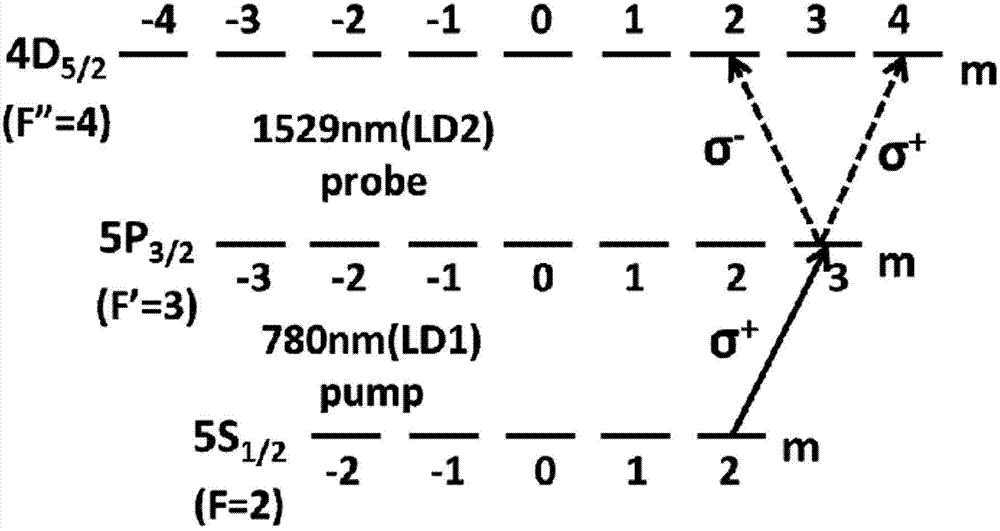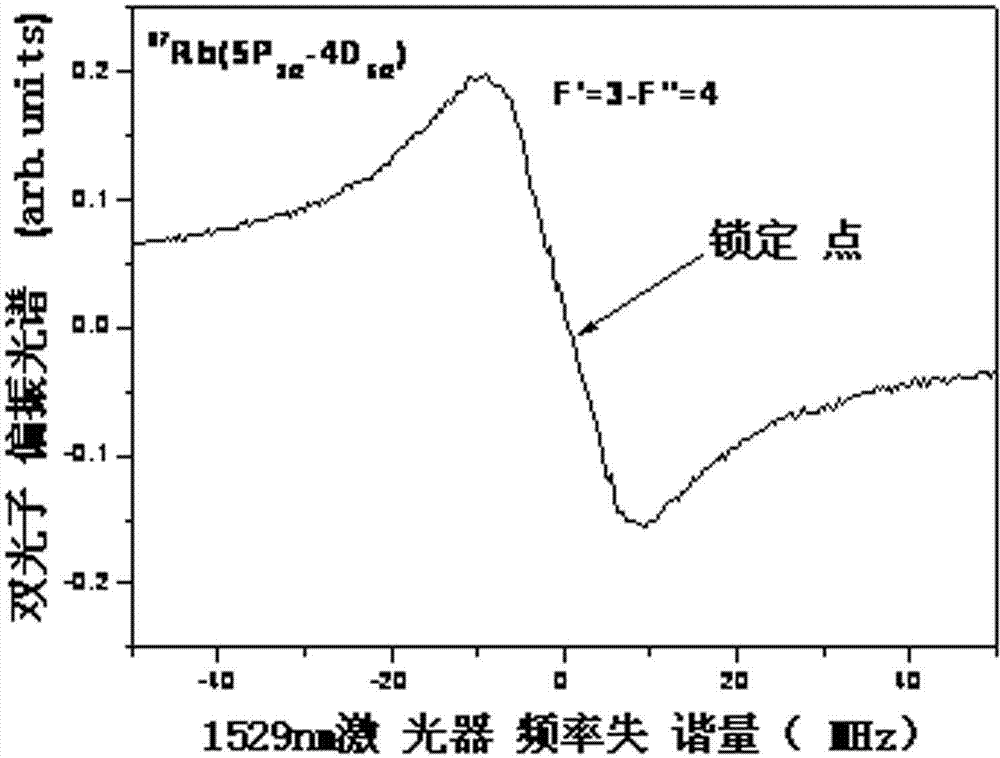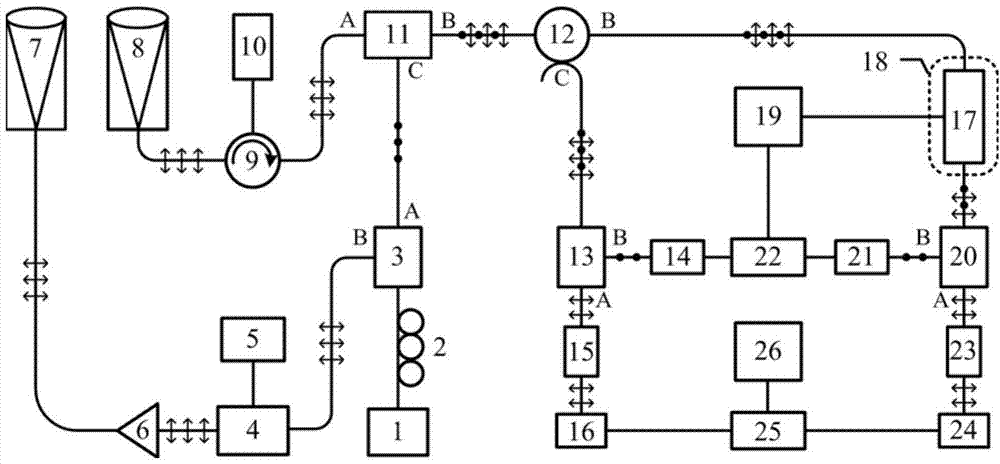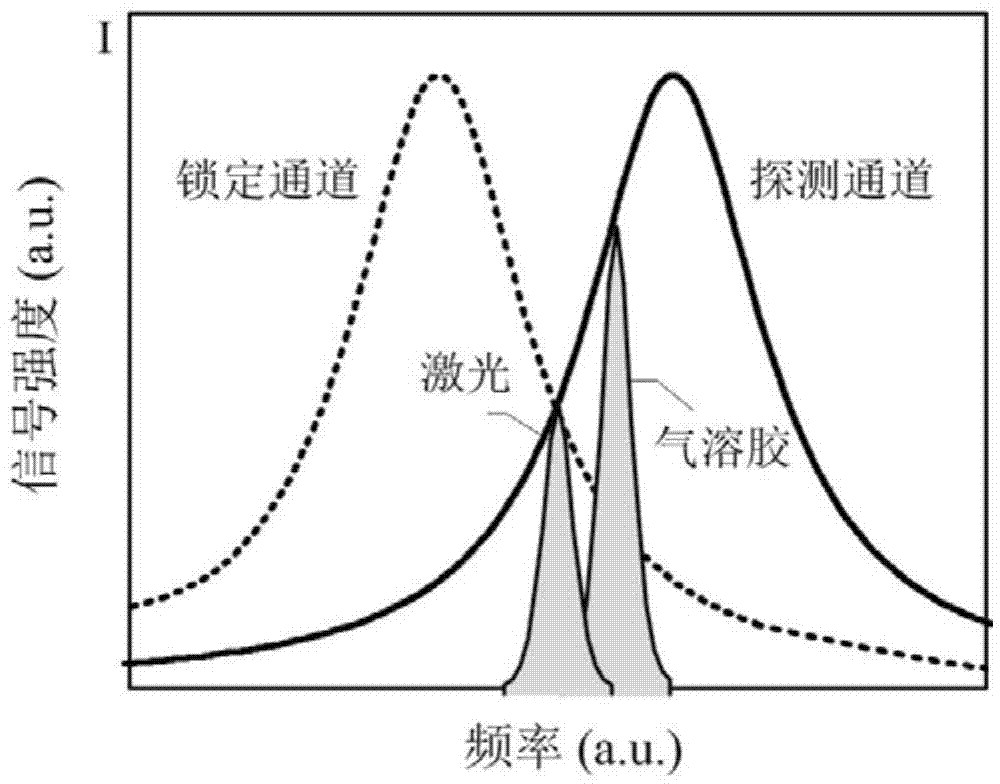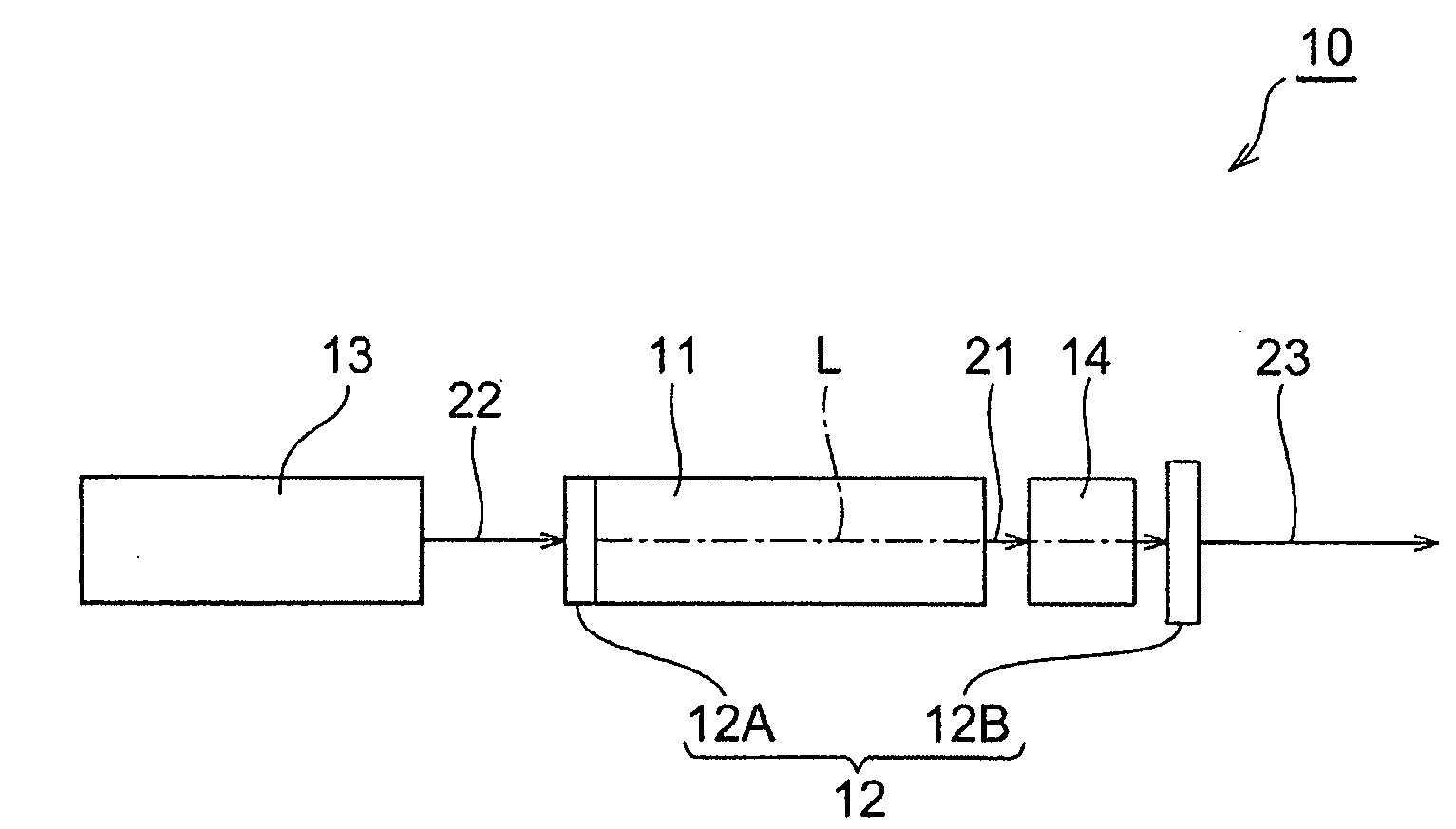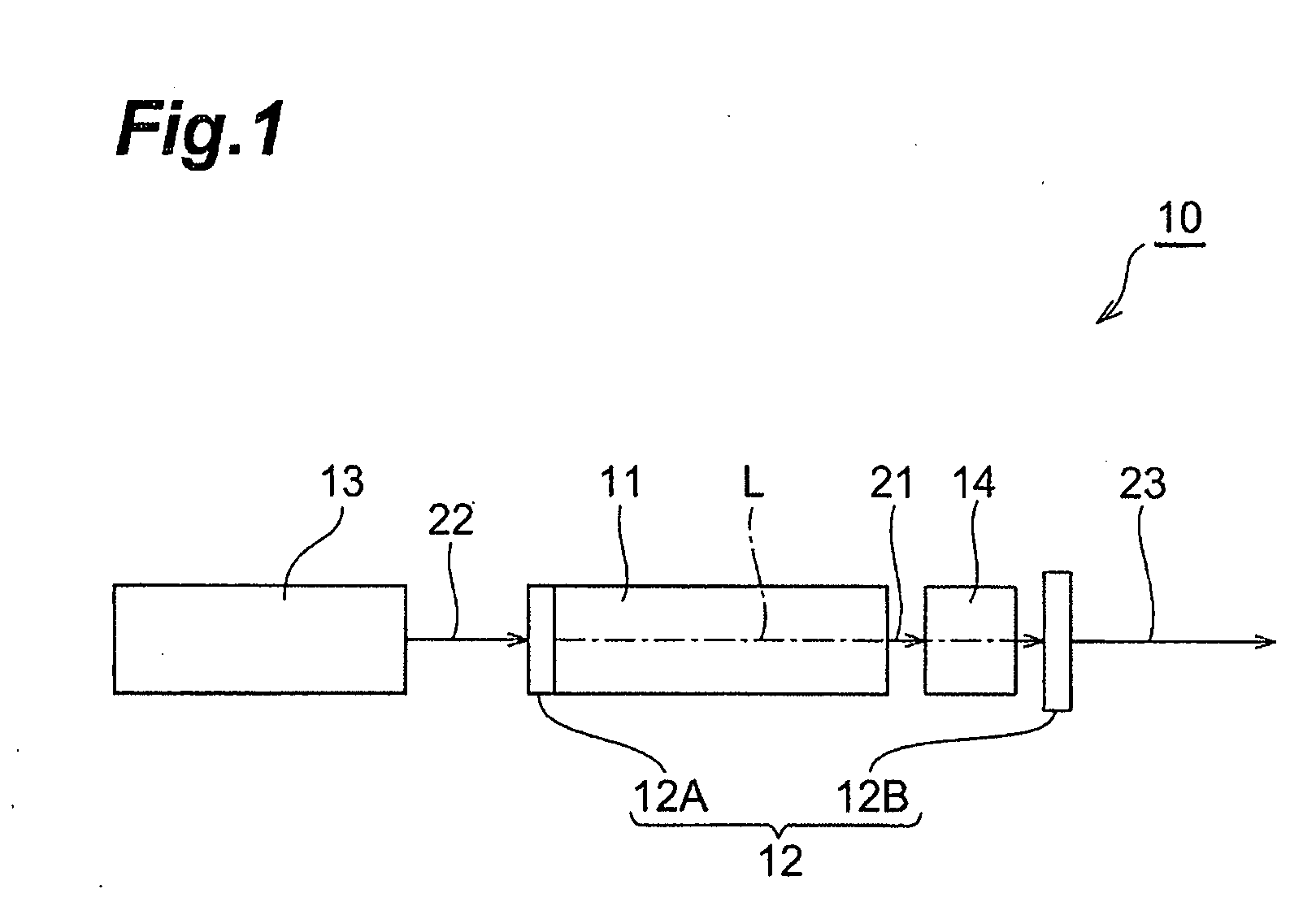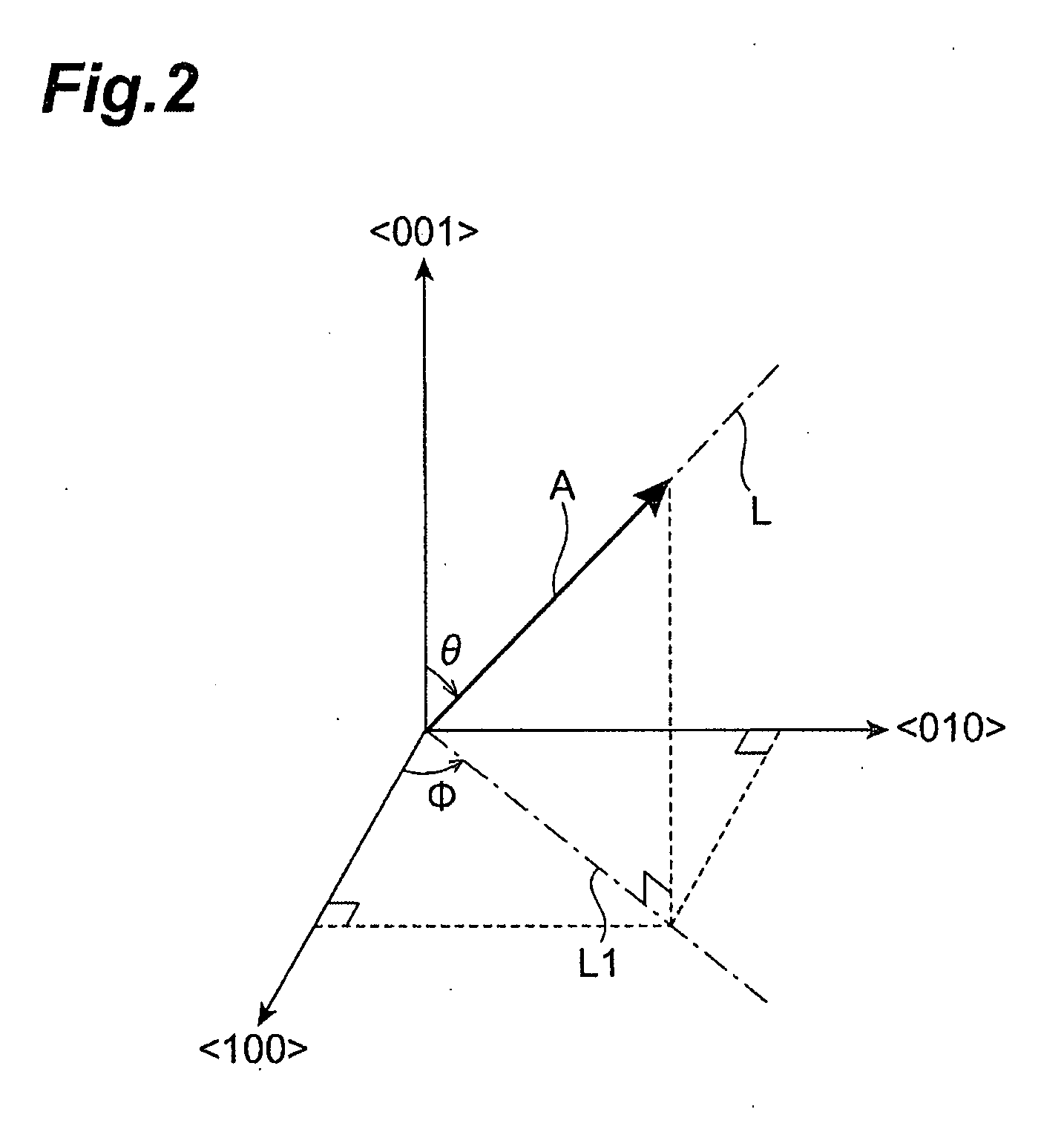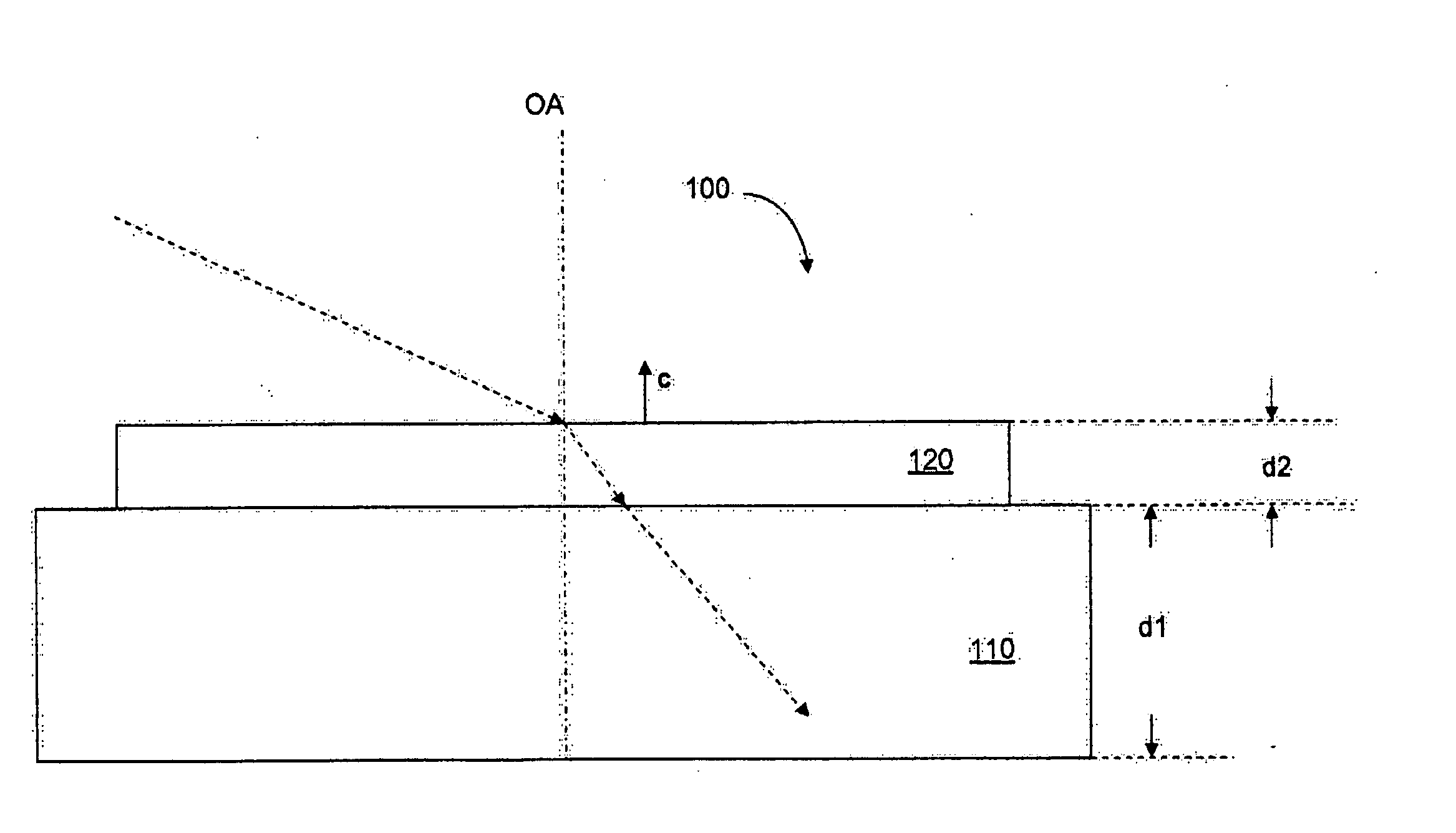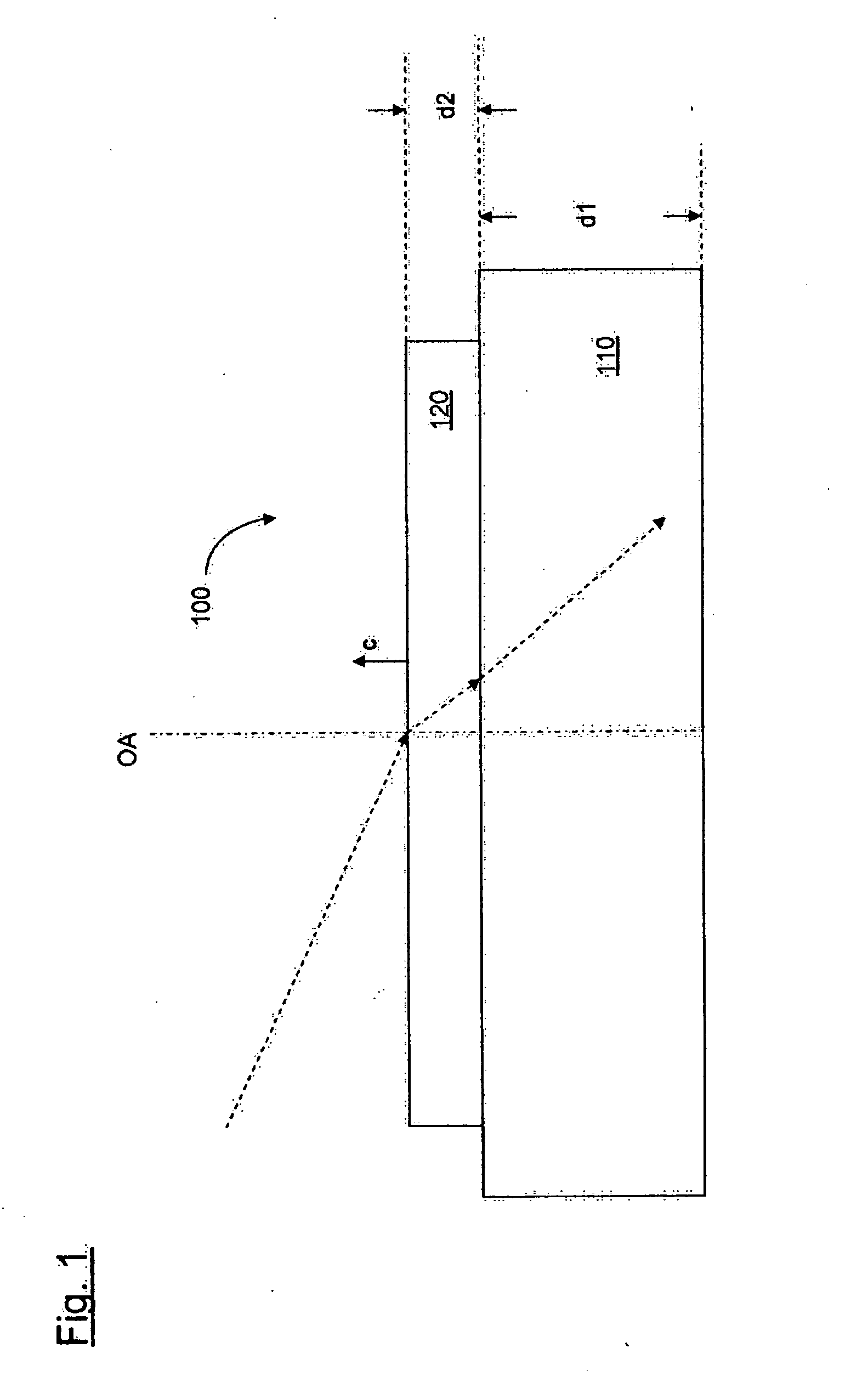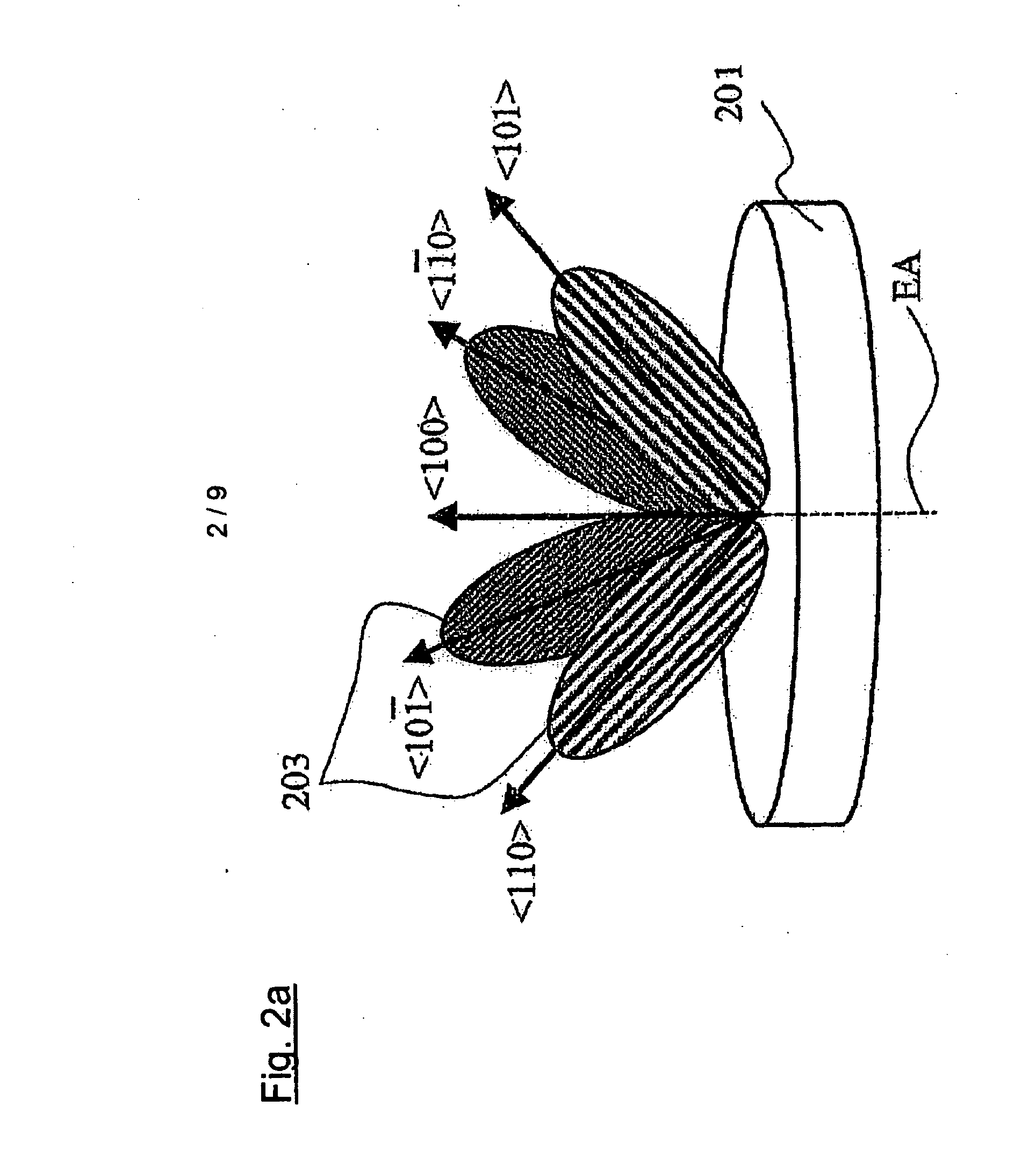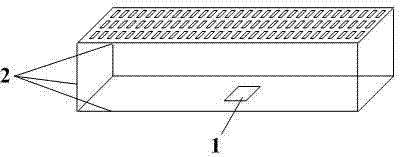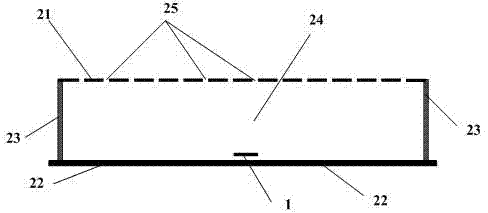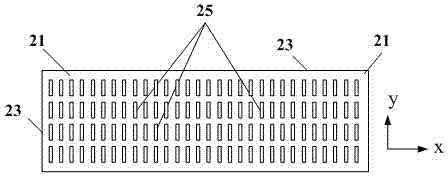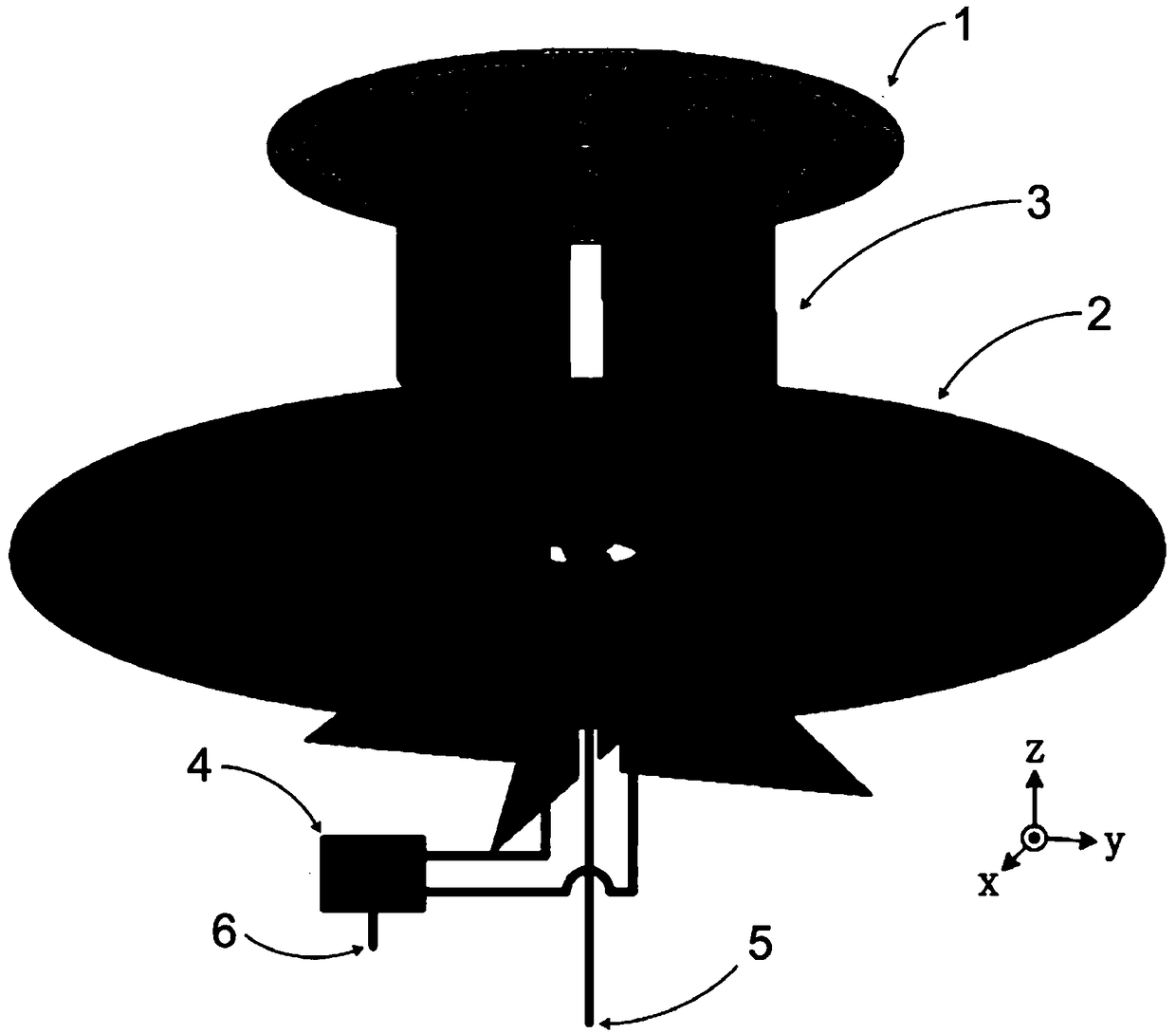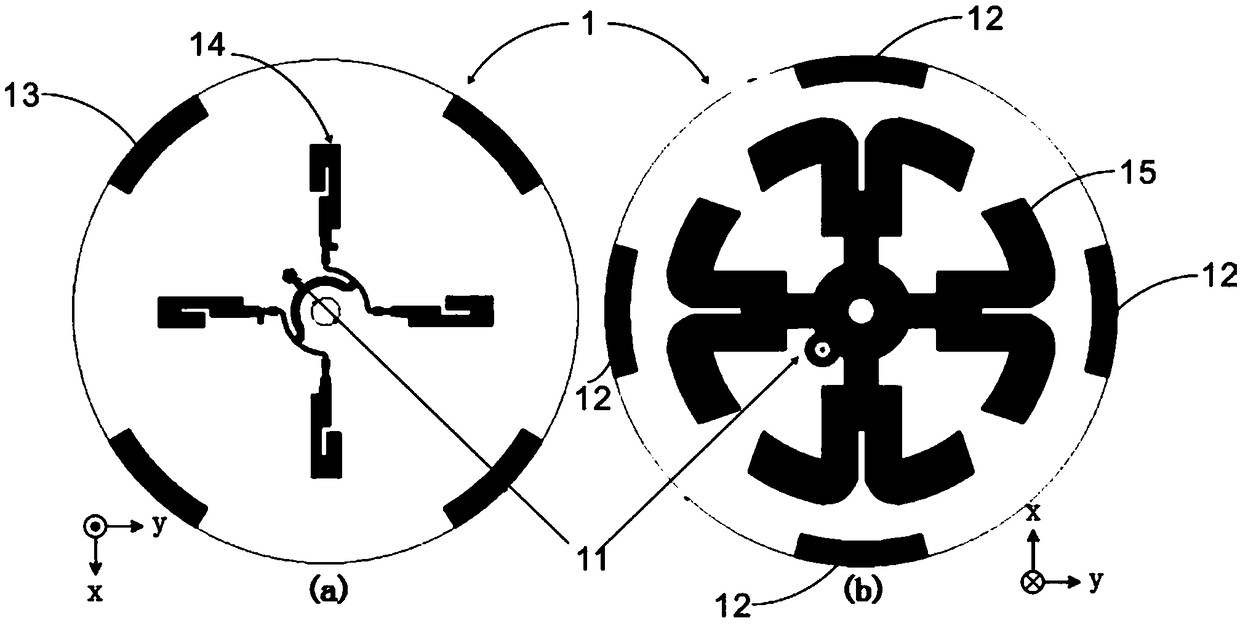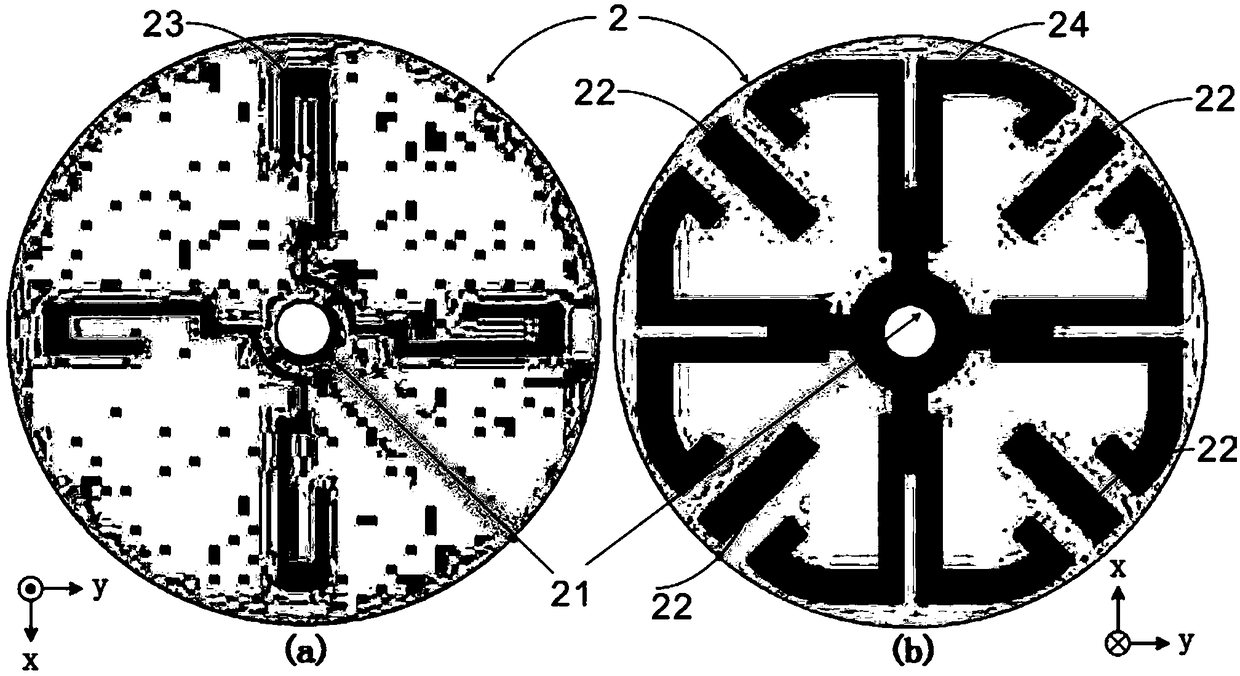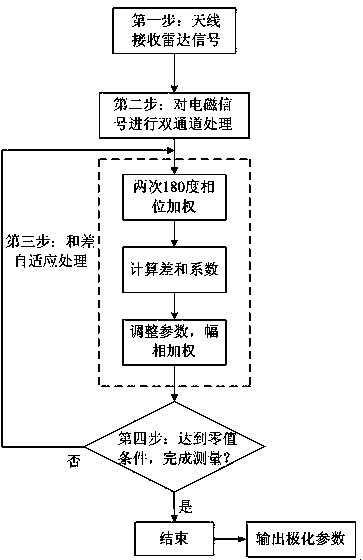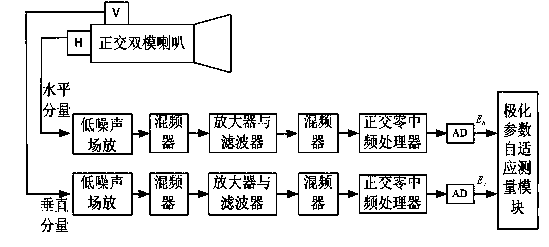Patents
Literature
436 results about "Perpendicular polarization" patented technology
Efficacy Topic
Property
Owner
Technical Advancement
Application Domain
Technology Topic
Technology Field Word
Patent Country/Region
Patent Type
Patent Status
Application Year
Inventor
Multiview autostereoscopic display
InactiveUS20070258140A1Enlarge viewing zoneEasy to viewSteroscopic systemsOptical elementsDisplay deviceOptoelectronics
A multiview autostereoscopic display includes: a backlight; a first polarized panel transmitting light having a first polarization; a first polarization switch changing the polarization of incident light; a first anisotropic device array including anisotropic devices sequentially and repeatedly arranged in a horizontal direction, such that light transmitted from neighboring anisotropic devices has perpendicular polarizations; a lenticular lens array having lenticular lens devices, arranged horizontally, which separate incident light into different directions; a second polarized panel transmitting light having a second polarization; a second anisotropic device array having anisotropic devices alternately horizontally arranged, such that the anisotropic devices transmit light having perpendicular polarizations; a second polarized switch changing the polarization of light from the lenticular lens array; a third anisotropic device array having anisotropic devices, alternately vertically arranged, such that the anisotropic devices transmit light having perpendicular polarizations; and a display panel forming an image by modulating incident light.
Owner:SAMSUNG ELECTRONICS CO LTD
Process for manufacturing high gain dual-linear polarization or dual-circle polarization waveguide array antennas
ActiveCN101083359AFix compatibility issuesResolve mutual interferencePolarised antenna unit combinationsResonant cavityManufacturing technology
The invention publishes a wave guide array antennas manufacture method of high gain crewel polarized or the double circular polarized, which relates to a wave guide array antennas manufacture technique in the correspondence broadcast and measure-control domain. The invention has designed the radiation level, the horizontal polarization or the circular polarization feed wave guide level, the perpendicular polarization feed wave guide level, the perpendicular polarization feed wave guide lap, the feed way of using the square or the circular waveguide resonant cavity, has solved the receive and launch of the double polarized electromagnetism signal; The horizontal polarization uses the coupling feed way and the perpendicular polarization uses the direct feed way, completes the separation of the two polarized components, simultaneously may realizes the double circular polarized work. The invention has the double polarized radiation, the high feed efficiency, compact structure, low processing cost and so on merits, is specially suitable for the manufacture of each kind of satellite communication or single control station antenna which works in the double thread polarization or double circular polarized application situations.
Owner:NO 54 INST OF CHINA ELECTRONICS SCI & TECH GRP
Multiview face capture using polarized spherical gradient illumination
A multiview face capture system may acquire detailed facial geometry with high resolution diffuse and specular photometric information from multiple viewpoints. A lighting system may illuminate a face with polarized light from multiple directions. The light may be polarized substantially parallel to a reference axis during a parallel polarization mode of operation and substantially perpendicular to the reference axis during a perpendicular polarization mode of operation. Multiple cameras may each capture an image of the face along a materially different optical axis and have a linear polarizer configured to polarize light traveling along its optical axis in a direction that is substantially parallel to the reference axis. A controller may cause each of the cameras to capture an image of the face while the lighting system is in the parallel polarization mode of operation and again while the lighting system is in the perpendicular polarization mode of operation.
Owner:UNIV OF SOUTHERN CALIFORNIA
Synthetic aperture radar, compact polarimetric SAR processing method and program
InactiveUS20090102704A1The implementation process is simpleModular arraysPolarised antenna unit combinationsSynthetic aperture radarControl system
To provide a synthetic aperture radar for achieving a compact polarimetric SAR easily by using a general-purpose phased array antenna for vertical and horizontal polarizations. An antenna section is a phased array antenna for vertical and horizontal polarizations capable of switching to the vertical or horizontal polarizations in transmission at every transmission / reception module, and receiving two of the horizontal and vertical polarizations simultaneously. The control system divides electrically the phased array antenna in the elevation direction in transmission to set one of them for horizontal polarization transmission and the other for vertical polarization transmission, and sets the antenna for dual polarization simultaneous reception to receive the horizontal and vertical polarizations. The SAR processor takes complex data of horizontal and vertical polarization receiving data as a target vector, and obtains a calculation result corresponding to a covariance matrix of a target vector in full polarimetry so as to perform polarimetric SAR processing.
Owner:NEC CORP
Dual polarized one-dimensional tightly coupled ultra wide band and wide angle sweep phased array antenna
ActiveCN105846081AImprove low frequency reactanceImprove the level ofIndividually energised antenna arraysAntennas earthing switches associationElectricityImpedance matching
The invention discloses a dual polarized one-dimensional tightly coupled ultra wide band and wide angle sweep phased array antenna, which comprises two columns of horizontal polarization and 26 rows of vertical polarization interdigital coupled dipole antennas. The basic structure of the phased array antenna comprises upright parasitic printing medium plates for wide angle scanning, upper layer horizontal polarization interdigital dipoles, medium plates, lower layer vertical polarization interdigital dipoles as well as their horizontally extending parts, vertical polarization dipoles as well as their uprightly gradual changing and extending parts, the gradual changing microstrip line feed structures for performing feed at the ports of the dipoles, reflection grounding plates, metal enclosures at two sides of the grounding plates, power dividers and 50-ohm coaxial adapters. The tightly coupling structures among the units help the antenna achieve an ultra wide band effect. A wide angle scanning function can be achieved because parasitic printing medium plates are introduced to take the place of conventional and heavy wide angle resistance matching layers with the consequence of reduced weight and size.
Owner:UNIV OF ELECTRONICS SCI & TECH OF CHINA
Antenna Assembly and Multibeam Antenna Assembly
InactiveUS20070216594A1Small sizePolarised antenna unit combinationsSlot antennasHigh elevationCopper foil
Provided is an antenna which has a small-sized planar constitution as can be easily mounted on a small-sized radio device and which can form a principal beam having a vertical polarization in directions of low and high elevation angles. On the surface of a substrate 11, slot elements 13A and 13B having a length of about one half wavelength are arranged in parallel at a predetermined distance d1, and a reflecting plate 14 is arranged at a predetermined distance h from the mounting face of the slot elements 13A and 13B. On the back of the substrate 11, parasitic elements 15A to 15D are made of a copper foil pattern and are arrayed to intersect the slot elements 13A and 13B at right angles. A switching element 16A is connected with the parasitic elements 15A and 15B, and a switching element 16B is connected with the parasitic elements 15C and 15D.
Owner:PANASONIC CORP
Imaging elastic scattering spectroscopy
ActiveUS7428048B1Early detectionDiagnostics using lightPolarisation-affecting propertiesSpectroscopyAbnormal cell
An apparatus for image elastic scattering spectroscopy is disclosed that is comprised of a light source for generating polarized light. Means are provided to convey the polarized light to a target. A collector receives light reflected from the target. A detector is responsive to the collector for generating images at both parallel and perpendicular polarizations for each of a plurality of wavelengths. A range finder detects a distance to the target. Control electronics control the image generation and the range finder. The apparatus may be configured to image areas on the surface of the body or configured so as to be inserted into various body cavities. Typically, the apparatus will be used in conjunction with an analyzer for analyzing the images for evidence of abnormal cells. Methods of gathering data and of screening for abnormal cells are also disclosed.
Owner:SPECTRAL MOLECULAR IMAGING
Adaptive cross-polarization active jamming method and device
InactiveCN102955151ALow costReduced angle measurement accuracyWave based measurement systemsPerpendicular polarizationCross polarization
The invention relates to the technical field of radar jamming, and discloses an adaptive cross-polarization active jamming method and device. The device comprises a receiving antenna, a transmitting antenna, a receiving module and a jamming control module, wherein the receiving antenna which is used for receiving horizontal or vertical polarized signals is connected with the jamming control module through the receiving module; the output end of the jamming control module is connected with the transmitting antenna which is used for transmitting horizontal or vertical polarized signals; and a receiving-transmitting isolation device is arranged between the receiving antenna and the transmitting antenna. According to the jamming device, the jamming effect generated when a plurality of jammers work at the same time can be achieved by one jammer without measuring pulse description words (PDW) of a radar signal or the polarized state of the radar signal and without adopting a plurality of jammers to run at the same time, and cross-polarization jamming can be generated adaptively, so that a stable and effective jamming effect can be achieved, the angle measurement accuracy of a monopulse radar can be greatly reduced, and the cost for development and maintenance can be greatly reduced.
Owner:UNIT 63892 OF PLA
Satellite communication transceiving assembly and two-dimensional active phased-array antenna
ActiveCN106252887AImprove space utilizationSmall sizePolarisation/directional diversityAntennasEngineeringActive phase
The invention discloses a satellite communication transceiving assembly and a two-dimensional active phased-array antenna. The phased-array antenna comprises a dual-polarized antenna array, a transceiving assembly with a double-radio frequency channel polarization adjusting function, a transceiving feed network, a control and power supply layer, a support framework, a heat dissipation device and a structure accessory. According to the invention, independent polarization adjusting technology of dual-polarization antenna unit in the transceiving assembly is carried out; received N paths of horizontal polarization signals and received N paths of vertical polarization signals are adjusted into N paths of signals through polarization adjustment, and are changed into one path of signal after being subjected to signal synthesis; control of amplitude and phase of polarization adjustment signals is facilitated; and a disadvantage of inappropriate control on the amplitude and phase of signal after the signal is synthesized is overcome. In the phased-array antenna, multiple modules are connected with each other without cables, so space size is effectively used; and a system adopts a phased-array technology to carry out space wave beam scanning, so rapid communication with a satellite system is achieved.
Owner:NO 54 INST OF CHINA ELECTRONICS SCI & TECH GRP
Directly-modulated multi-polarization optical transmitters
InactiveUS20140314368A1Avoiding and minimizingElectromagnetic transmissionOptical waveguide light guideTransceiverPhysical Medium Dependent
The present invention relates to optical transmitters, transceivers, and transponders used for transmission of information or data in any form through a physical medium dependent (PMD) network. The speed of such networks depends, in part, on the density of information that can be transmitted through the physical medium. Optical transmitters or transceivers can be used to transmit multiple independent signals simultaneously through the same medium using different directions or axes of polarization, where the difference in the directions or axes of polarization can be used to distinguish the multiple signals at the receiver. In this invention, we use a master laser (l0) to synchronize two slave lasers (l1 and l2) by its x-polarization and y-polarization components of carrier, respectively, so that two slave lasers can be enforced to lock on exactly the same wavelength l0 with perpendicular polarization directions.
Owner:ZTE (USA) INC
Device for coupling an optical fiber and a nanophotonic component
The invention relates to a device for coupling an optical fiber and a nanophotonic component formed on a first substrate, wherein the device comprises: an intermediate component formed on a second substrate including a first wave guide adapted for receiving light from the optical fiber and for transmitting the same to a first diffraction grating independently from the polarization of the incident light; second and third diffraction gratings formed on the first substrate and coupled to the nanophotonic component, the first diffraction grating being adapted to provide the first and second light beams respectively towards the second diffraction grating and the third diffraction grating, the first and second beams having perpendicular polarizations.
Owner:COMMISSARIAT A LENERGIE ATOMIQUE ET AUX ENERGIES ALTERNATIVES
Passive direction-finder antenna array of phase interferometer and phase interferometer
ActiveCN103887613AImprove the integrated structureRealize direction findingRadio wave finder detailsPolarised antenna unit combinationsOmnidirectional antennaPerpendicular polarization
The invention discloses a passive direction-finder antenna array of a phase interferometer and the phase interferometer. The passive direction-finder antenna array comprises three layers from inside to outside. The first layer is a circular antenna array composed of a plurality of dual-polarization omnidirectional antenna array elements which are arranged on a circumference, each dual-polarization omnidirectional antenna array element comprises a horizontal polarization oscillator and a perpendicular polarization oscillator and is connected with one-out-multiple antenna switch through a polarization choice output matching board, and the horizontal polarization oscillators and the perpendicular polarization oscillators on the circumference are adjacently arranged; the second layer is a horizontal polarization antenna array which comprises a horizontal polarization annular oscillator; the third layer is a perpendicular polarization antenna array which comprises a perpendicular polarization biconical antenna oscillator and two cones in the perpendicular polarization biconical antenna oscillator are respectively connected with a matching circuit; the horizontal polarization antenna array of the second layer and the perpendicular polarization antenna array of the third layer are connected with the input ends of the same one-out-two antenna switch. The passive direction-finder antenna array has the advantages of being simple in structure, low in production cost, high in testing sensitivity and high in accuracy.
Owner:GUANGZHOU HAIGE COMM GRP INC
Synthetic aperture radar, compact polarimetric SAR processing method and program
InactiveUS7825847B2The implementation process is simpleModular arraysPolarised antenna unit combinationsSynthetic aperture radarControl system
To provide a synthetic aperture radar for achieving a compact polarimetric SAR easily by using a general-purpose phased array antenna for vertical and horizontal polarizations. An antenna section is a phased array antenna for vertical and horizontal polarizations capable of switching to the vertical or horizontal polarizations in transmission at every transmission / reception module, and receiving two of the horizontal and vertical polarizations simultaneously. The control system divides electrically the phased array antenna in the elevation direction in transmission to set one of them for horizontal polarization transmission and the other for vertical polarization transmission, and sets the antenna for dual polarization simultaneous reception to receive the horizontal and vertical polarizations. The SAR processor takes complex data of horizontal and vertical polarization receiving data as a target vector, and obtains a calculation result corresponding to a covariance matrix of a target vector in full polarimetry so as to perform polarimetric SAR processing.
Owner:NEC CORP
Multi-degree of freedom mixed entangled W-state photon producing system and method
The invention discloses a multi-degree of freedom mixed entangled W-state photon producing system and method. The multi-degree of freedom mixed entangled W-state photon producing system comprises a first mixing entanglement unit, a second mixing entanglement unit, a polarization entanglement unit and an entanglement exchange unit, wherein the first mixing entanglement unit is used for producing an orbital angular momentum-polarization entanglement photon pair, the second mixing entanglement unit is used for producing a linear momentum-polarization entanglement photon pair, the polarization entanglement unit is used for producing mutually-perpendicular polarization entanglement photon pairs, and the entanglement exchange unit is used for performing entanglement exchange on the orbital angular momentum-polarization entanglement photon pair, the linear momentum-polarization entanglement photon pair and the mutually-perpendicular polarization entanglement photon pairs and obtaining multi-degree of freedom mixed entangled W-state photons. The W-state photons facilitate improvement of the safety of quantum communication and have a strong entanglement characteristic and bit loss resisting capacity, and the influence of noise, decoherence and other factors is reduced.
Owner:国腾(广州)量子计算科技有限公司
Optical system, in particular illumination system, of a microlithographic projection exposure apparatus
ActiveUS20050152046A1Easy to controlImprove control over polarizationPrismsMirrorsOptical axisLight beam
An optical system, particularly an illumination system, of a microlithographic projection exposure apparatus contains at least one plane reflecting surface for folding the beam path. The at least one reflecting surface is arranged with respect to an optical axis of the optical system such that the intensity ratio between two mutually perpendicular polarization directions is at least substantially preserved for an axially parallel light ray deviated by the at least one reflecting surface. In accordance with a second aspect, the at least one reflecting surface is arranged such that a maximum effect on the polarization of the projection light is achieved, so as to be able to compensate for polarization dependencies which occur in other components of the illumination system.
Owner:CARL ZEISS SMT GMBH
Dual-band antenna feed system and dual-band antenna
PendingCN107910650AOvercome the problem of defocusImprove performanceWaveguide hornsSimultaneous aerial operationsInterference fitDual band antenna
The invention discloses a dual-band antenna feed system. The feed system includes a dual-band combiner and a dual-band feed source. The dual-band combiner includes a common waveguide, a balanced typeorthogonal mode coupler and a high band input round waveguide. The common waveguide is a round waveguide adaptive to low frequency band and one end of the common waveguide is connected with the high band input round waveguide through a conical transition waveguide. The balanced type orthogonal mode coupler is used for dividing low band signals in a horizontal polarization direction and a perpendicular polarization direction into two channels and feeds the signals into the common waveguide through two orthogonal ports arranged opposite to each other in pairs on the side wall of the common waveguide. The dual-band feed source includes a corrugated horn. A dielectric medium rod having two conical ends is arranged in the cavity of the common waveguide. One end of the dielectric medium rod is inserted into the high band input round waveguide in an interference fit manner while the other end extends outside the horn outwards along the axis of the corrugated horn. The invention also disclosesa double band antenna. By adopting the system provided by the invention, the antenna can be shared by an E band and a common low band, so that the communication capacity is increased and system costis reduced.
Owner:PIVOTONE COMM TECH
Transmit-receive sharing dual-polarization waveguide array antenna
ActiveCN102738585AImprove Aperture Utilization EfficiencyReduce lossWaveguide hornsAntenna arraysSlot couplingWaveguide array
The invention discloses a transmit-receive sharing dual-polarization waveguide array antenna, which comprises a dual-polarization antenna unit and a waveguide feed network, wherein the dual-polarization antenna unit is composed of a radiation port, a main waveguide, a transition waveguide, a vertical polarization waveguide, a horizontal polarization waveguide and a polarization switching waveguide. A method of a horizontal polarization and a vertical polarization sharing the same one aperture is utilized, so that the aperture utilization efficiency of the antenna is increased. The horizontal polarization and the vertical polarization adopt a waveguide feed mode, so that the loss of the feed network is reduced, and the antenna has high antenna efficiency. Two polarizations to a radiation unit adopt the same polarization feed mode, wherein the vertical polarization is direct feed, the radiation to the horizontal polarization adopts the vertical polarization feed, and the horizontal polarization of the radiation is realized through a waveguide step transition and slot-coupling mode.
Owner:NO 54 INST OF CHINA ELECTRONICS SCI & TECH GRP
Polarized light emitting light guide plate, method of manufacturing the same and illuminator for flat panel display device using polarized light emitting light guide plate
InactiveUS20070183038A1Easy to manufacturePolarising elementsOptical light guidesLight guideBi-isotropic material
A polarized light emitting light guide plate includes: a transparent substrate of optically isotropic material, in which the light incident through a lateral side thereof travels; an anisotropic liquid crystal polymer layer formed on an upper surface of the substrate and having first and second refractive indices with respect to first and second perpendicular polarization components; and a polarization separation microstructure formed at an interface between the transparent substrate and the liquid crystal polymer layer, which refracts or reflects the first polarization component and transmits the second polarization component. The refractive index of the polarization separation microstructure is substantially equal to the refractive index of the substrate; the first refractive index of the liquid crystal polymer layer is greater than the refractive index of the substrate, and the second refractive index of the liquid crystal polymer layer light is substantially equal to the refractive index of the substrate.
Owner:SAMSUNG DISPLAY CO LTD
Waveguide 90-degree turning structure with polarization turning function
InactiveCN104716406ASimple structureEnsure consistencyWaveguide type devicesPerpendicular polarizationWaveguide channel
The invention discloses a waveguide 90-degree turning structure with the polarization turning function. The waveguide 90-degree turning structure comprises a body. A horizontal polarization waveguide channel and a perpendicular polarization waveguide channel which are perpendicular to each other are arranged on the body. The waveguide 90-degree turning structure is characterized in that the horizontal polarization waveguide channel and the perpendicular polarization waveguide channel are connected through a butterfly-shaped cavity and a multistage stepped structure. The horizontal polarization waveguide channel and the perpendicular polarization waveguide channel are rectangular waveguide pipes, and a horizontal polarization waveguide channel opening and a perpendicular polarization waveguide channel opening are symmetric about the center line of the body. The structure is formed by machining and assembling two machined metal components. The waveguide 90-degree turning structure is simple and the polarization direction and the propagation direction can be turned by 90 degrees synchronously. Waveguide openings are symmetric about the center line, consistency is well guaranteed, large-scale production is facilitated, and the waveguide 90-degree turning structure is suitable for occasions with strict requirements for the position of the waveguide pipes.
Owner:PIVOTONE COMM TECH
Low-scattering carrier considering horizontal polarization and vertical polarization and testing method of low-scattering carrier
The invention provides a low-scattering carrier considering horizontal polarization and vertical polarization and a testing method of the low-scattering carrier and belongs to the field of electromagnetic scattering measurement. The low-scattering carrier comprises a carrier body; the carrier body is composed of an upper curved surface, a lower curved surface and a transition curved surface; the carrier body is of a metal hollow structure, is droplet-shaped and is in bilateral symmetry; the sharp end of the two ends of the carrier body are the head, the other end of the carrier body are the tail; and the upper curved surface 1, close to the head, of the carrier body is a flat plane; the tail of the carrier body bends downwards; the forward sharp corner and backward sharp corner of the carrier body meet a certain limitation; due to the special structural limitation of the carrier body, horizontal polarization and vertical polarization can be considered at the same time; the testing method based on the low-scattering carrier can be directly applied to the low-scattering carrier; and the problem that horizontal polarization and vertical polarization cannot be well considered in an existing low-scattering carrier is solved.
Owner:CHENGDU AIRCRAFT INDUSTRY GROUP
Four-polarization radiation oscillator and four-polarization antenna
ActiveCN104143700ACompact structurePolarised antenna unit combinationsPerpendicular polarizationFeed point
The invention discloses a four-polarization radiation oscillator and a four-polarization antenna and relates to the technical field of communication antennas. The four-polarization radiator oscillator with perpendicularly arranged symmetrical dipoles combined with horizontally arranged dipoles is designed, four radiation elements which are in horizontal and perpendicular dual polarization and + / -45-degree dual polarization respectively form the four-polarization radiation oscillator, the phase centers of the four polarization radiation elements are the same, feed is performed in different polarization modes separately, the horizontal polarization radiation element and the perpendicular polarization radiation element are mutually orthogonal and both arranged perpendicular to a reflection board, the + / -45-degree polarization radiation elements are also mutually orthogonal and arranged parallel with the reflection board, the horizontal and perpendicular dual polarization radiation elements and the + / -45-degree dual polarization radiation elements are distributed at intervals of 45 degrees, the distance from each of the four polarization radiation elements to the reflection board is lambda / 4, four feed points are reasonably kept away, four feeder lines are inserted in a staggered mode, and thus the four-polarization radiation oscillator which is highly integrated and compact in structure is obtained.
Owner:CHINA TELECOM CORP LTD
Indoor dual-polarization omnibearing ceiling antenna
InactiveCN105206946AAchieve sharingConsistent working frequencySimultaneous aerial operationsRadiating elements structural formsElectrical conductorPower flow
The invention provides an indoor dual-polarization omnibearing ceiling antenna which comprises a perpendicular polarization antenna body and a horizontal polarization antenna body arranged above the perpendicular polarization antenna body. The horizontal polarization antenna body comprises a dielectric slab, two axisymmetric annular arrays located on the top face and the bottom face of the dielectric slab, and a first cable. The annular arrays comprise low-frequency radiation unit sets and high-frequency radiation unit sets located on the inner sides of the low-frequency radiation unit sets. Each low-frequency radiation unit in each low-frequency radiation unit set is connected with a high-frequency radiation unit at the corresponding position in the corresponding high-frequency radiation unit set through a circuit, so that a plurality of subarrays are formed, and the subarrays on the same side of the dielectric slab are connected in parallel. The subarrays on the top face of the dielectric slab are connected in parallel and then connected with an inner conductor of the first cable, and the subarrays on the bottom face of the dielectric slab are connected in parallel and then connected with an outer conductor of the first cable. According to the indoor dual-polarization omnibearing ceiling antenna, a uniform current loop is simulated, so that omnibearing radiation is achieved, and thus working frequency of the perpendicular polarization antenna body coincides with that of the horizontal polarization antenna body.
Owner:CHINA TOWER CO LTD
Real-time absolute ranging method and system based on single-chamber dual-femtosecond optical comb cross-correlation analysis
PendingCN109839644AEasy to modularizeGood for instrumentationElectromagnetic wave reradiationFrequency stabilizationPerpendicular polarization
The invention discloses a real-time absolute ranging method and system based on single-chamber dual-femtosecond optical comb cross-correlation analysis. The method comprises steps: S1, two simultaneously-outputted femtosecond optical combs with different repetition frequencies are generated, the two different repetition frequencies are fr1 and fr2, and the repetition frequencies are locked to an atomic clock by frequency stabilization control; S2, after the beam of the two femtosecond optical combs passes through an interferometer optical path module, the orthogonal polarization components ofoptical comb pulse return light (reference light and measurement light) and local optical comb pulses are measured, and after combination, two groups of femtosecond laser pulse pairs with mutually-perpendicular polarization directions are generated; S3, two-path optical balance cross-correlation signals for reference and measurement are generated, and the signales can be generated by a femtosecondpulse cross-correlation analysis unit in the embodiment of the invention; and S4, the balance cross-correlation signals are subjected to high-speed digital signal analysis processing to obtain a ranging result. The system is the device used for executing the above method. The method and the system disclosed in the invention have the advantages of large ranging range, fast updating speed, high measuring precision and simple operation and the like.
Owner:中国人民解放军火箭军工程大学
Method and device for stabilizing 1529 nm optical fiber communication laser frequency
InactiveCN103794982AImprove frequency stabilityCompact structureLaser detailsRubidiumPerpendicular polarization
The invention relates to frequency lock of a laser device in the 1529 nm optical communication wave band, in particular to a method and device for stabilizing the 1529 nm optical fiber communication laser frequency to solve the technical problem that an existing laser frequency stabilization technology for the 1529 nm optical communication wave band is affected by noise brought by frequency modulation. The method for stabilizing the 1529 nm optical fiber communication laser frequency includes the following steps of firstly, converting a bundle of 780 nm laser locked by a polarization spectrum into a sigma+ circularly polarized light, and leading the circularly polarized light to a rubidium bubble filled with rubidium 87 steam; secondly, leading a bundle of linear polarization laser outputted by a 1529 nm semiconductor laser device to the rubidium bubble; thirdly, dividing a 1529 nm laser emitted from the rubidium bubble into two bundles of light with the perpendicular polarization directions, collecting magnitude signals of the two bundles of light, converting the magnitude signals into corresponding electrical signals respectively, and subtracting one of the electric signals from the other electrical signal to obtain a two-photon polarization spectrum signal; fourthly, feeding the two-photon polarization spectrum signal back to the 1529 nm semiconductor laser device. The method and the device can be applied to the superfine spectrum field, the frequency standard field, the precision measurement field and other fields.
Owner:SHANXI UNIV
Polarization multiplexing-based direct detection wind lidar
ActiveCN104749581ALow costCompact structureElectromagnetic wave reradiationICT adaptationPerpendicular polarizationWind lidar
The invention discloses a polarization multiplexing-based direct detection wind lidar. based on the principle that laser beams having mutually perpendicular polarization states have different transmittance curves when passing a Fabry-Perot interferometer, a continuous laser beam is divided into two branches having the mutually perpendicular polarization states by the polarization multiplexing technique, one branch is used to detect the atmospheric wind field after subjected to pulse modulation, the other branch is used to lock laser frequency, the two branches share the Fabry-Perot interferometer, and the two branches are combined, separated and detected with a polarization-maintaining combiner and a polarization splitter. The use of one Fabry-Perot interferometer allows frequency shift detection and frequency tracking and locking to be simultaneous; compared with the system comprising a multi-channel Fabry-Perot interferometer or multiple Fabry-Perot interferometers, the lidar has lower cost, compacter structure and higher stability.
Owner:国耀量子雷达科技有限公司
Passive Q switch laser device
ActiveUS20090016385A1Reduce peak intensityLaser monitoring arrangementsPerpendicular polarizationLaser beams
A laser apparatus 10 includes: a laser medium 11 arranged between a pair of reflecting means 12A and 12B of an optical resonator 12 and adapted to be excited to emit light; a saturable absorber 14 arranged on the optical axis L of the optical resonator 12 between the pair of reflecting means, the transmissivity thereof being adapted to increase with the absorption of emitted light 21 from the laser medium; and an excitation light source unit 13 adapted to output light 22 having a wavelength that excites the laser medium. The saturable absorber 14 is a crystalline body having first to third mutually perpendicular crystallographic axes and is arranged in the optical resonator 12 in such a manner as to have different transmissivities for emitted light in two mutually perpendicular polarization directions. In this case, a laser oscillation occurs for emitted light in the polarization direction that shows the greater transmissivity, and it is therefore possible to obtain laser beams having a stabilized polarization direction.
Owner:INTER UNIV RES INST NAT INST OF NATURAL SCI +1
Optical element, in particular for an objective or an illumination system of a microlithographic projection exposure apparatus
InactiveUS20070007491A1Improve image qualityLower latencyLiquid crystal compositionsPhotomechanical apparatusCrystal structurePerpendicular polarization
The invention concerns an optical element, in particular for an objective or an illumination system of a microlithographic projection exposure apparatus, including a substrate which for light of a predetermined working wavelength which passes through the substrate causes a first retardation between mutually perpendicular polarization states, and a layer which is epitaxially grown on the substrate and which is made from a material with non-cubic crystal structure, which by virtue of natural birefringence causes a second retardation between mutually perpendicular polarization states, which at least partially compensates for the first retardation caused in the substrate.
Owner:CARL ZEISS SMT GMBH
High-gain vertical polarized all-metal sector antenna
ActiveCN102394378AHigh gainHigh isolation requirementsAntenna earthingsSlot antennasResonant cavityVertical plane
The invention discloses a high-gain vertical polarized all-metal sector antenna which adopts the structure that a partially-reflective surface (21) made of metal plates of an etching gap array is arranged at the upper part of a resonant cavity (2) and a ground plate (22) is arranged at the lower part of the resonant cavity (2); the peripheries of the space between the partially-reflective surface (21) and the ground plate (22) are connected through the metal plates (23); a gap (24) is formed between the partially-reflective surface (21) and the ground plate (22); a feed source (1) is arranged in the resonant cavity (2); a rectangular gap array (25) is arranged on the partially-reflective surface (21); the feed source (1) adopts a micro-trip patch or half-wave vibrator or variant structure of the half-wave vibrator; and the polarized direction of the feed source and the long edge direction of the rectangular gap are vertical. The invention has a simple structure and can achieve high gain without forming the array, and lobe maps in the horizontal plane and the vertical plane meet the requirements of the sector antenna.
Owner:SOUTHEAST UNIV
Omnidirectional double-wideband dual polarized antenna applied to indoor distribution system
ActiveCN109301488AReduced Bandwidth ImpactCompact structureSimultaneous aerial operationsRadiating elements structural formsElectricityDistribution system
The invention provides an omnidirectional double-wideband dual polarized antenna applied to an indoor distribution system. The antenna comprises two horizontal polarization units, a vertical polarization unit, a combiner and a feed structure; the horizontal polarization units are connected with the vertical polarization unit, the first horizontal polarization unit in the top end of the vertical polarization unit is connected via a coaxial lead, the coaxial lead of the first horizontal polarization unit penetrates a circular ring in the center of the second horizontal polarization unit and is downwardly connected to a high-frequency port of the combiner, and the vertical polarization unit is connected to a vertical polarization port via a coaxial lead; the second horizontal polarization unit in the middle of the vertical polarization unit is connected via a coaxial lead, and the coaxial lead of the second horizontal polarization unit is downwardly connected to a low-frequency port of the combiner; and the two horizontal polarization units are connected to a horizontal polarization port via the combiner. The antenna can cover the frequency range of 0.81-0.96 GHz and the frequency range of 1.71-2.69GHz at the same time and can be applied to 2G / 3G / LTE; and the antenna is characterized by low crossed polarization level, high port isolation degree, low out of roundness degree, high gain and low profile.
Owner:SHENZHEN UNIV +1
Self-adaptive measuring device for polarization parameter of radar electromagnetic signal
ActiveCN104267383ASmall amount of calculationSimple structureWave based measurement systemsSelf adaptiveSignal processing
The invention relates to the technical field of electromagnetic wave self-adaptive measurement and discloses a self-adaptive measuring device for a polarization parameter of a radar electromagnetic signal. The device comprises orthogonal bimodule horn dual polarized antennas, a binary-channel signal processing module and a polarization parameter self-adaptive measuring module. The orthogonal bimodule horn dual polarized antennas of the same caliber are connected with the input end of the binary-channel signal processing module through a horizontal polarization component and a vertical polarization component cable respectively, and the output end of the binary-channel signal processing module is connected with the polarization parameter self-adaptive measuring module through the horizontal polarization component and the vertical polarization component cable respectively. By means of the self-adaptive measuring device for the polarization parameter of the radar electromagnetic signal, a radar signal is received through the orthogonal bimodule horn dual polarized antennas, processed through the binary-channel signal processing module and then fed into a polarization parameter and difference self-adaptive measuring module, and finally, the polarization parameter of the radar signal can be measured by observing whether the self-adaptive tracking condition of a zero value or a minimum value is met. The self-adaptive measuring device is low in cost and easy to achieve.
Owner:UNIT 63892 OF PLA
Features
- R&D
- Intellectual Property
- Life Sciences
- Materials
- Tech Scout
Why Patsnap Eureka
- Unparalleled Data Quality
- Higher Quality Content
- 60% Fewer Hallucinations
Social media
Patsnap Eureka Blog
Learn More Browse by: Latest US Patents, China's latest patents, Technical Efficacy Thesaurus, Application Domain, Technology Topic, Popular Technical Reports.
© 2025 PatSnap. All rights reserved.Legal|Privacy policy|Modern Slavery Act Transparency Statement|Sitemap|About US| Contact US: help@patsnap.com
